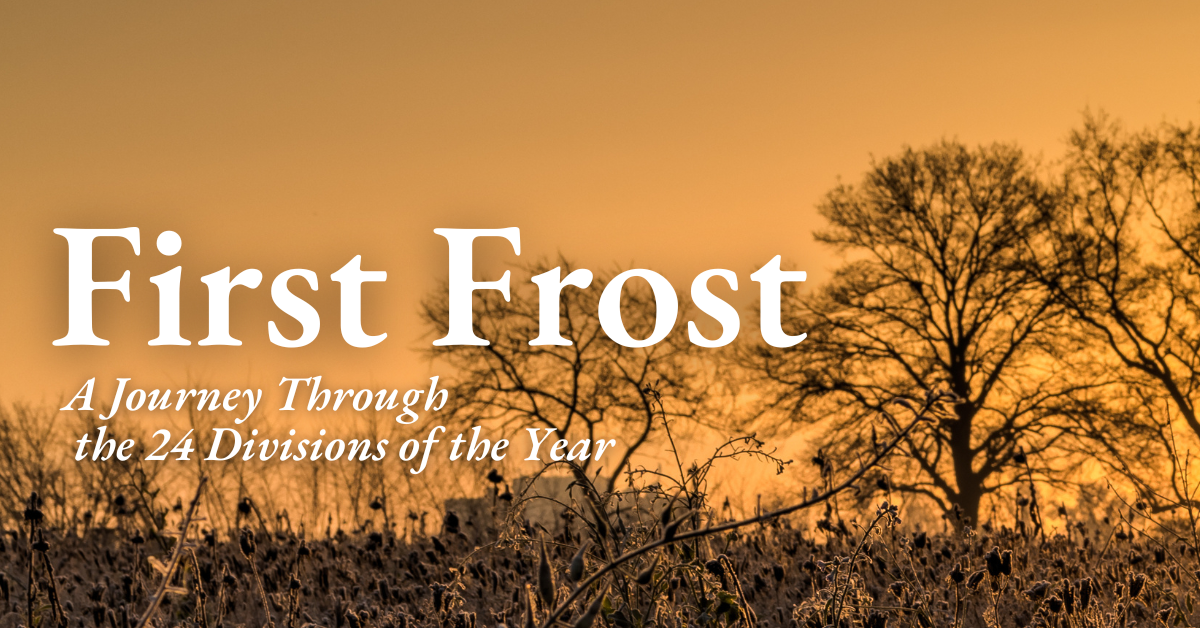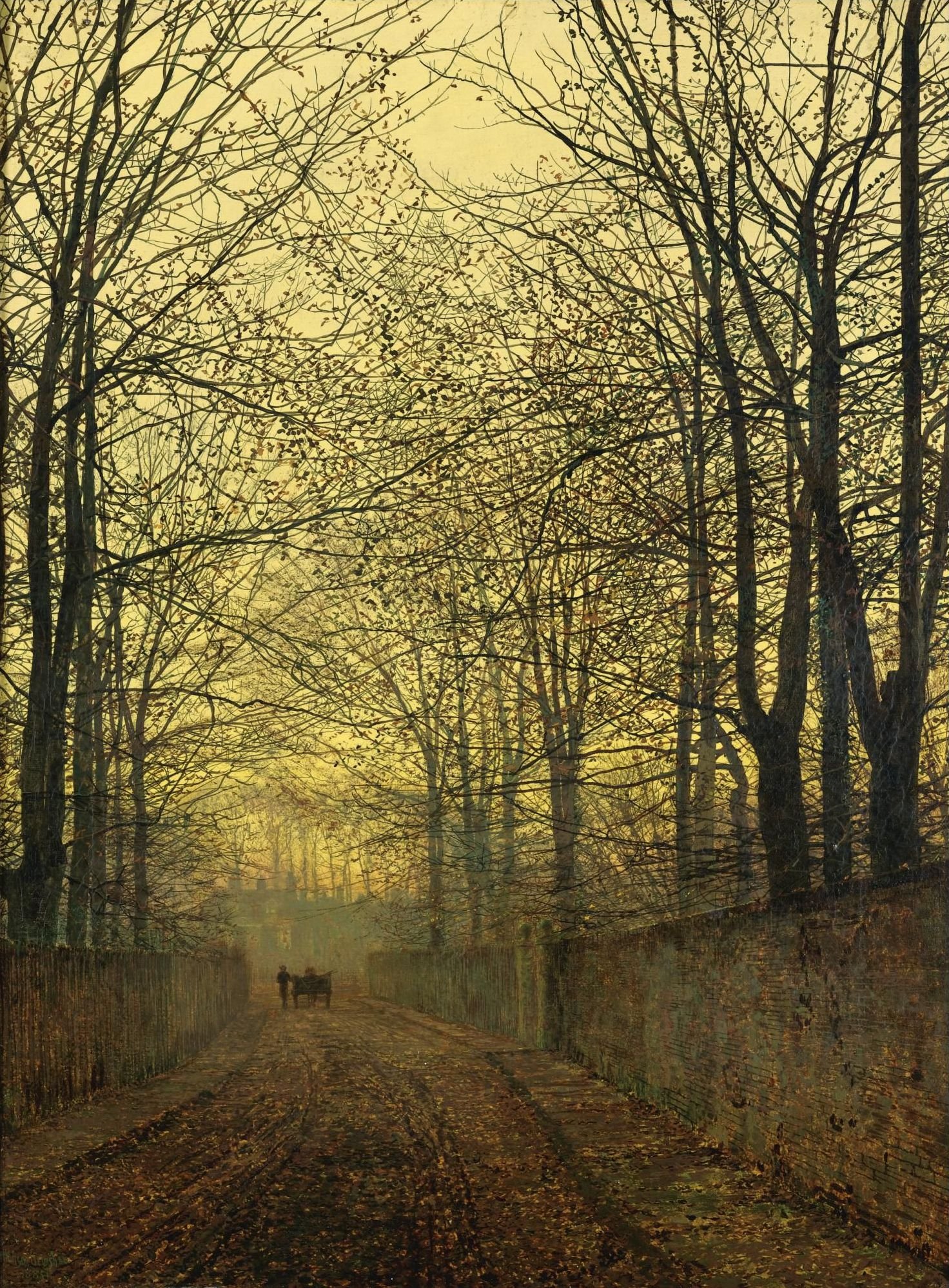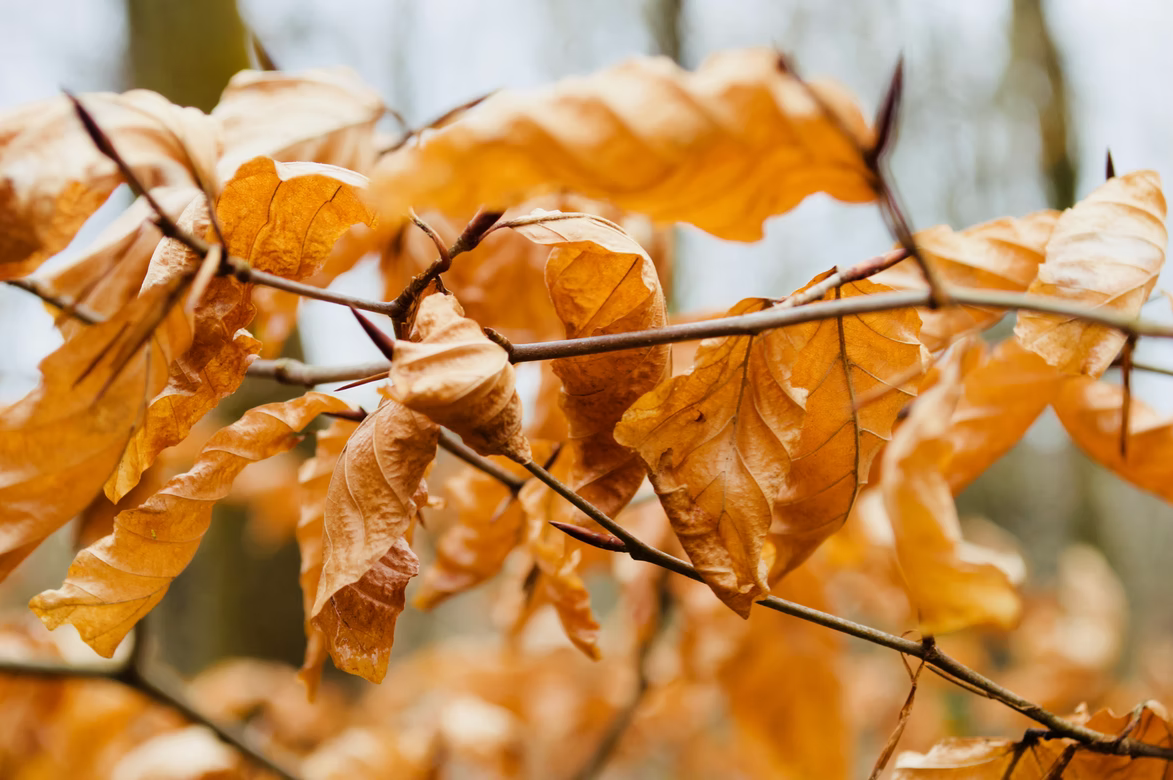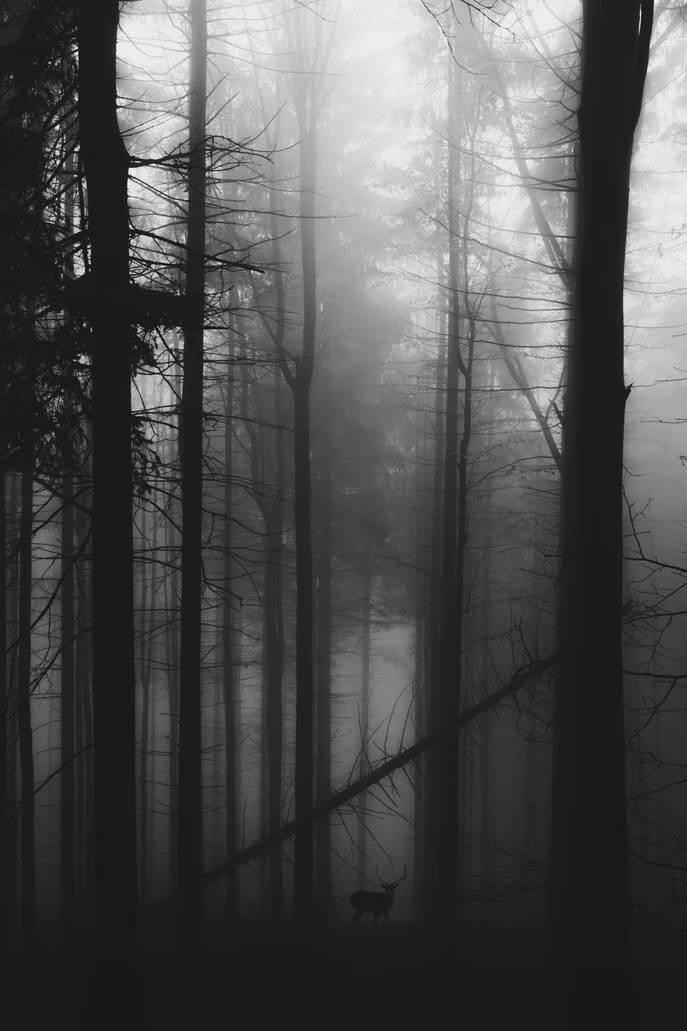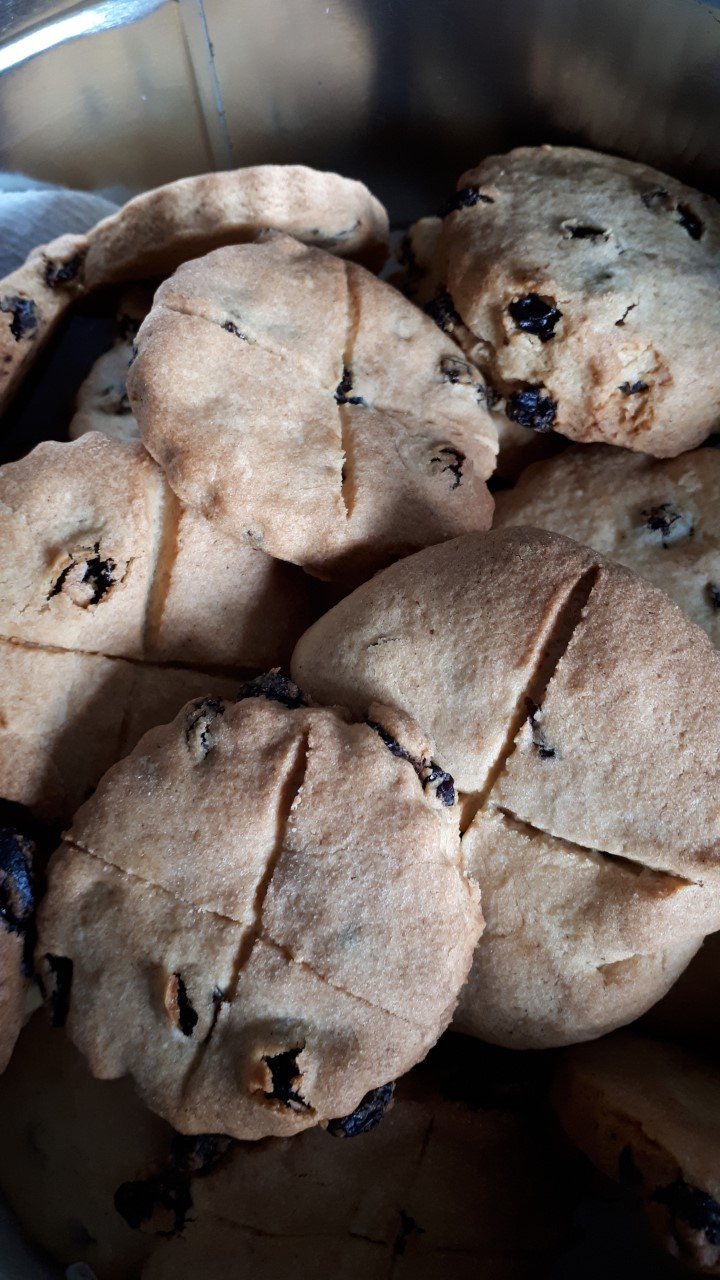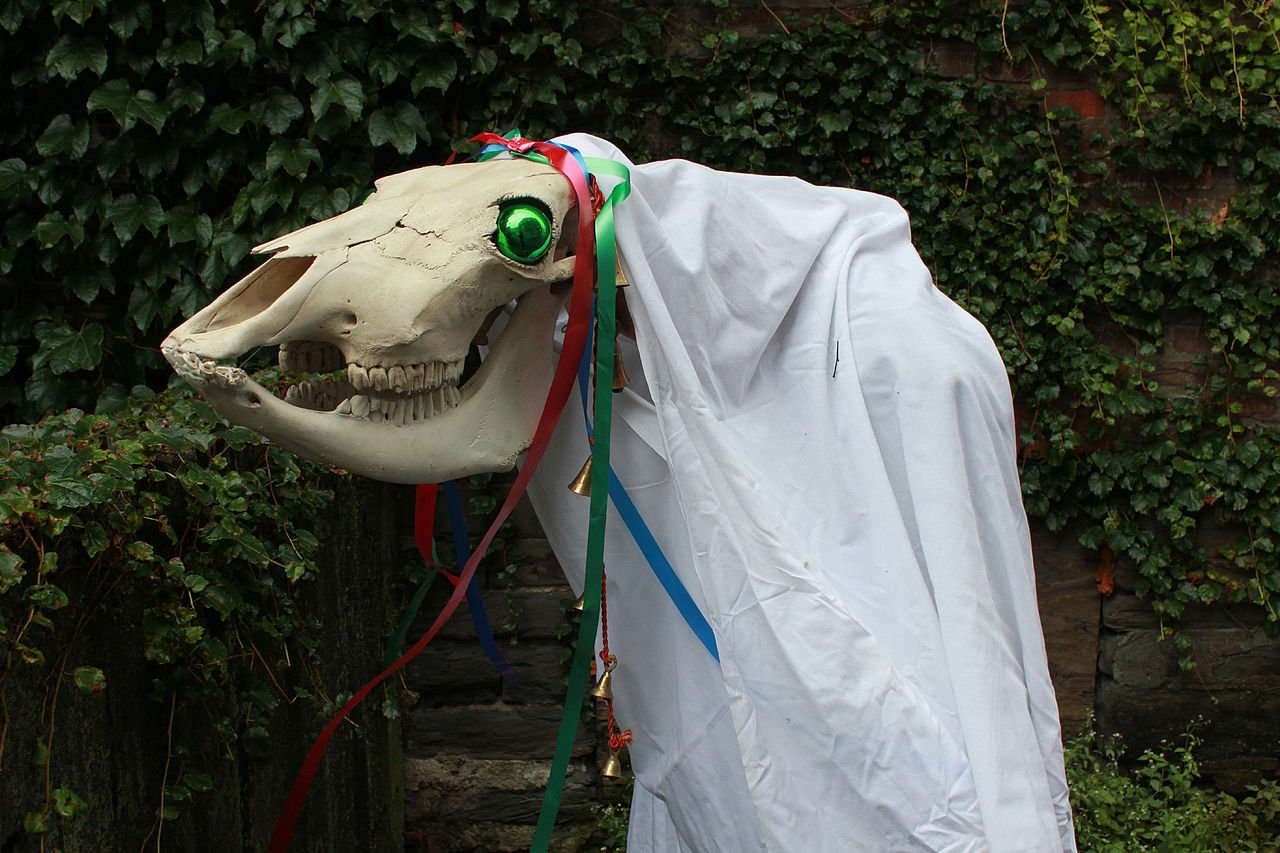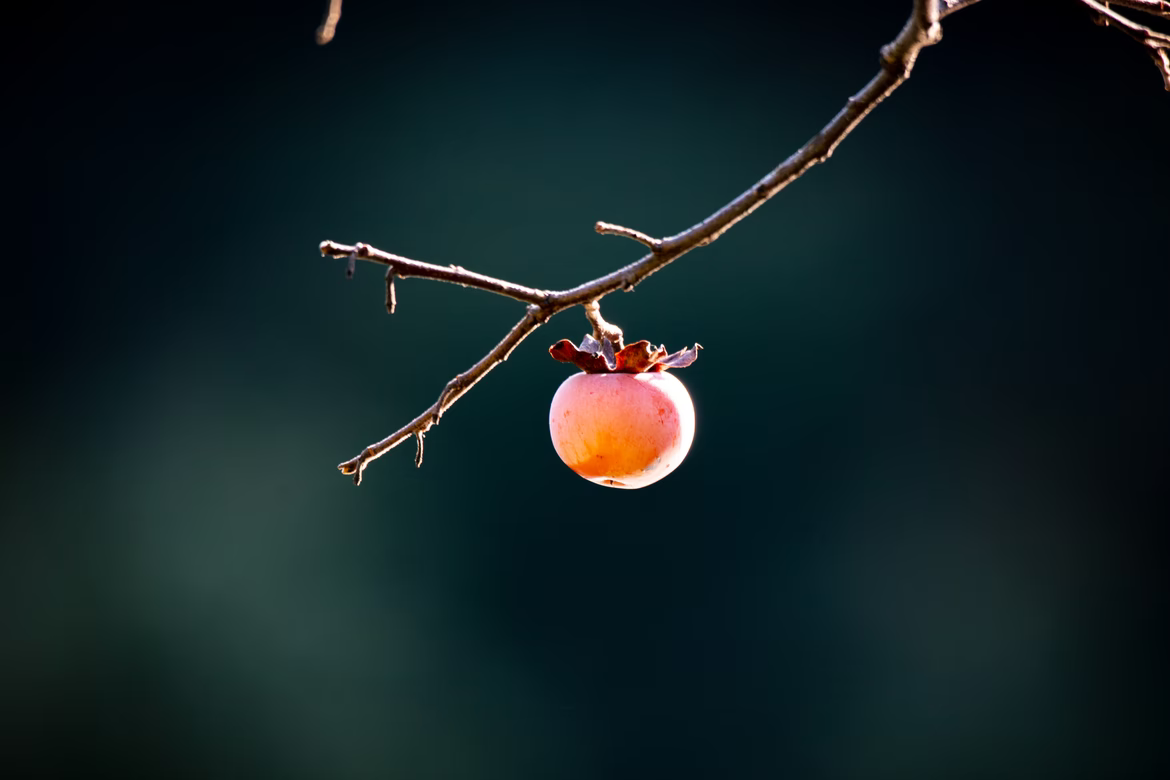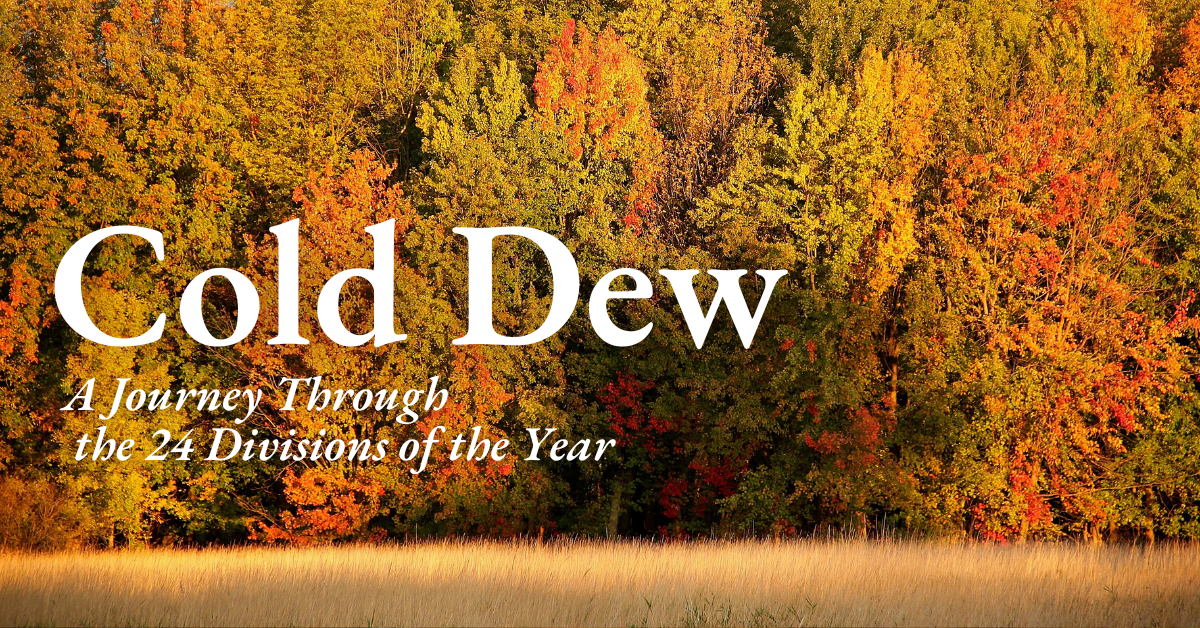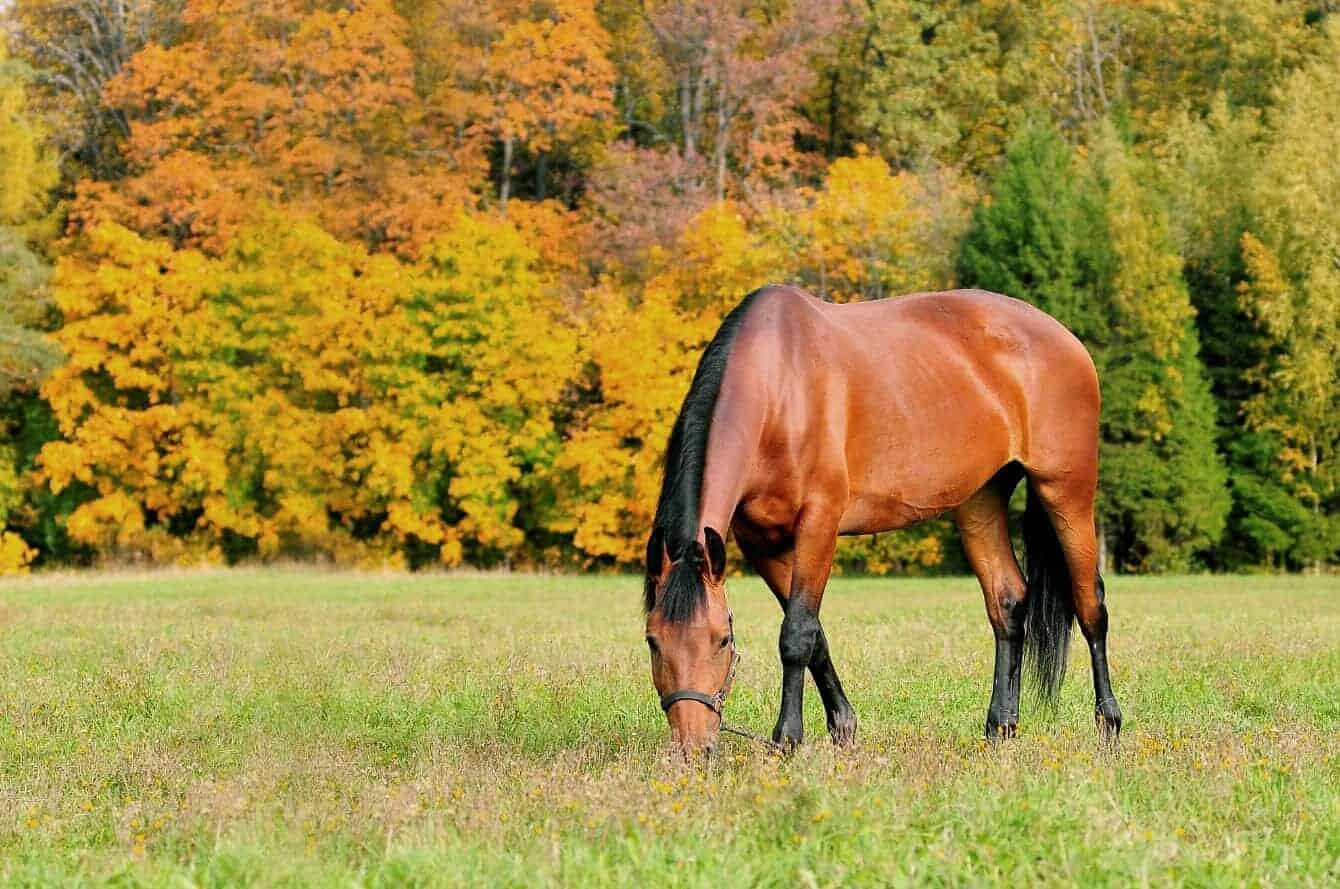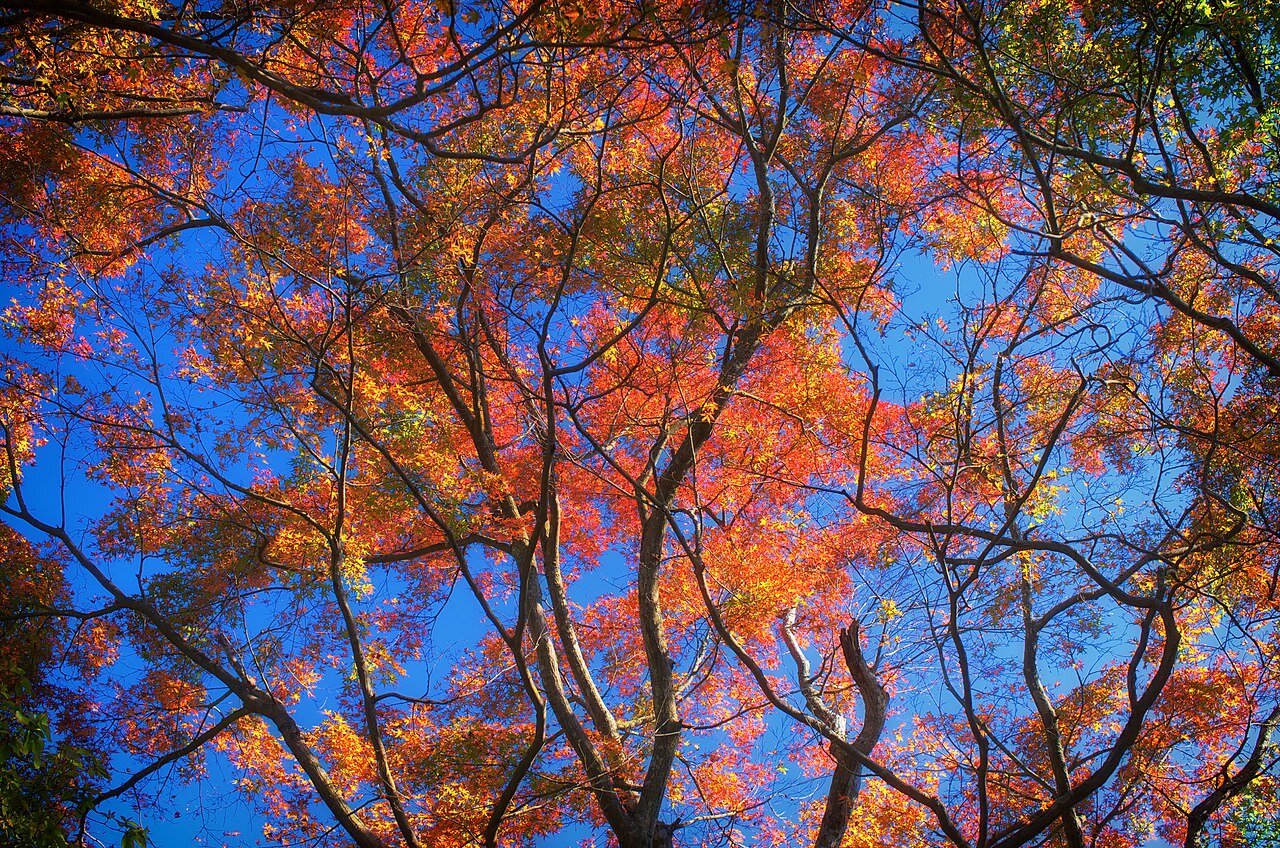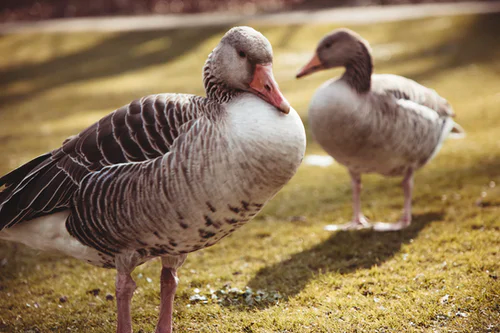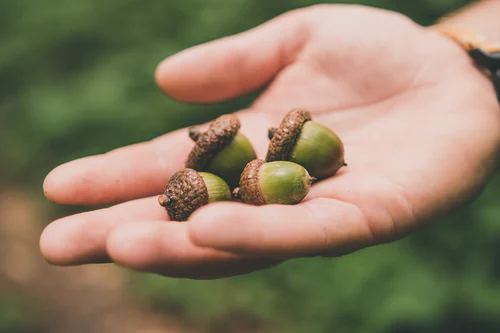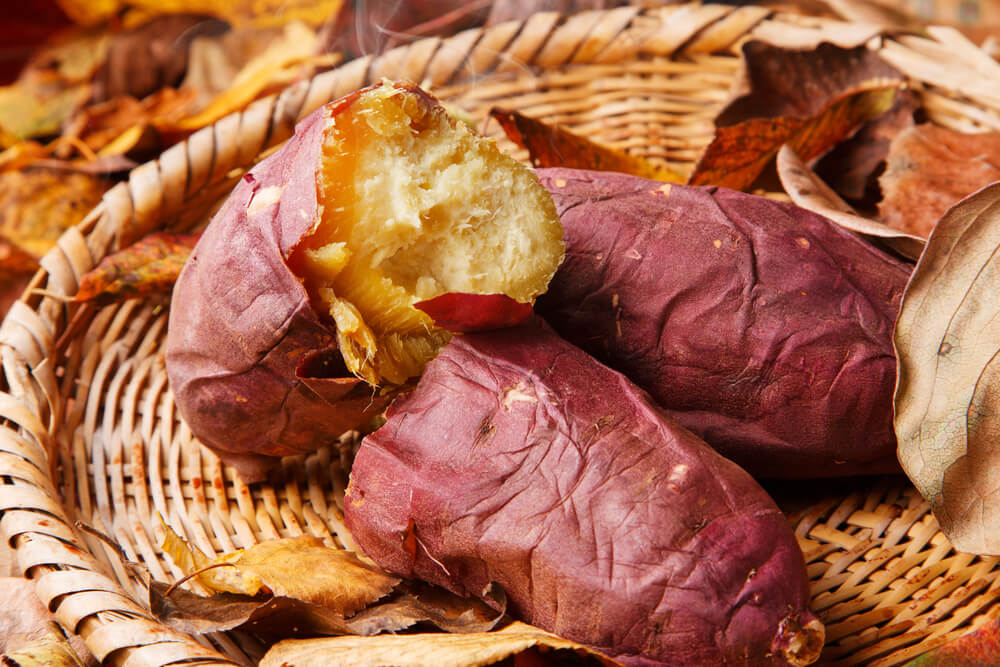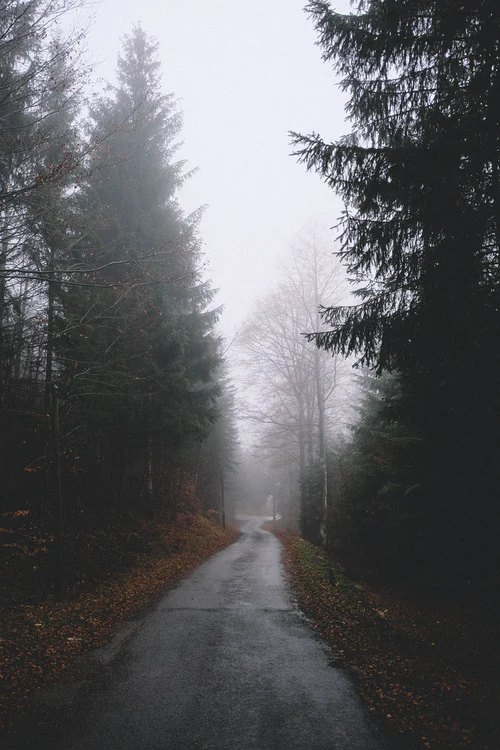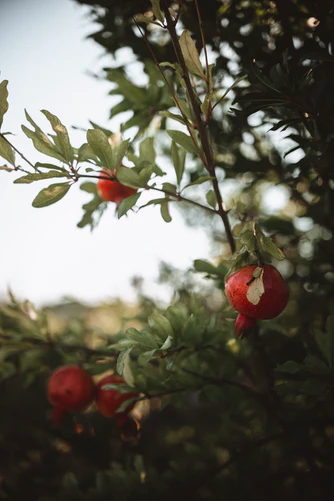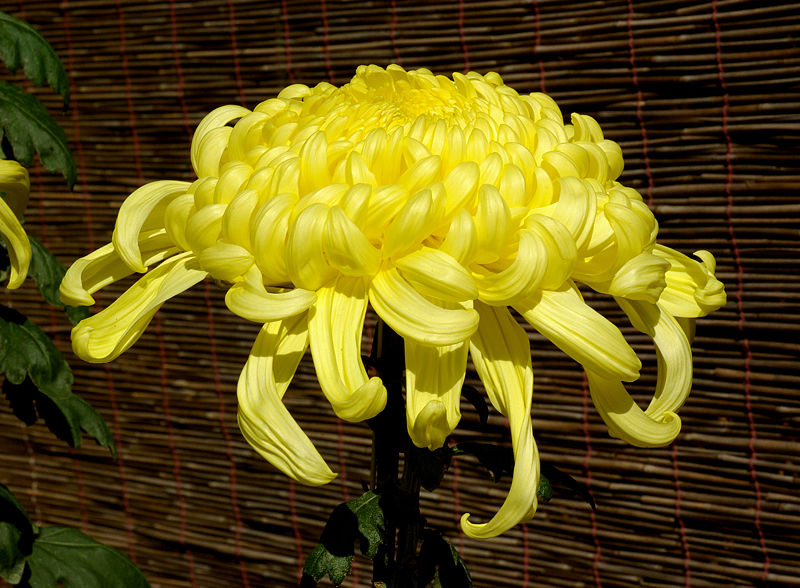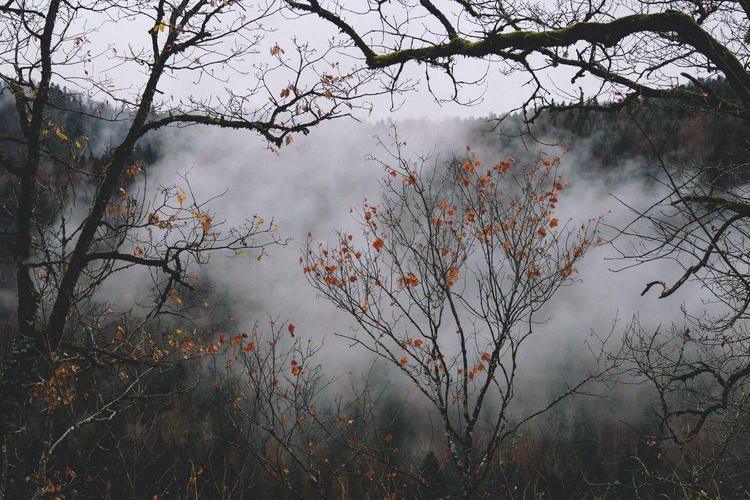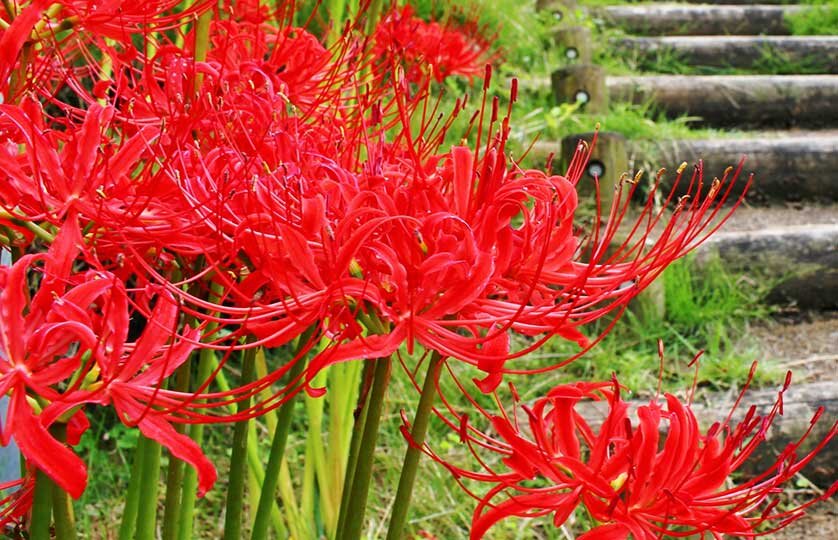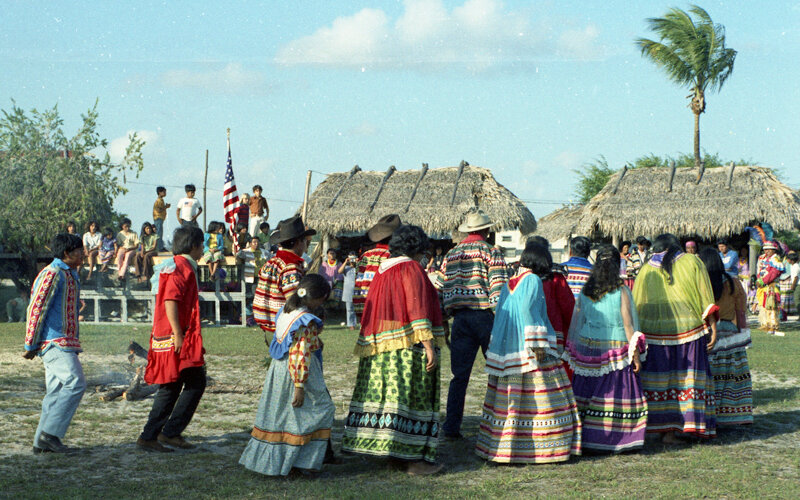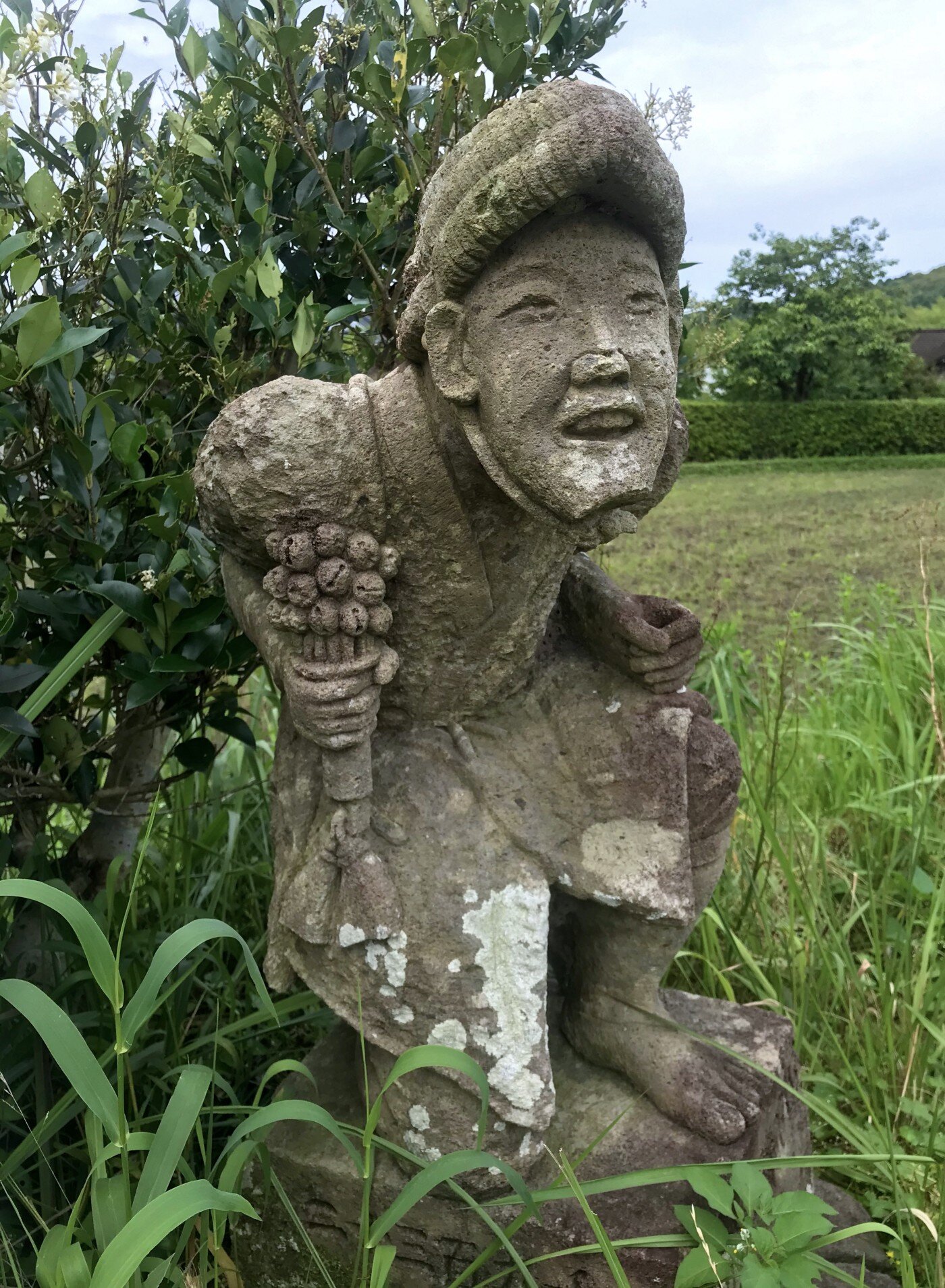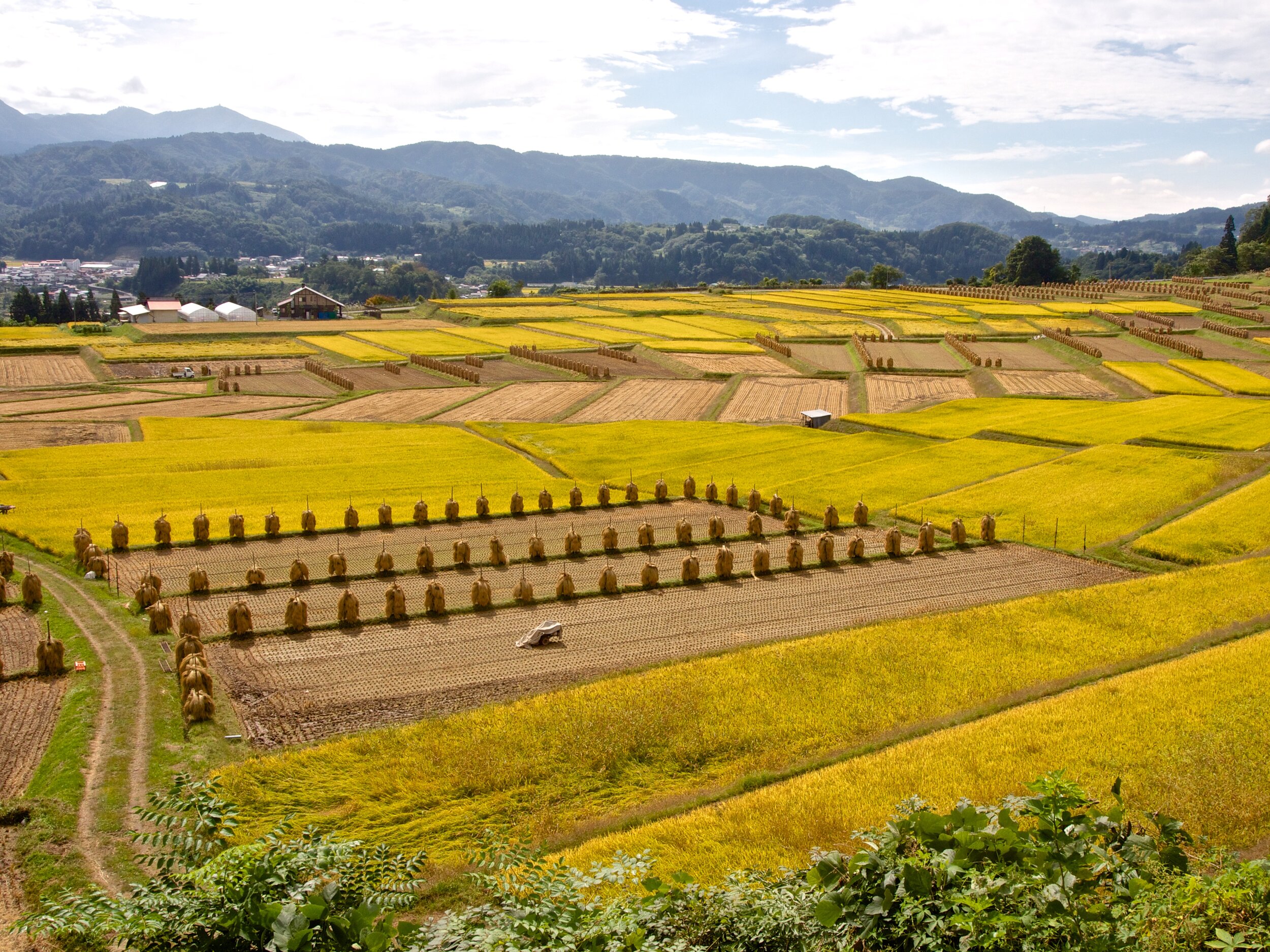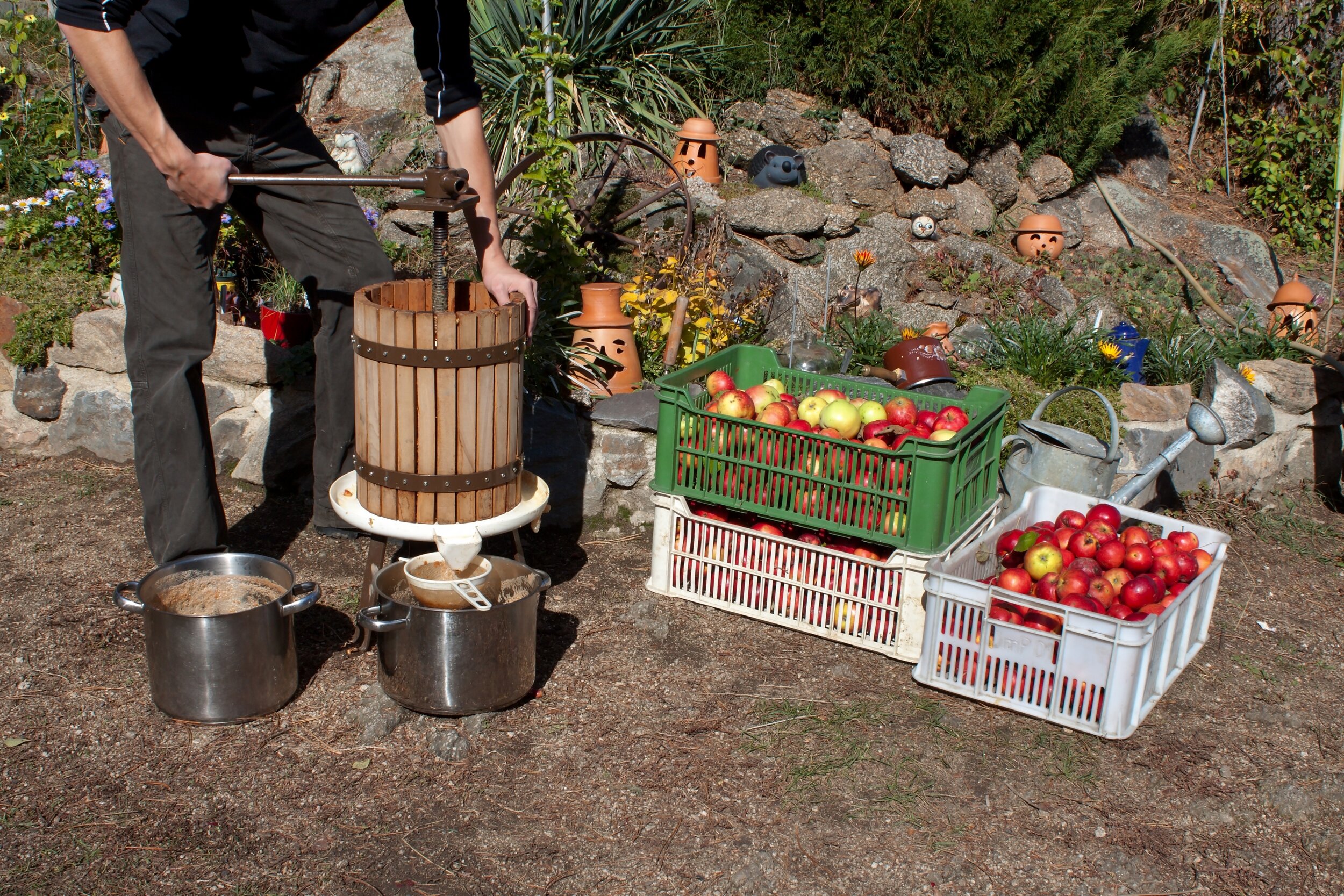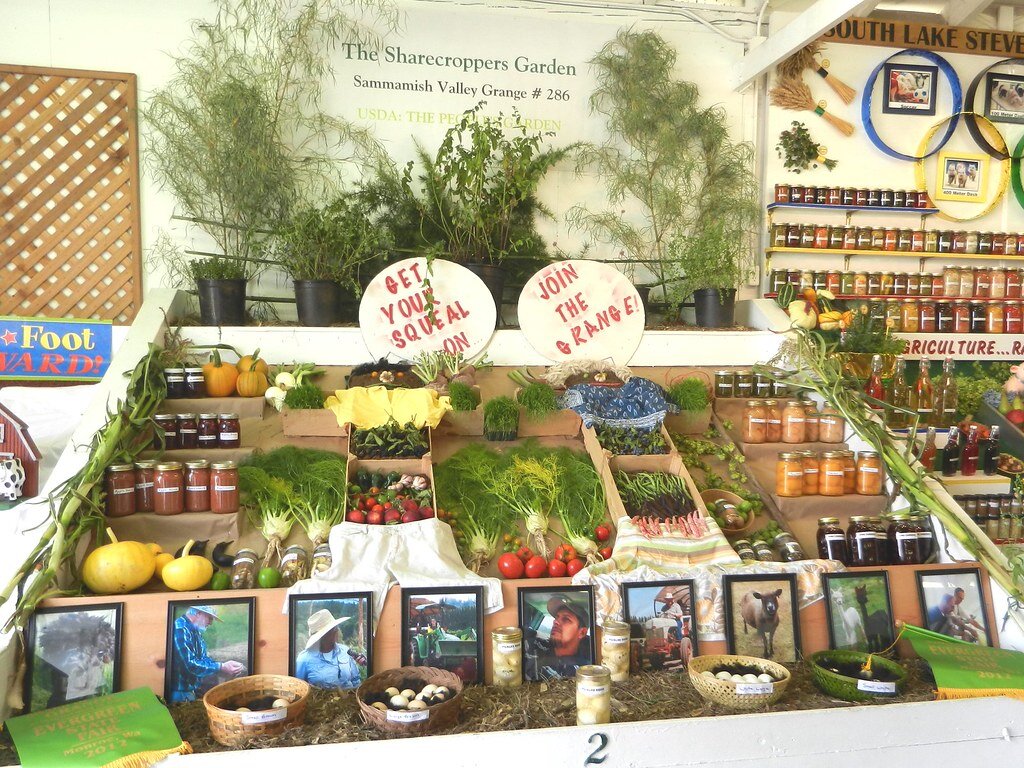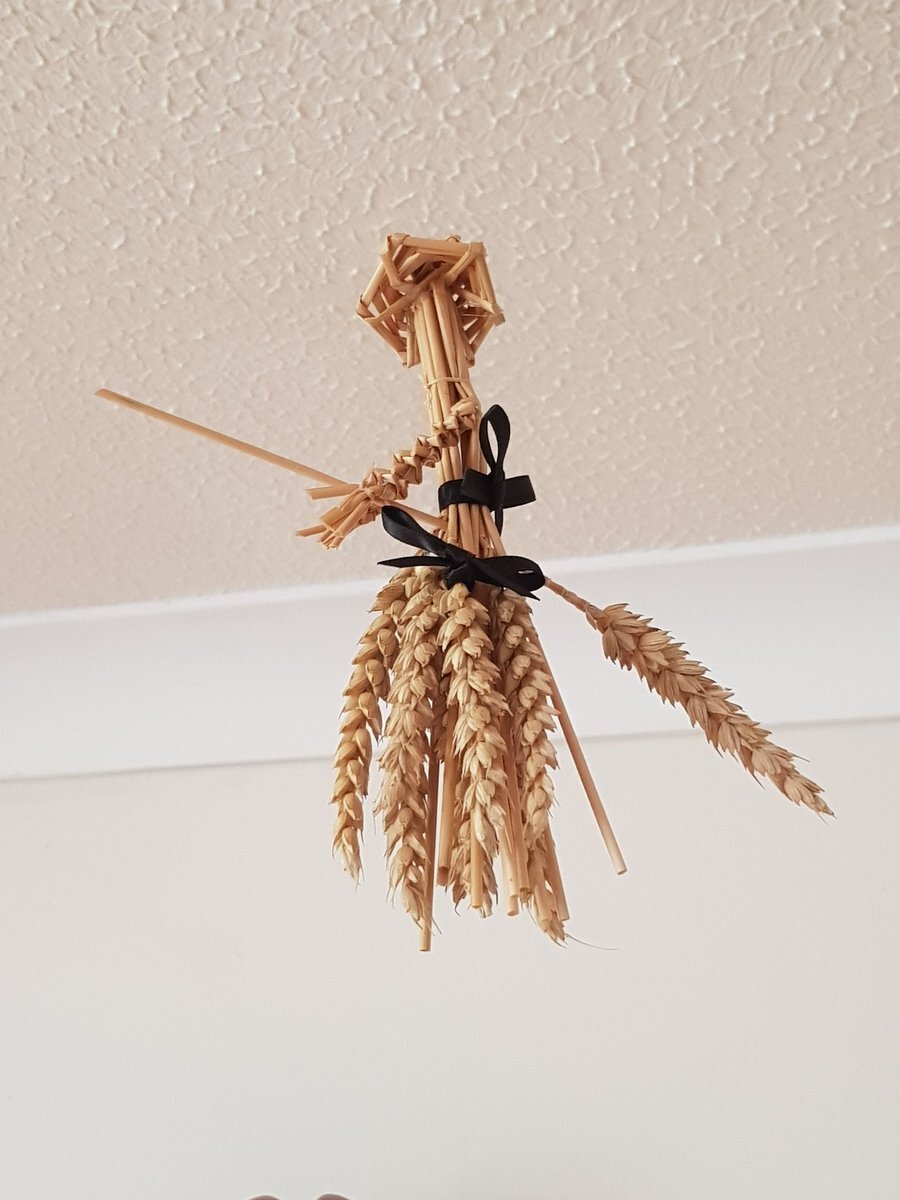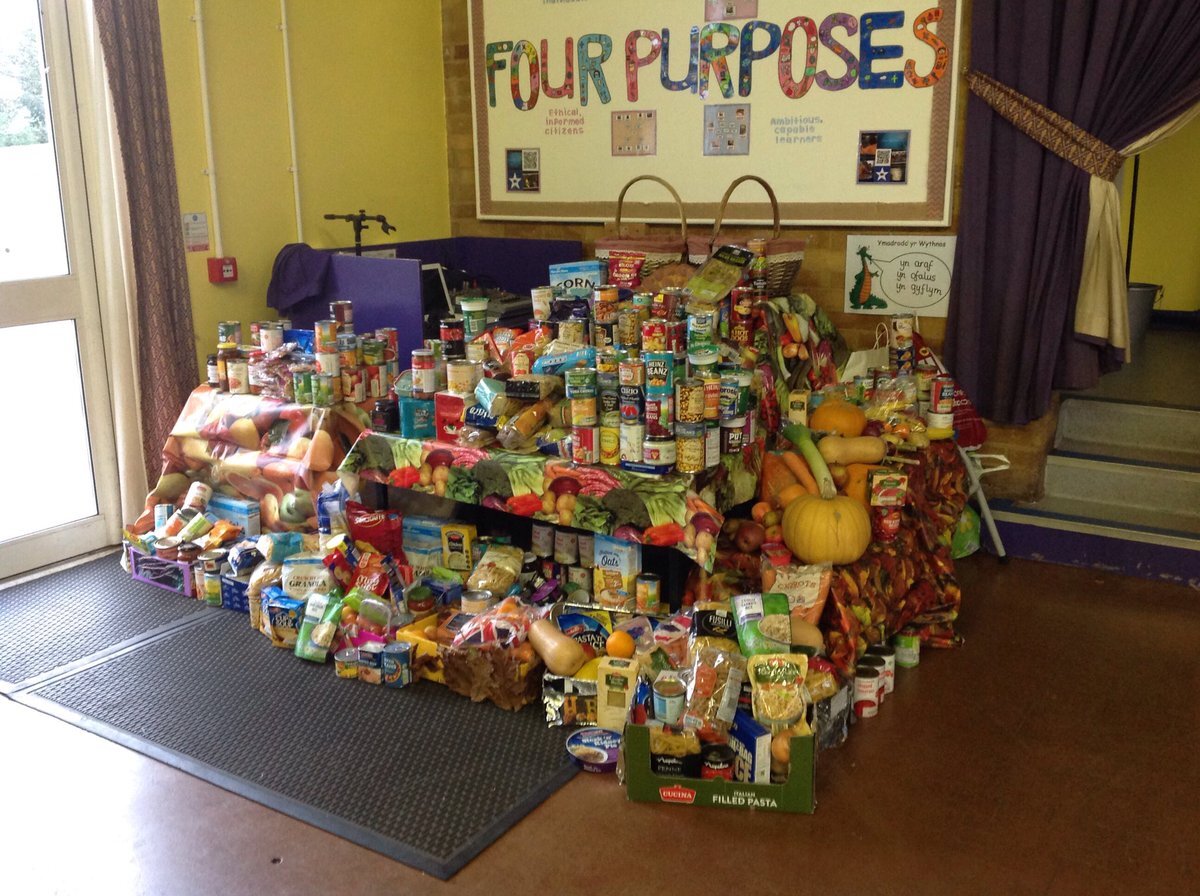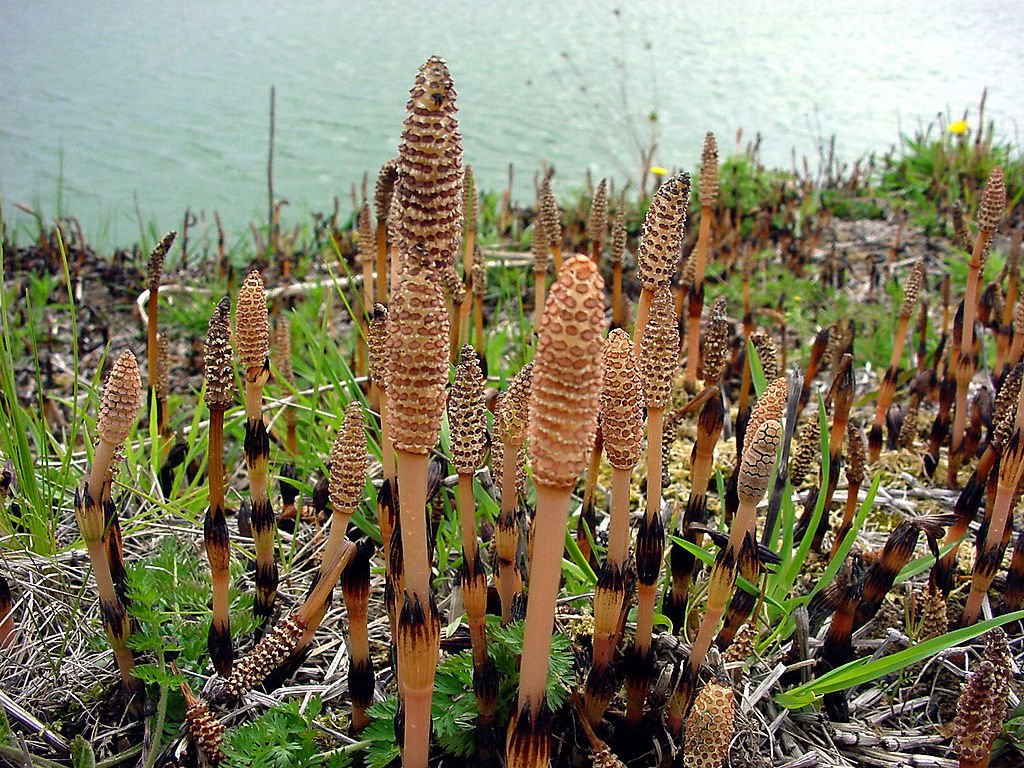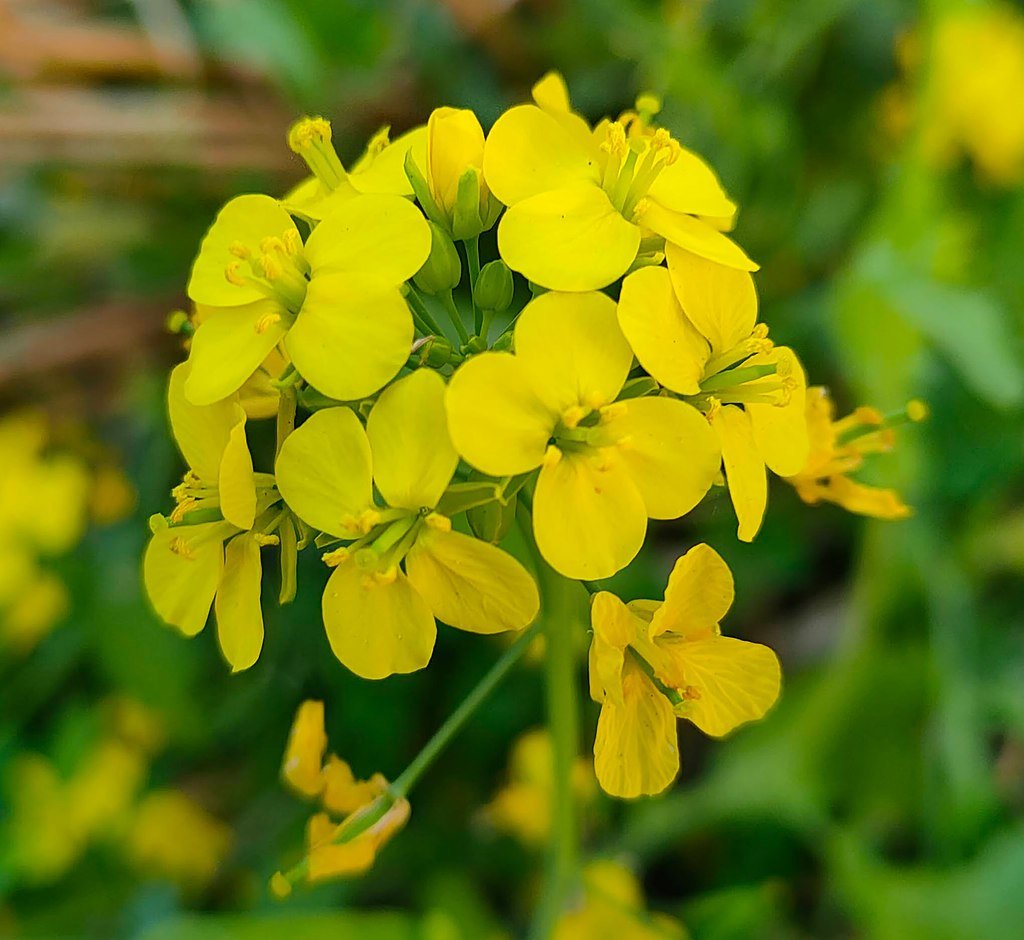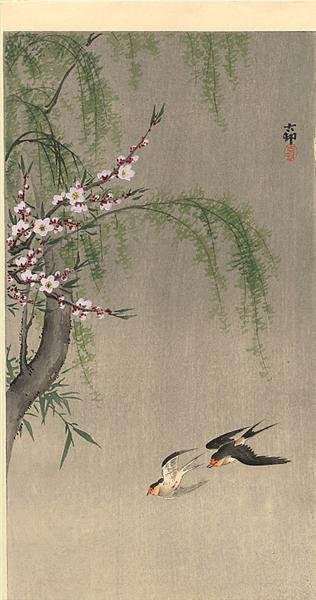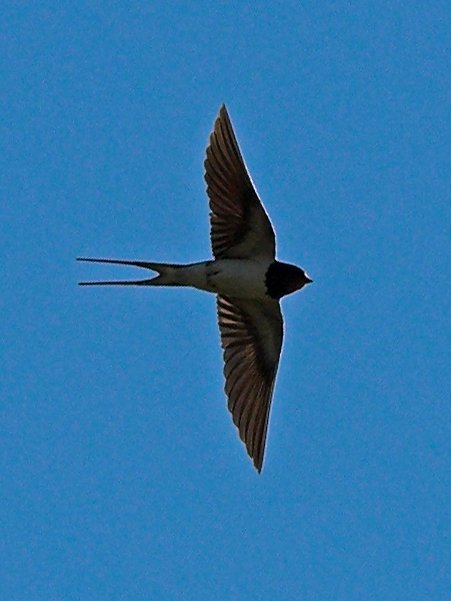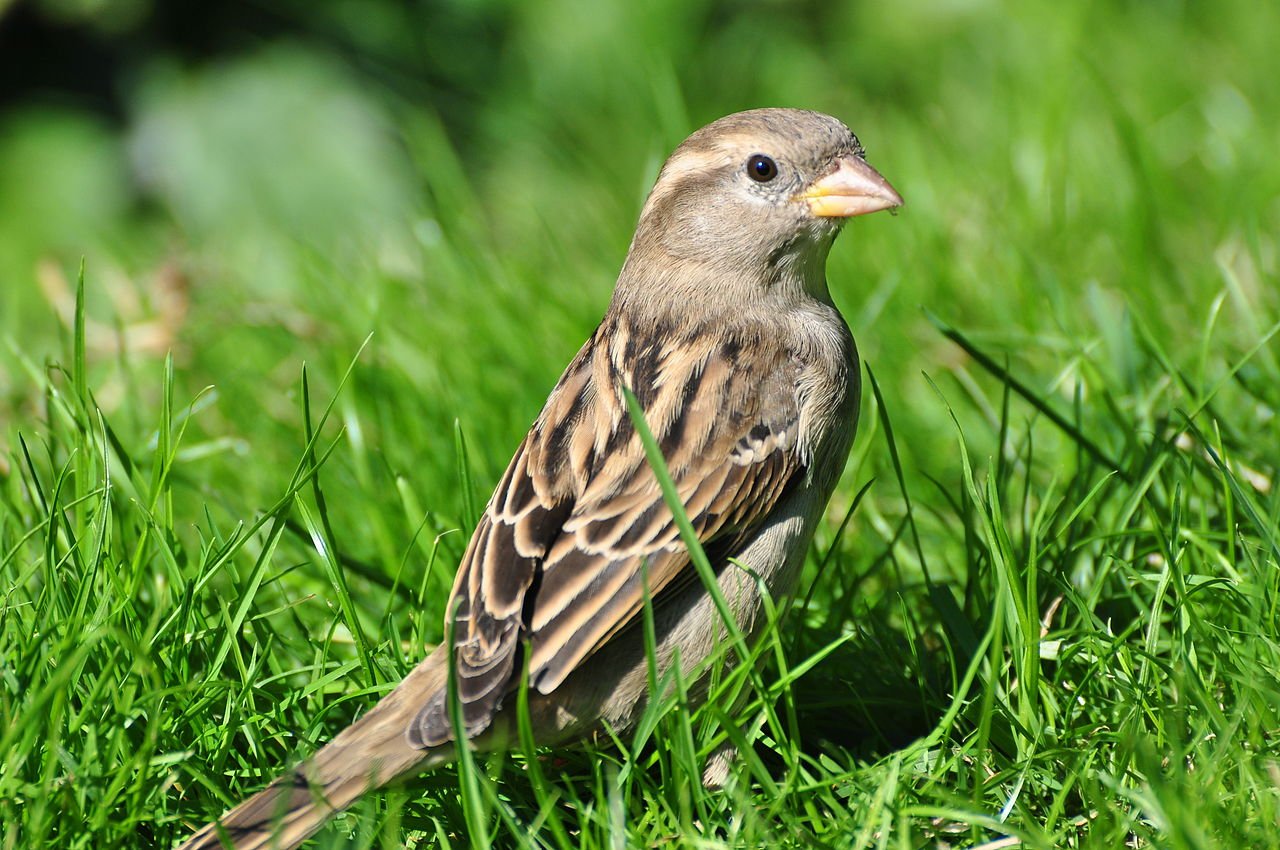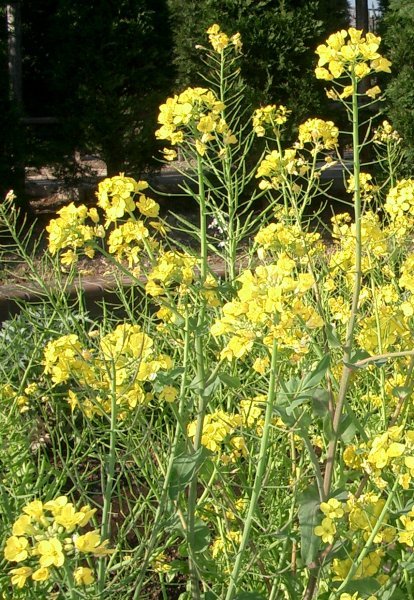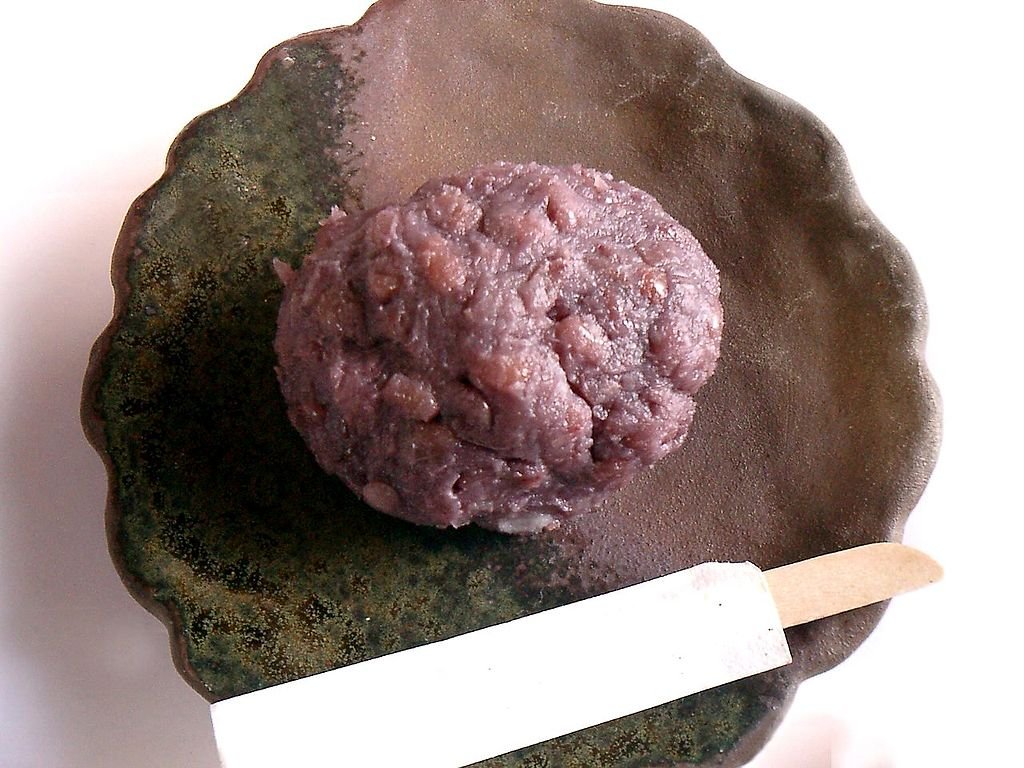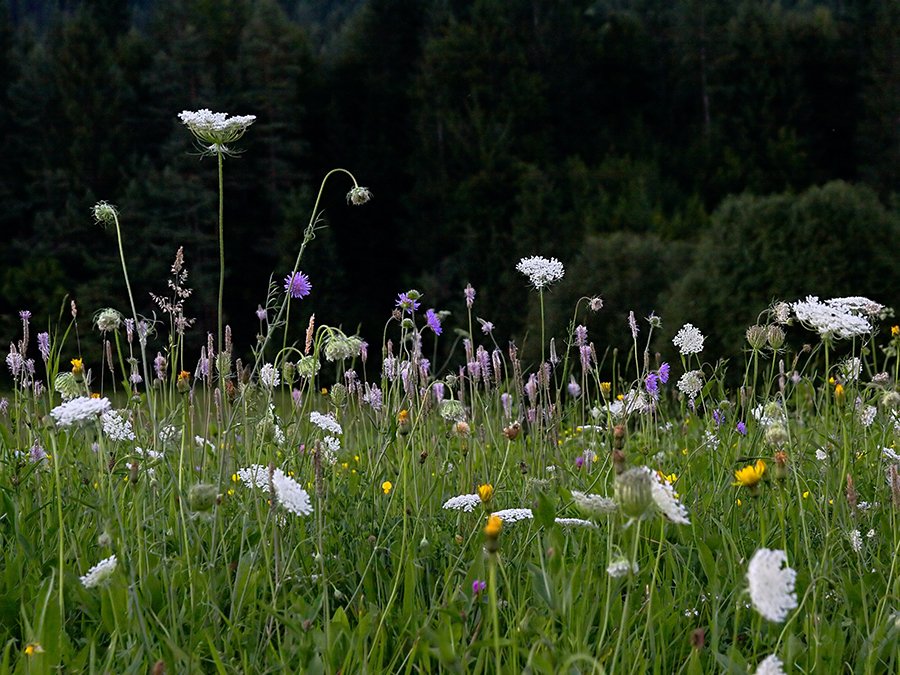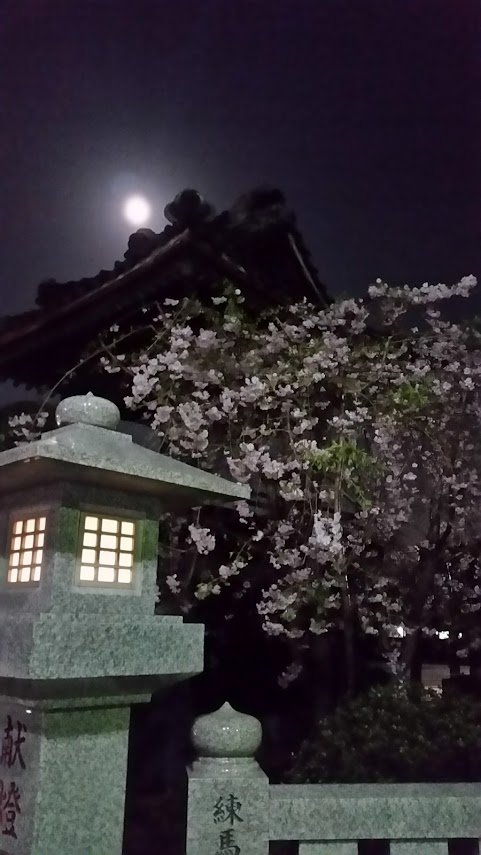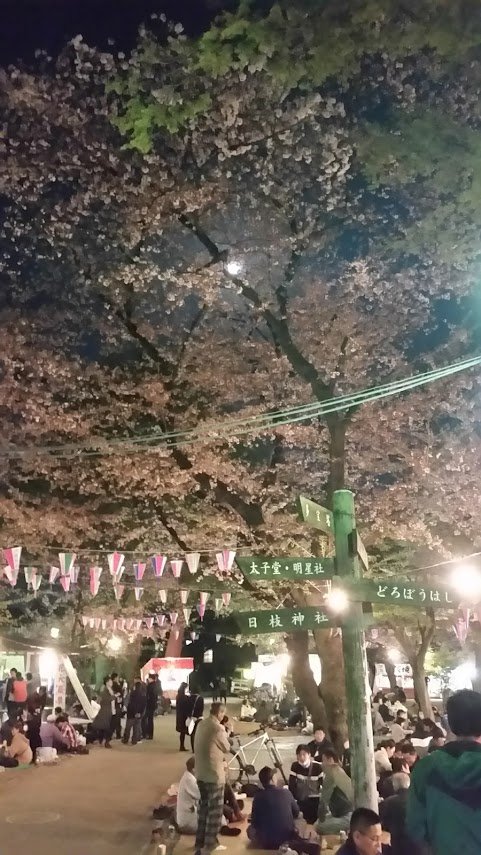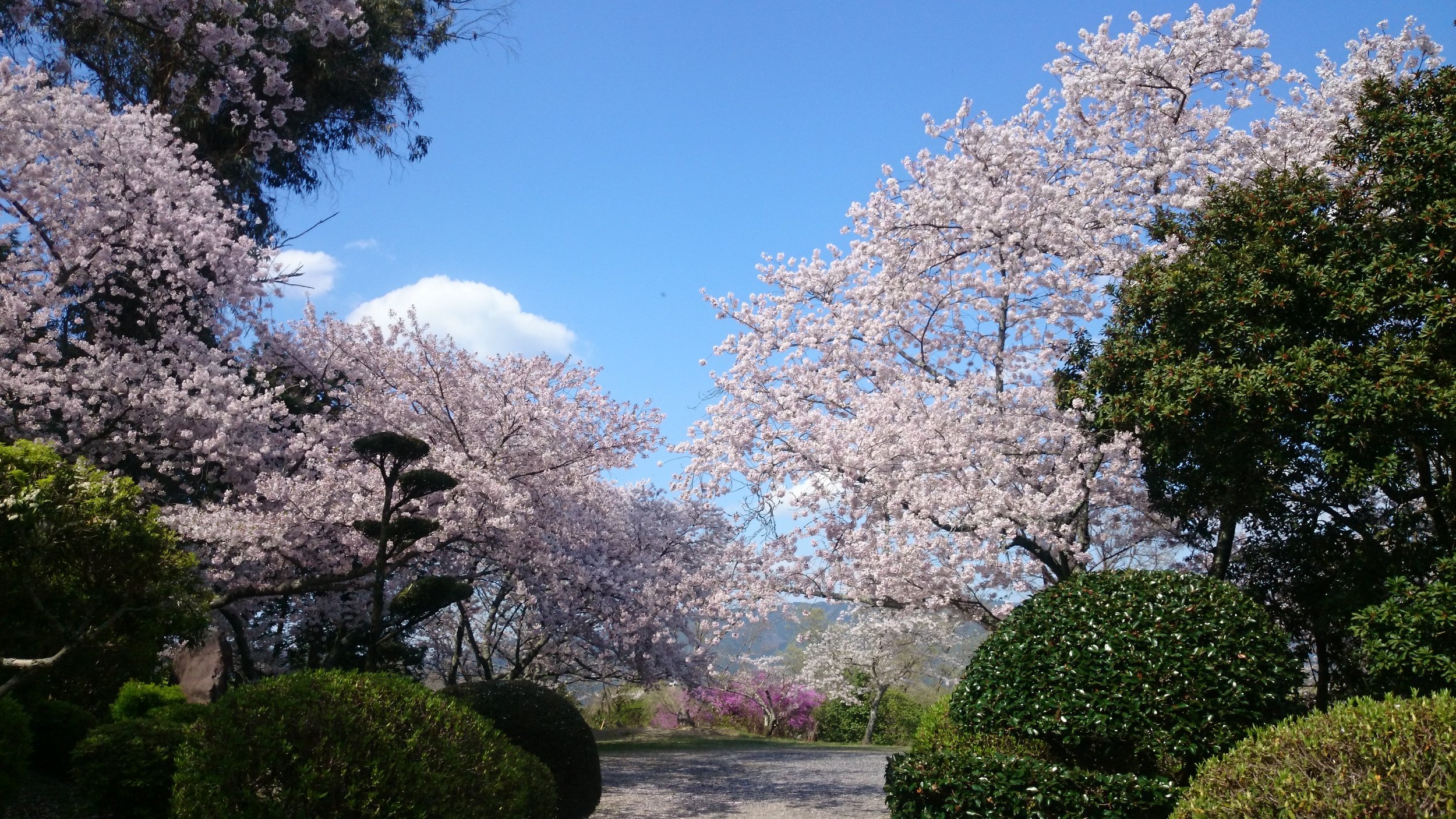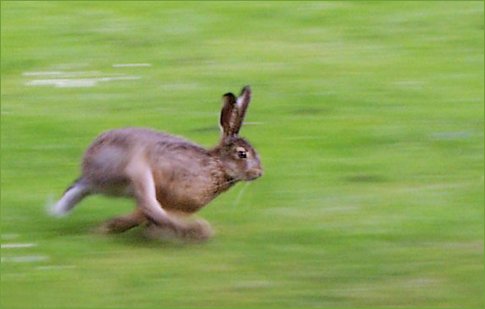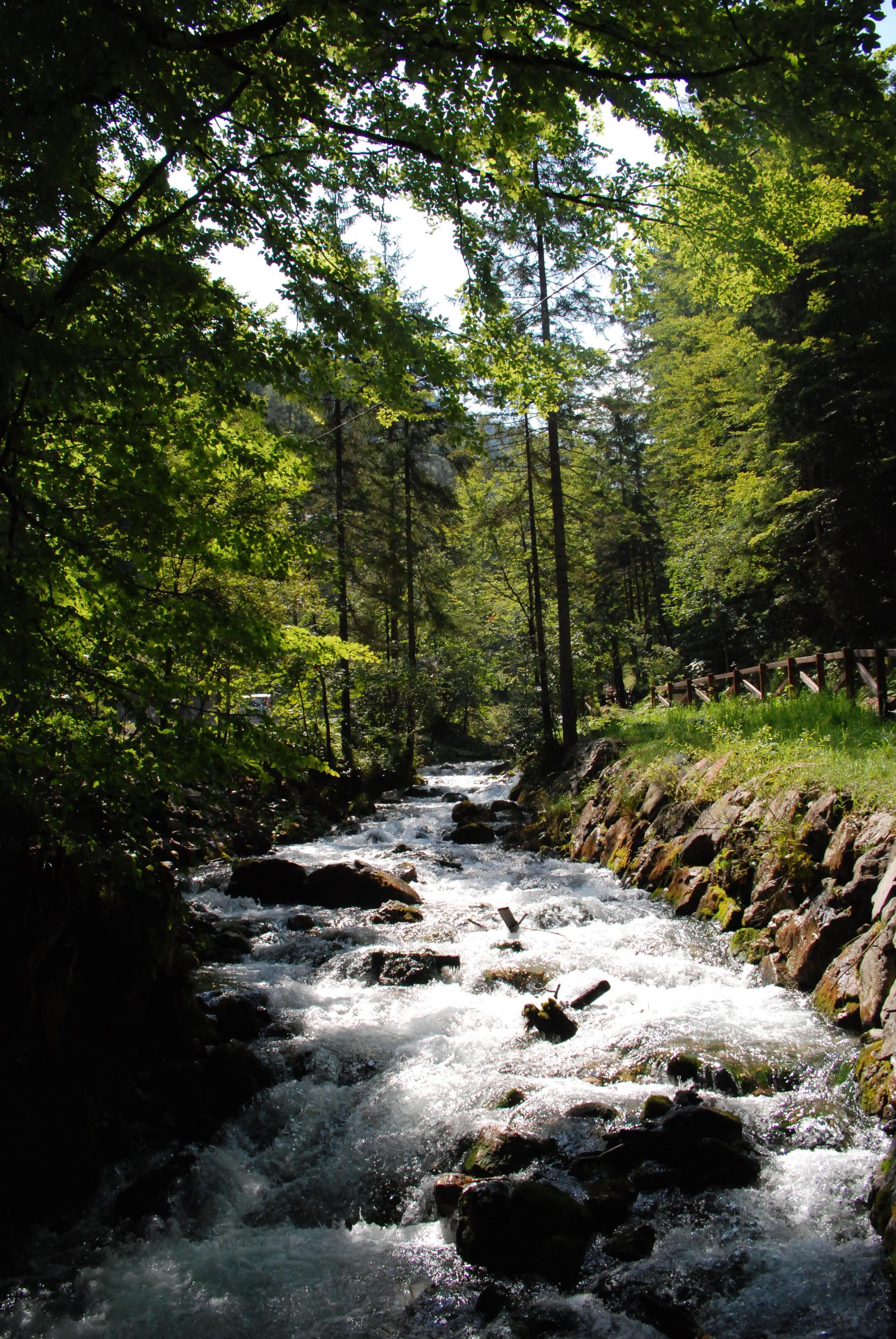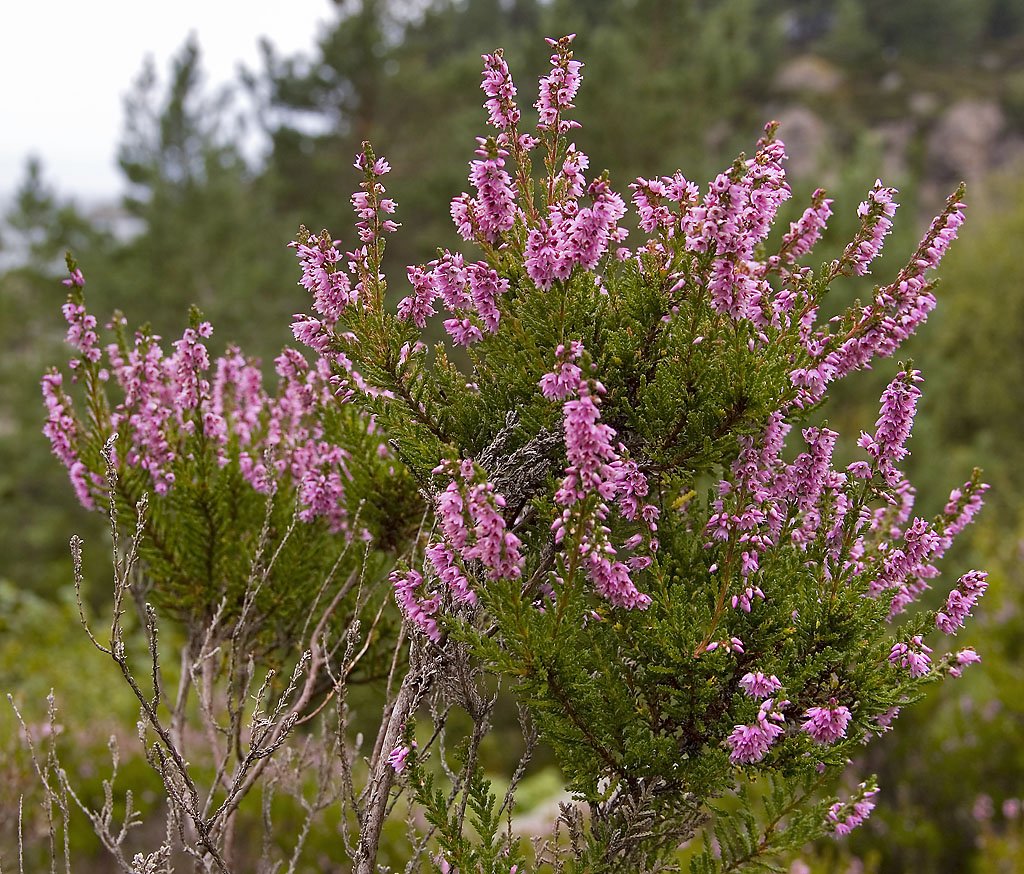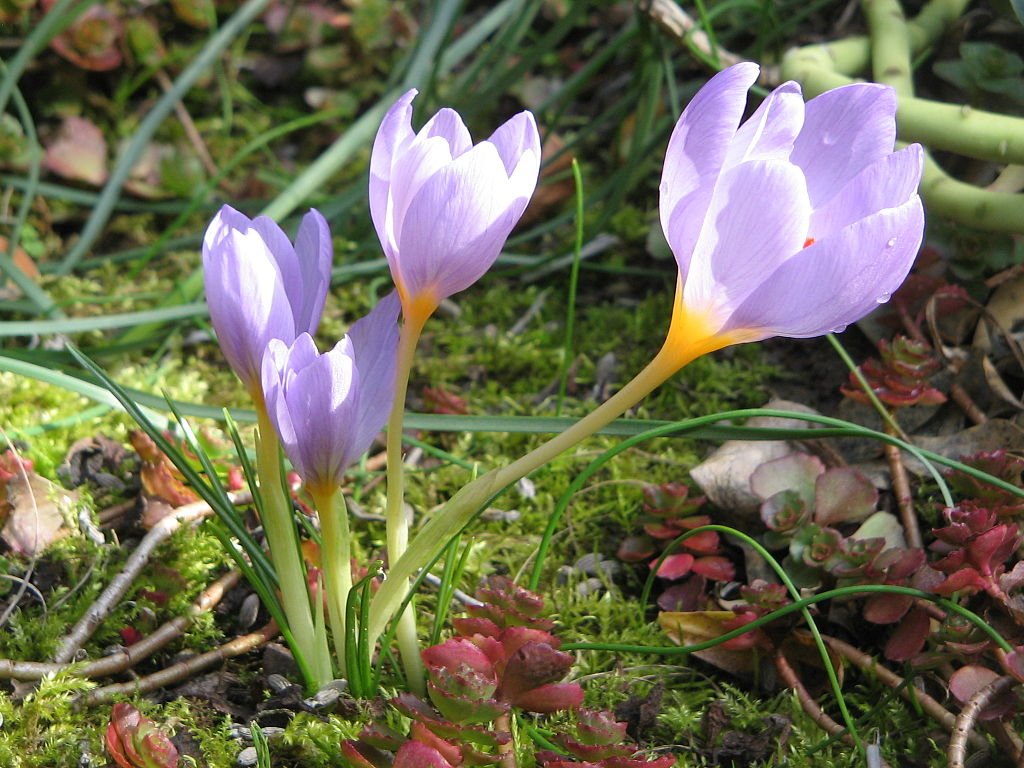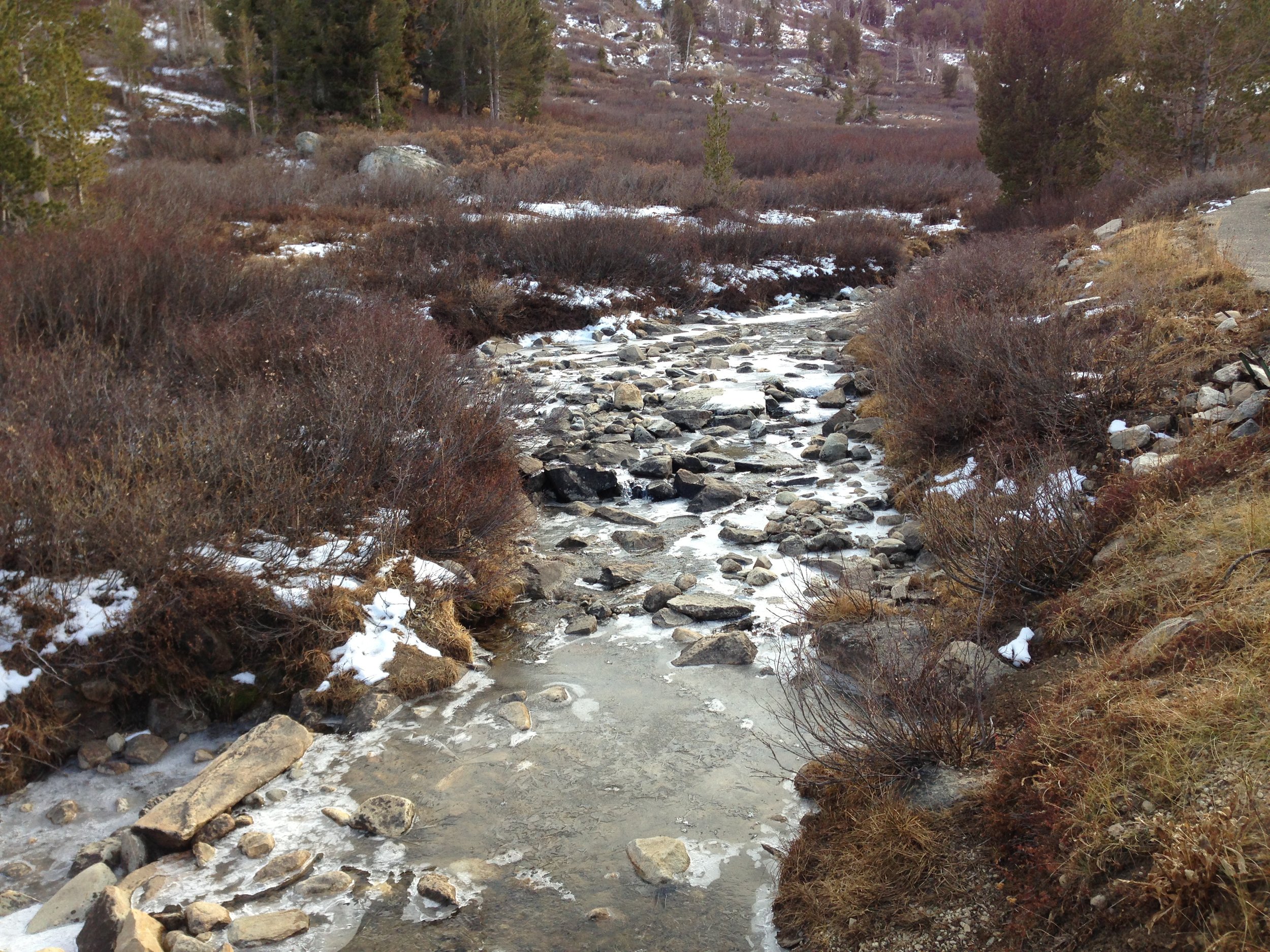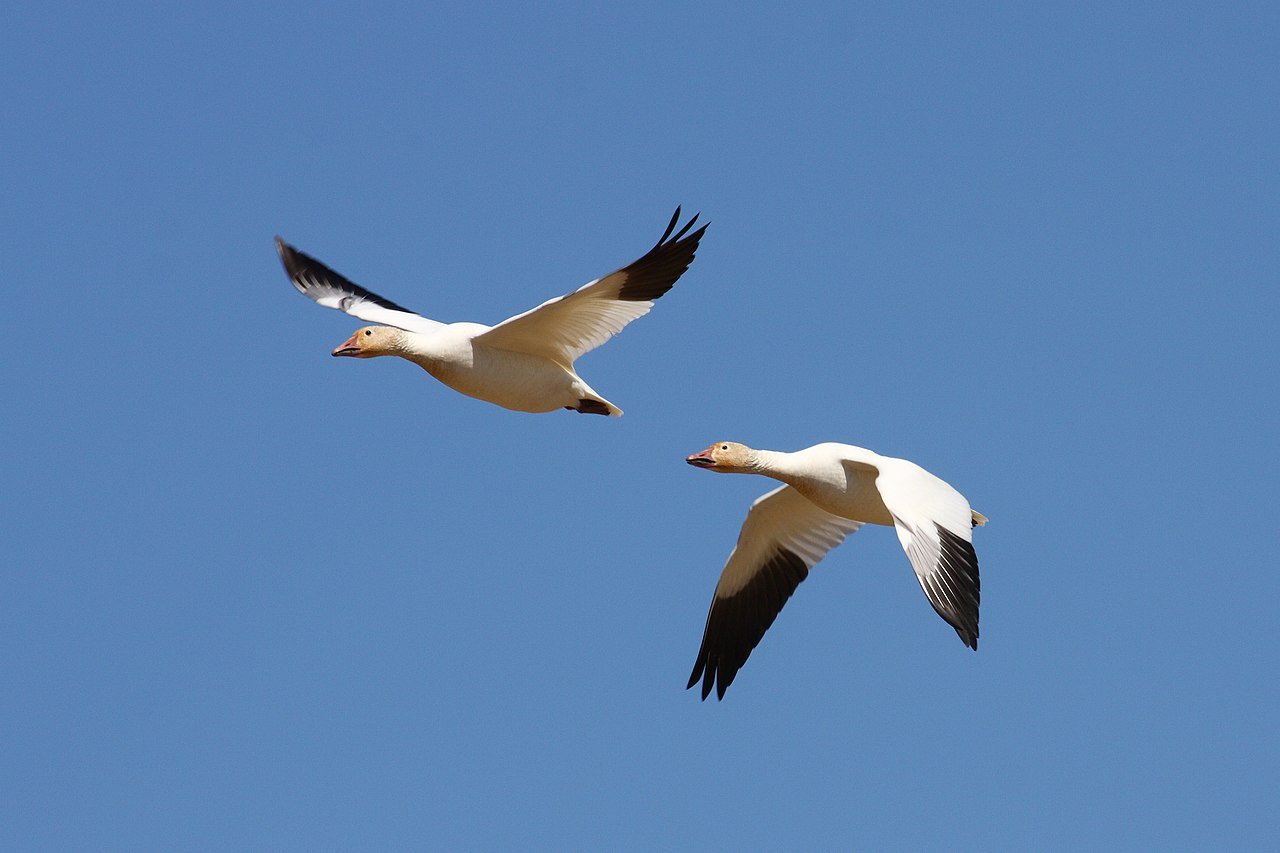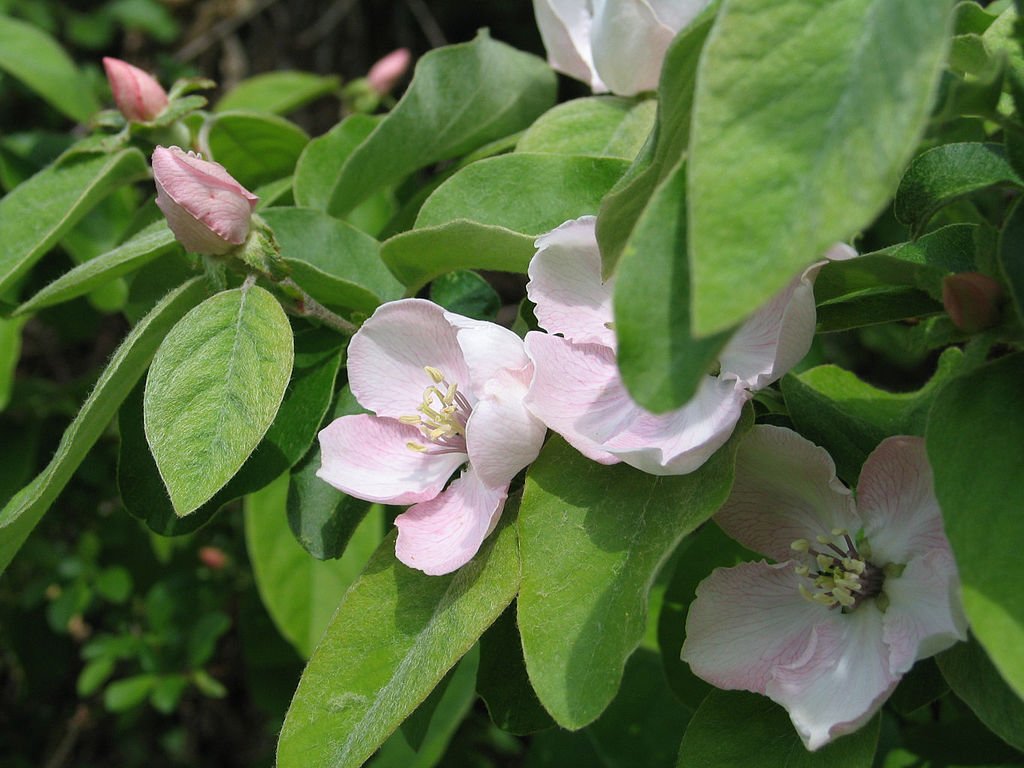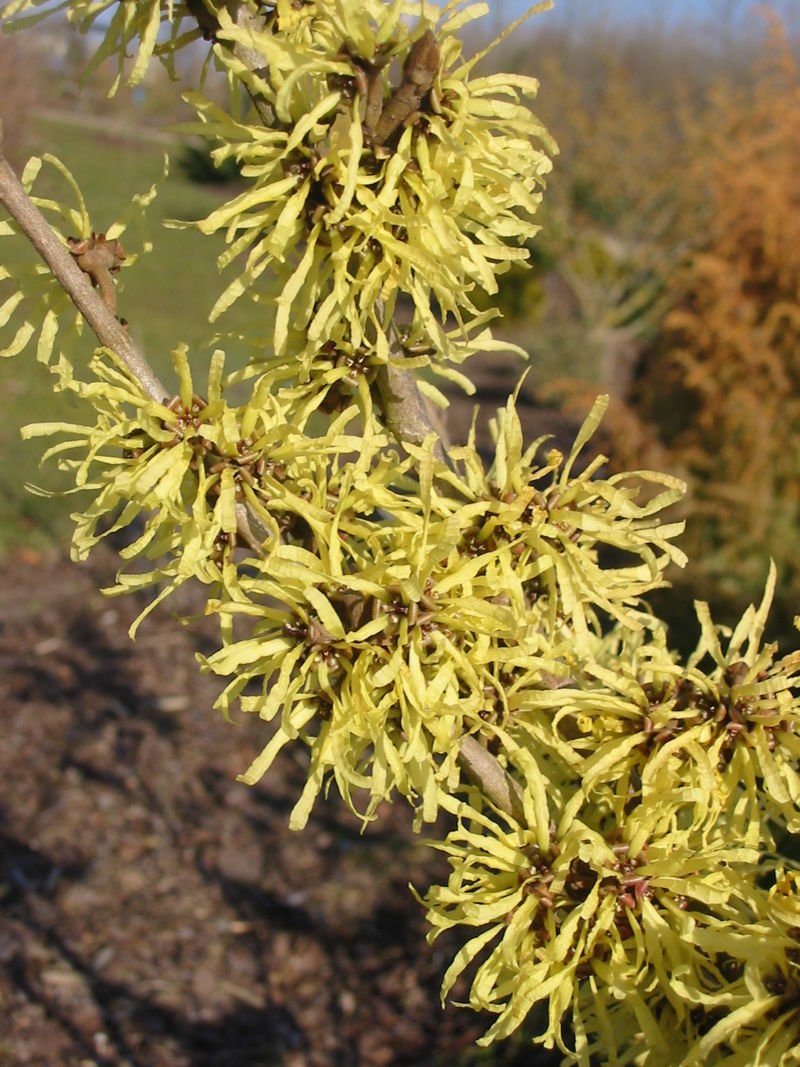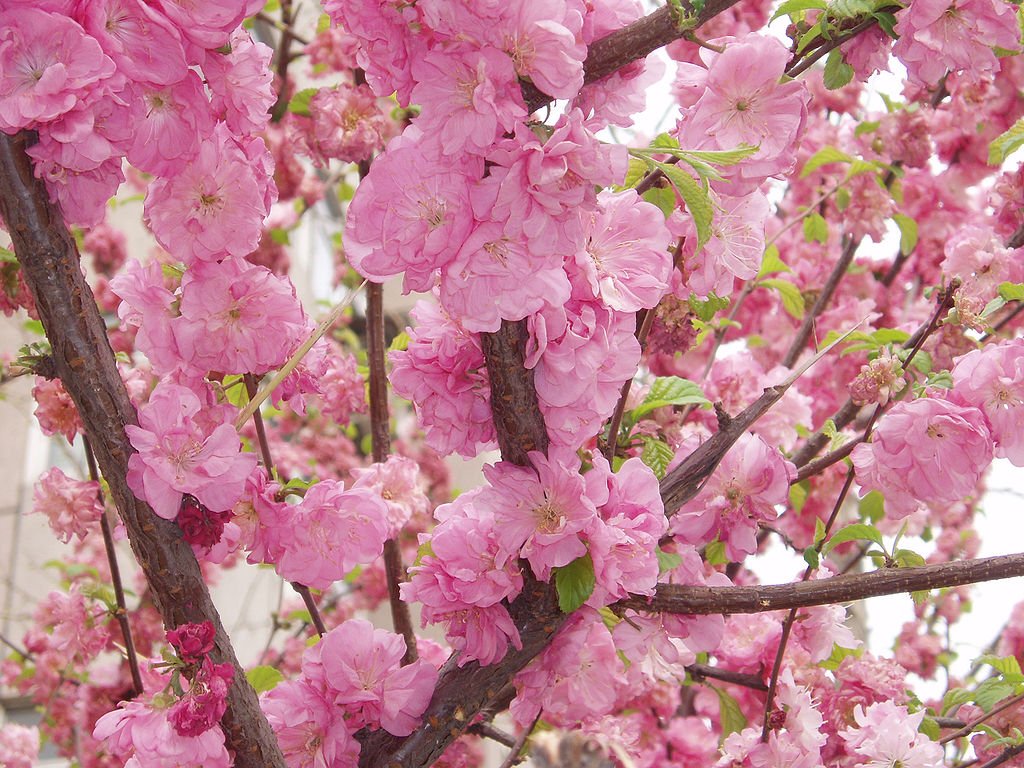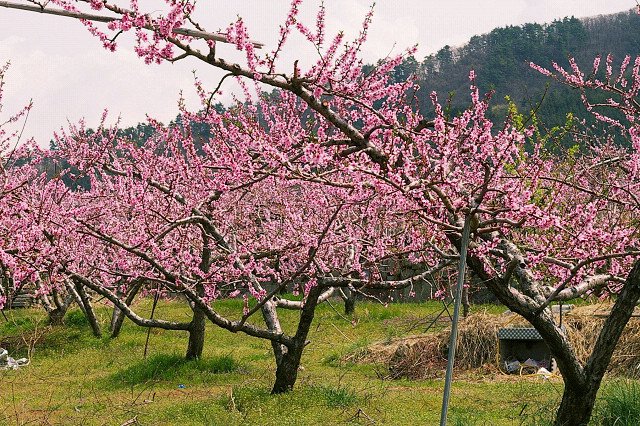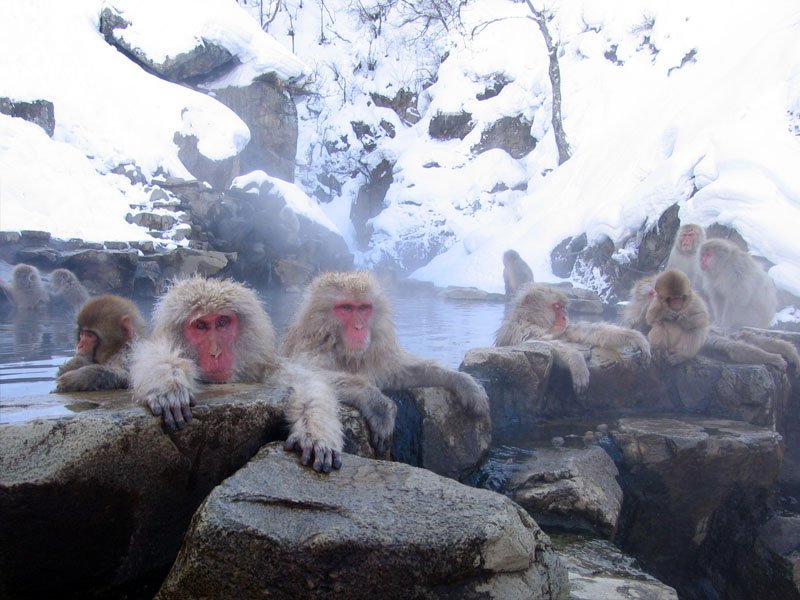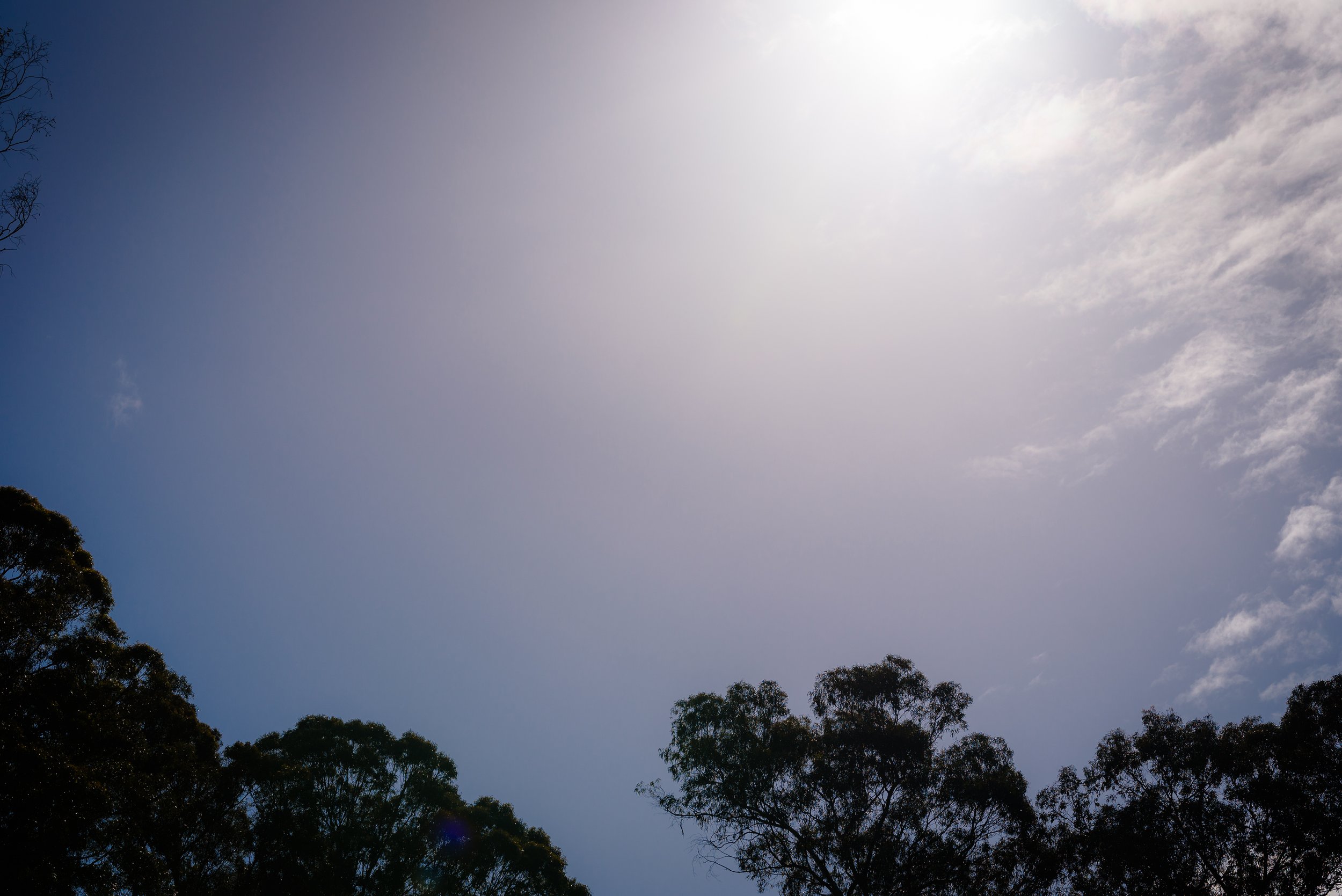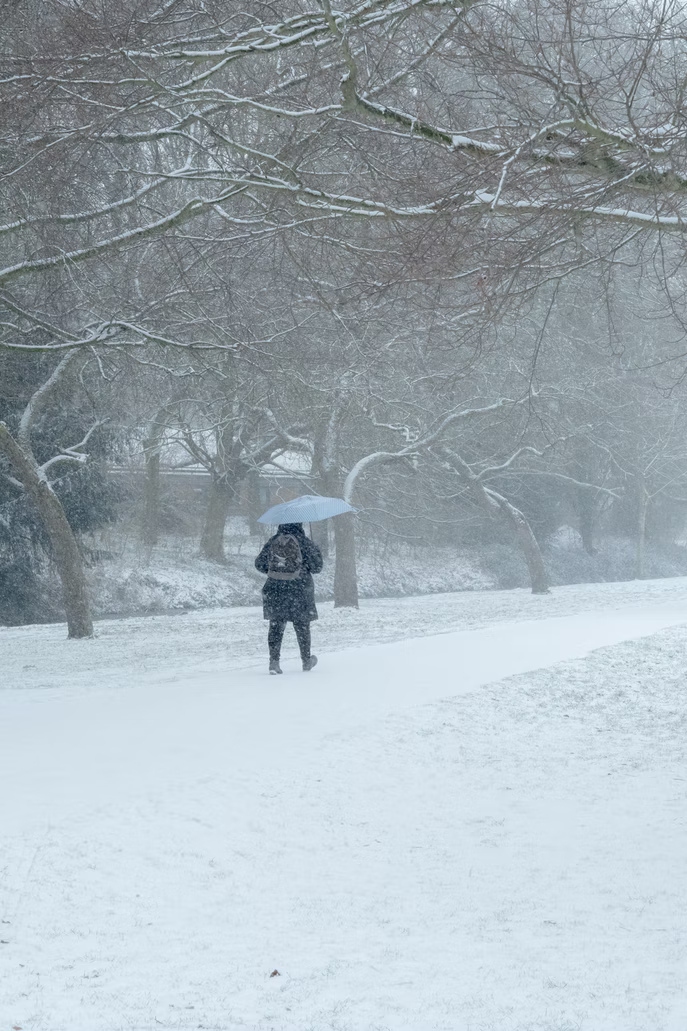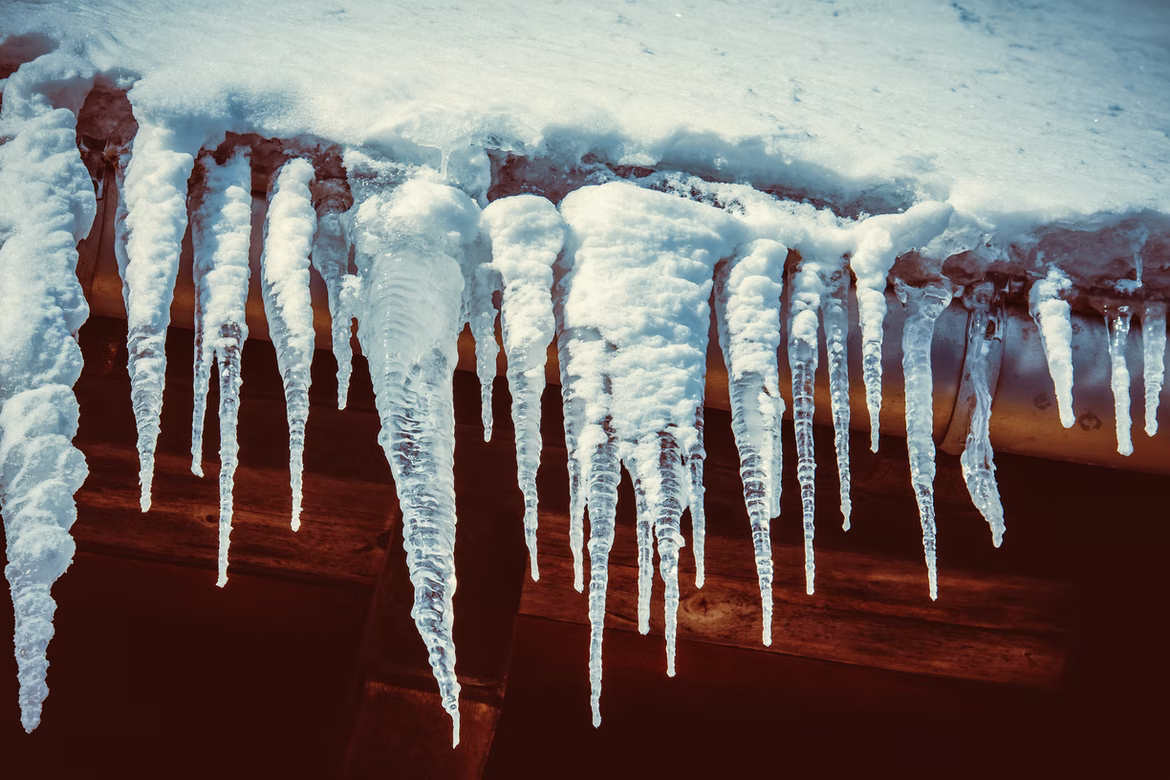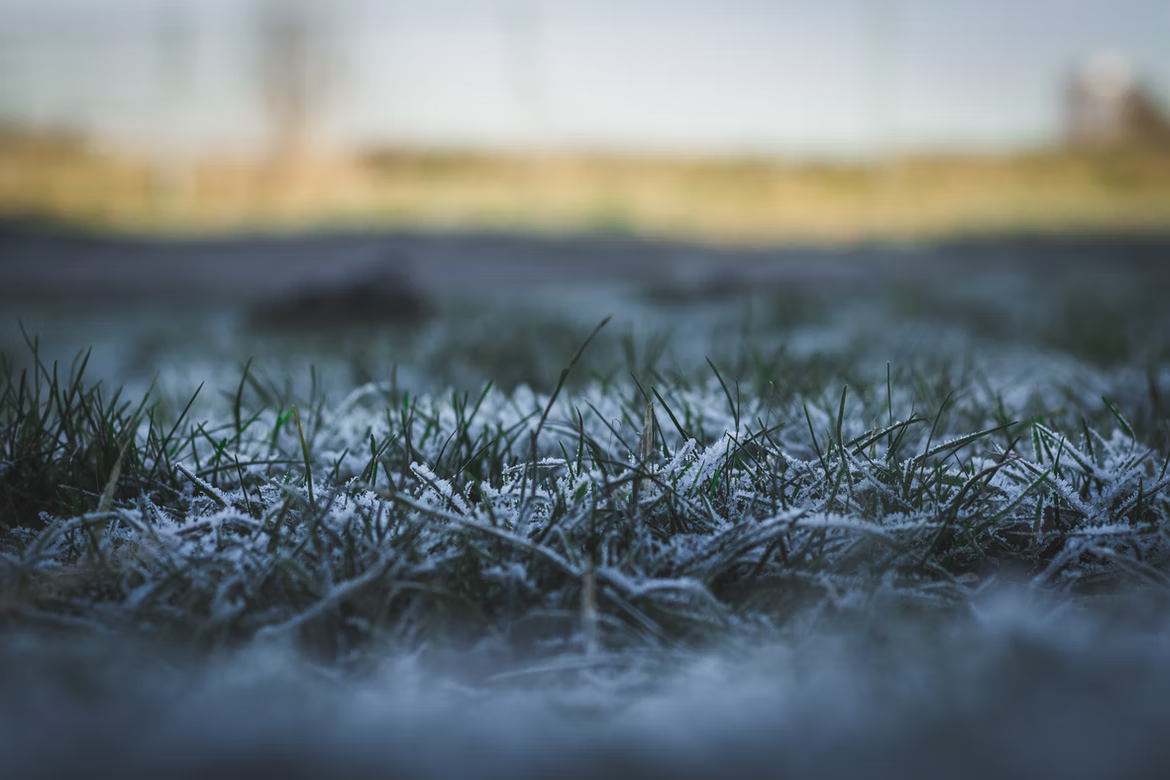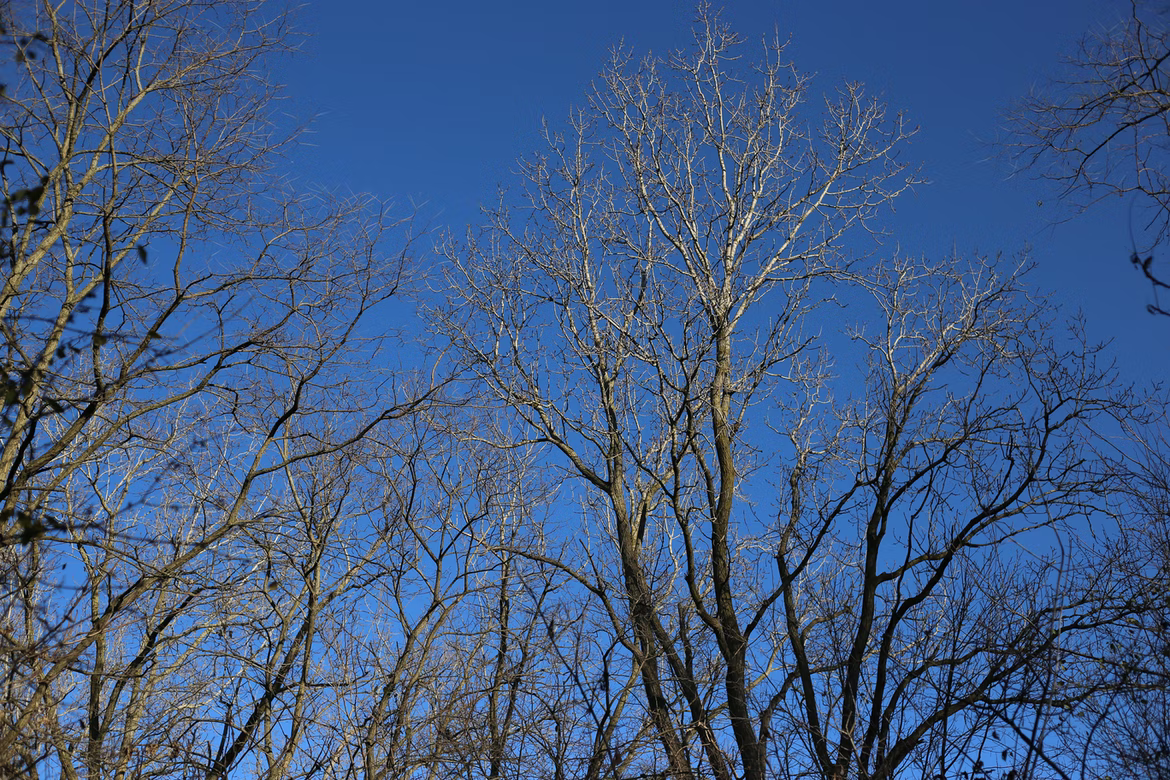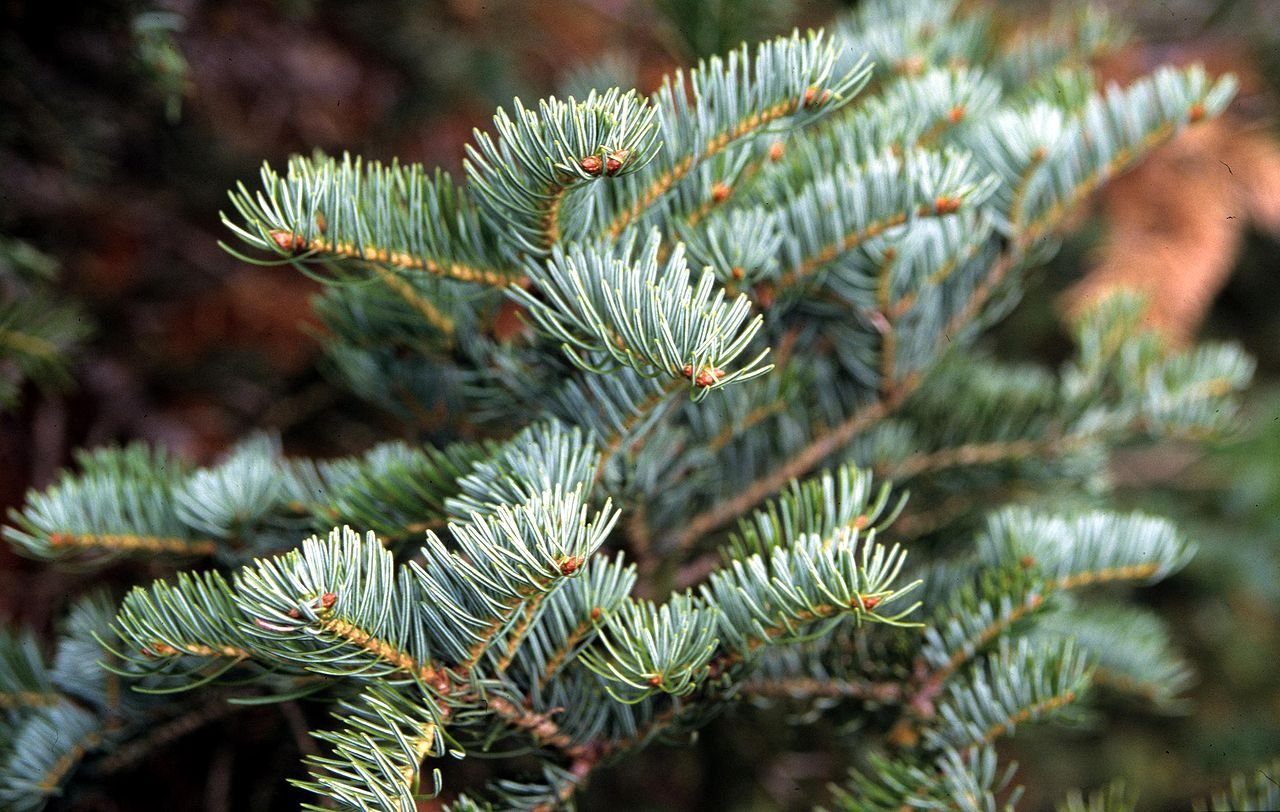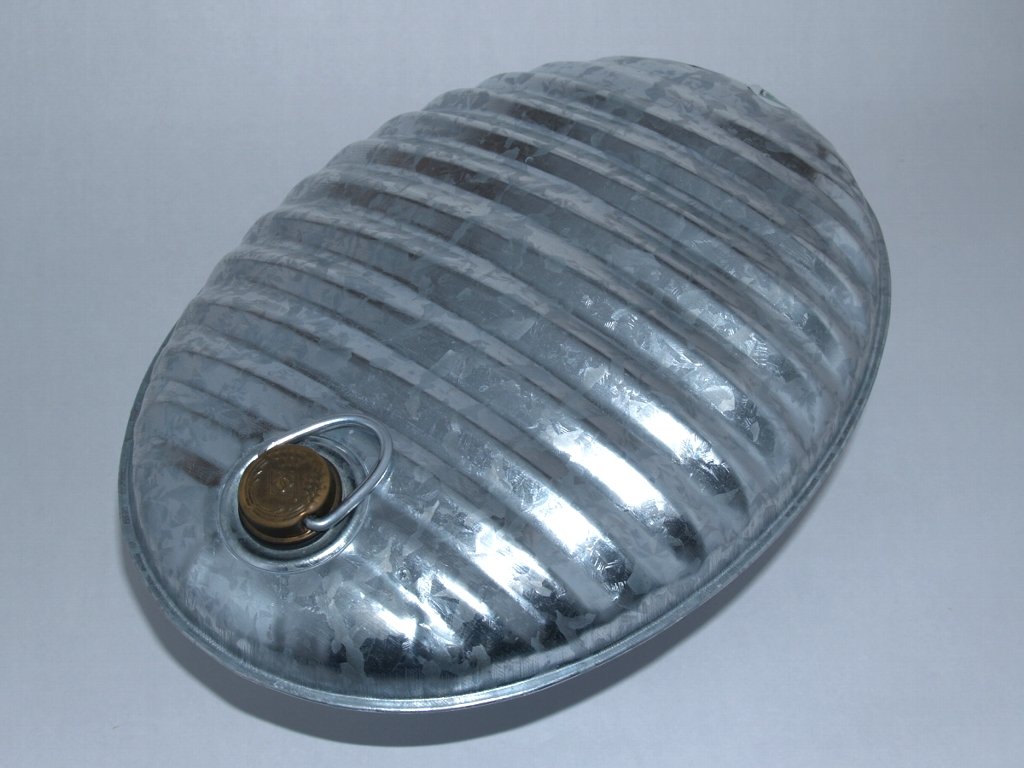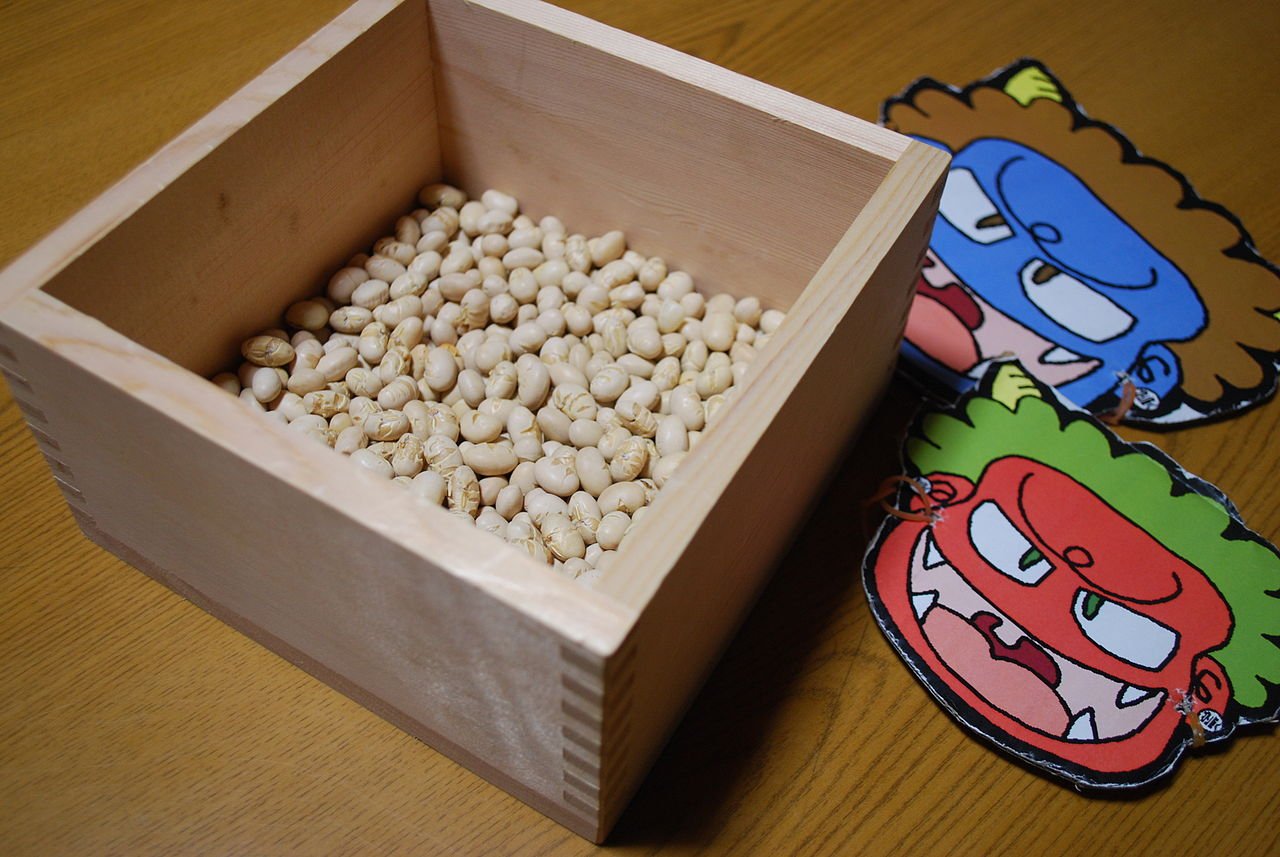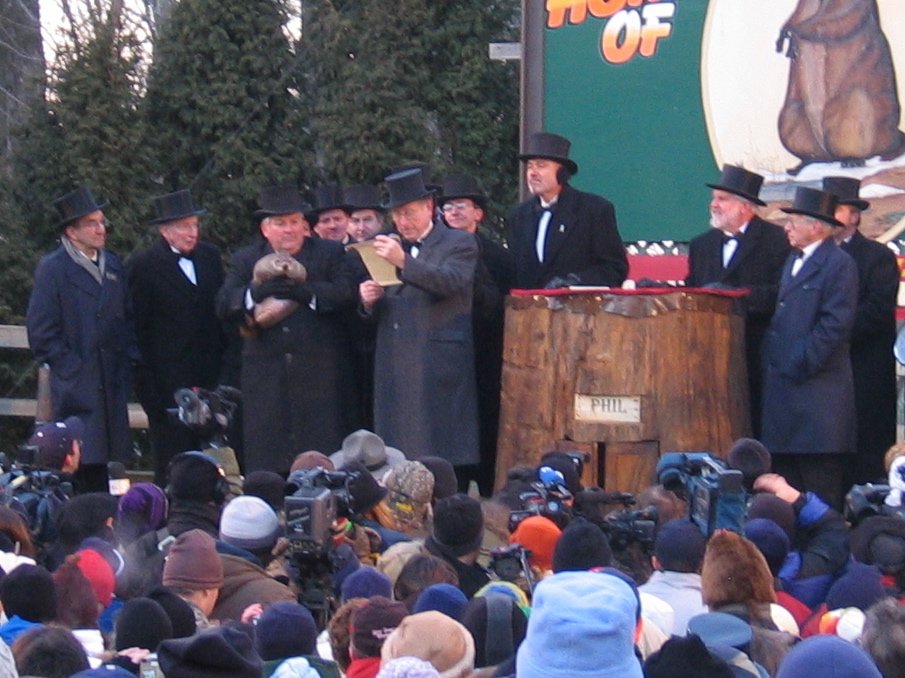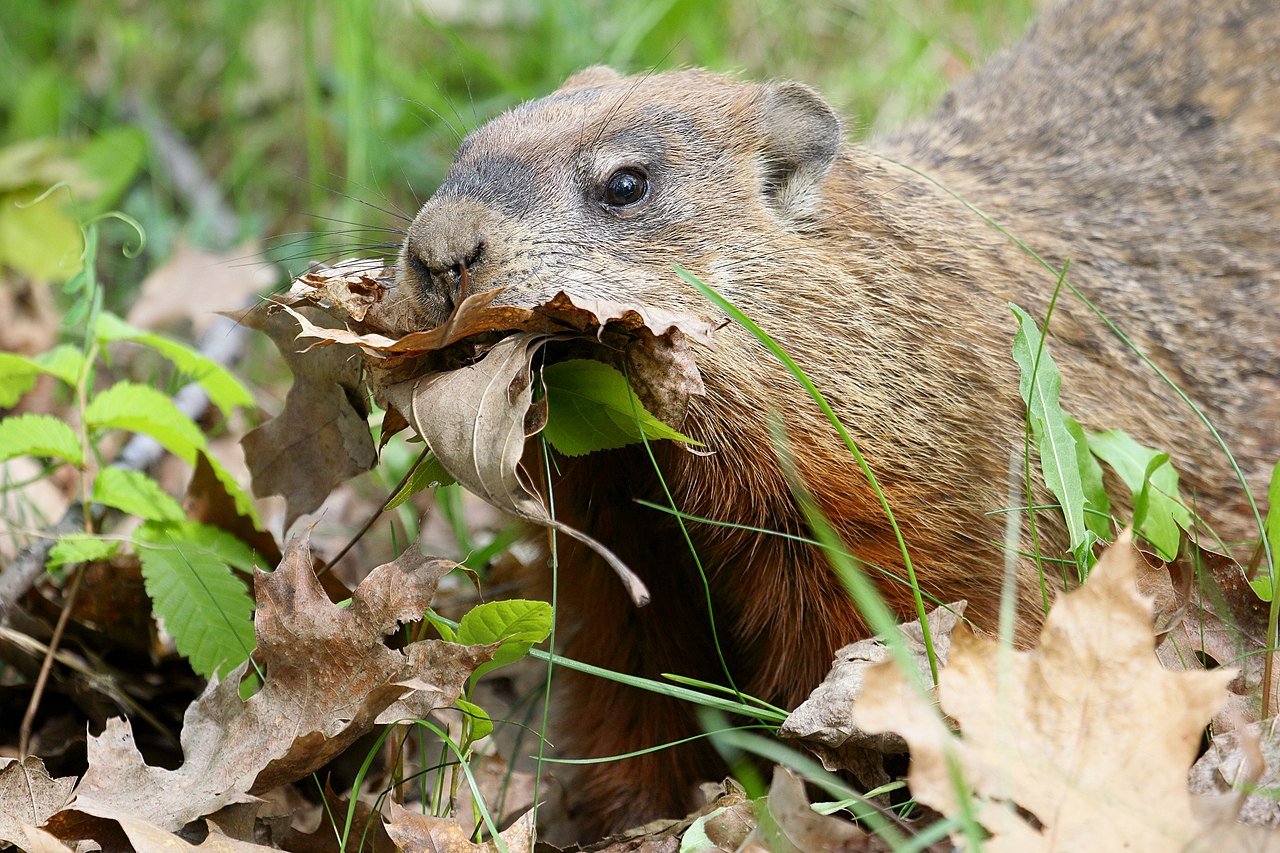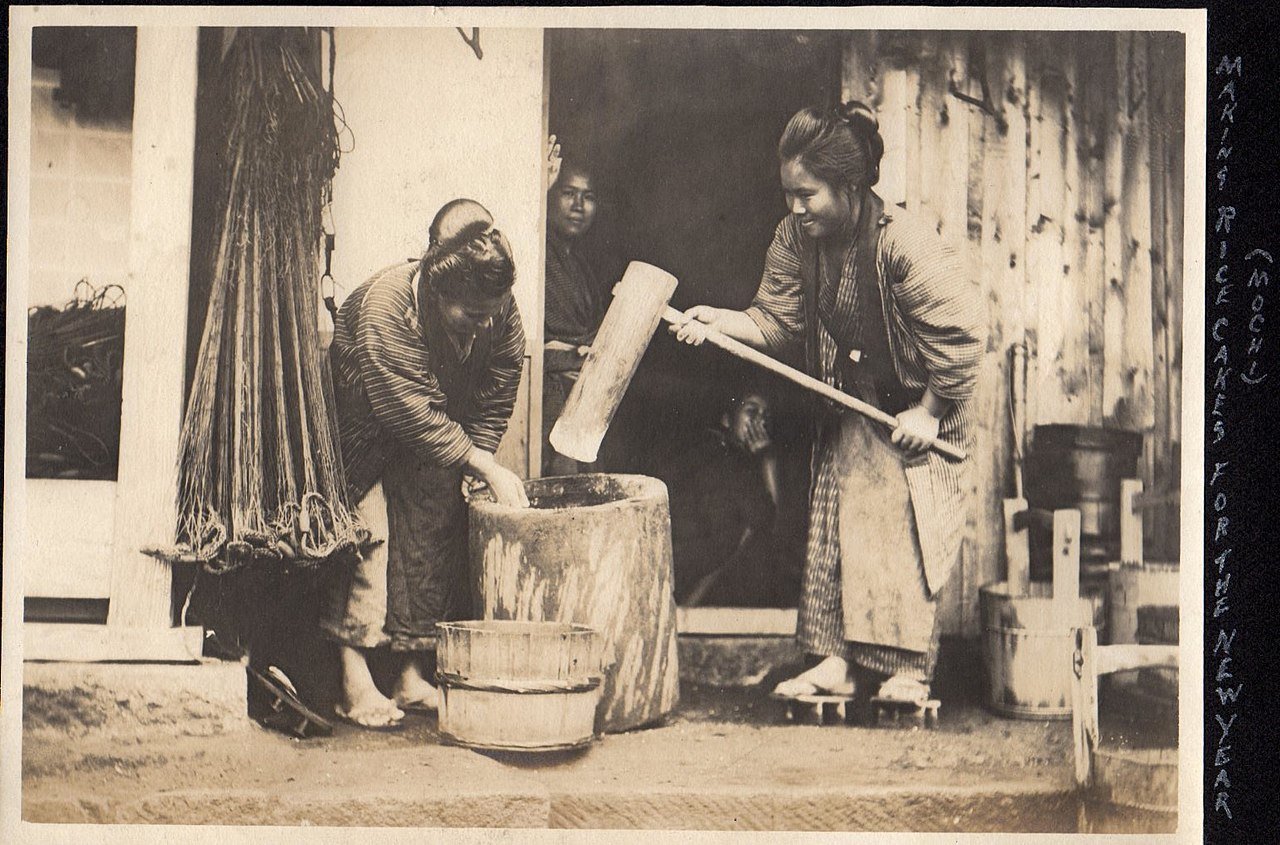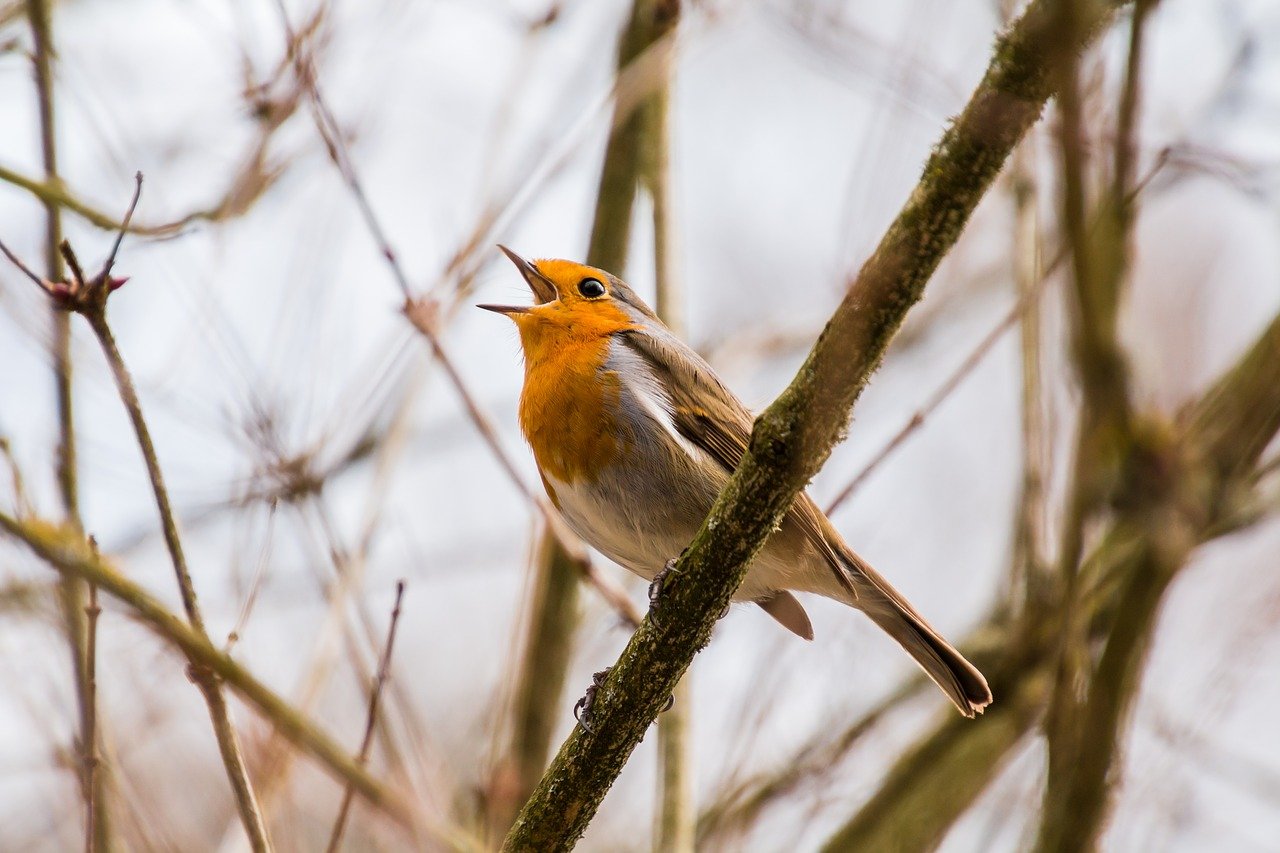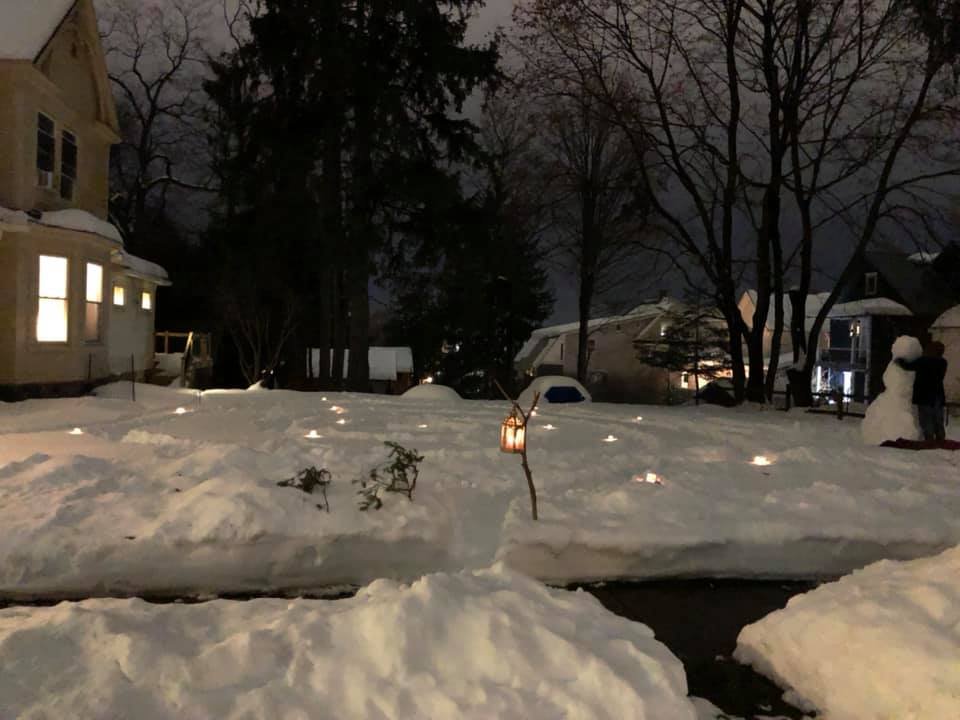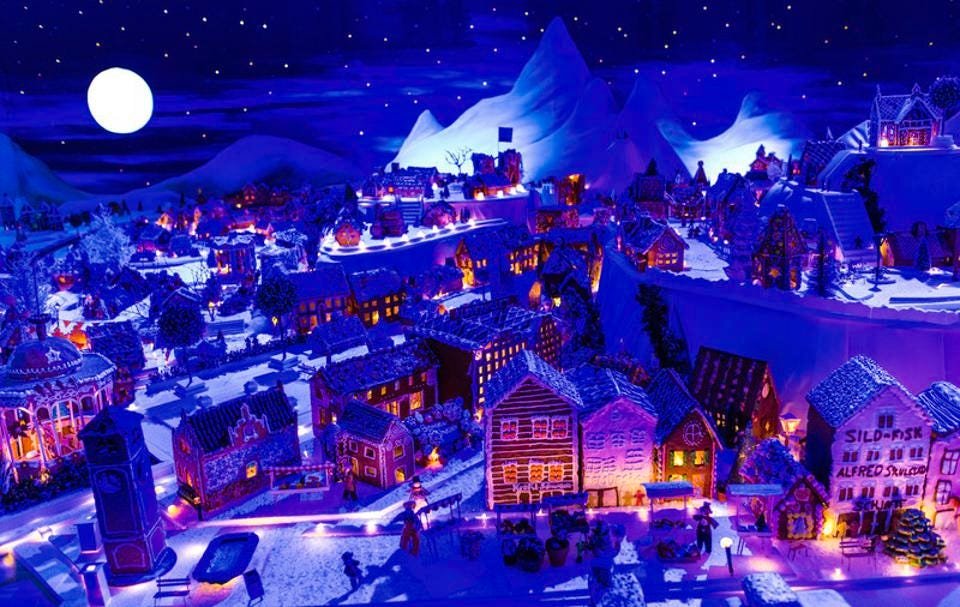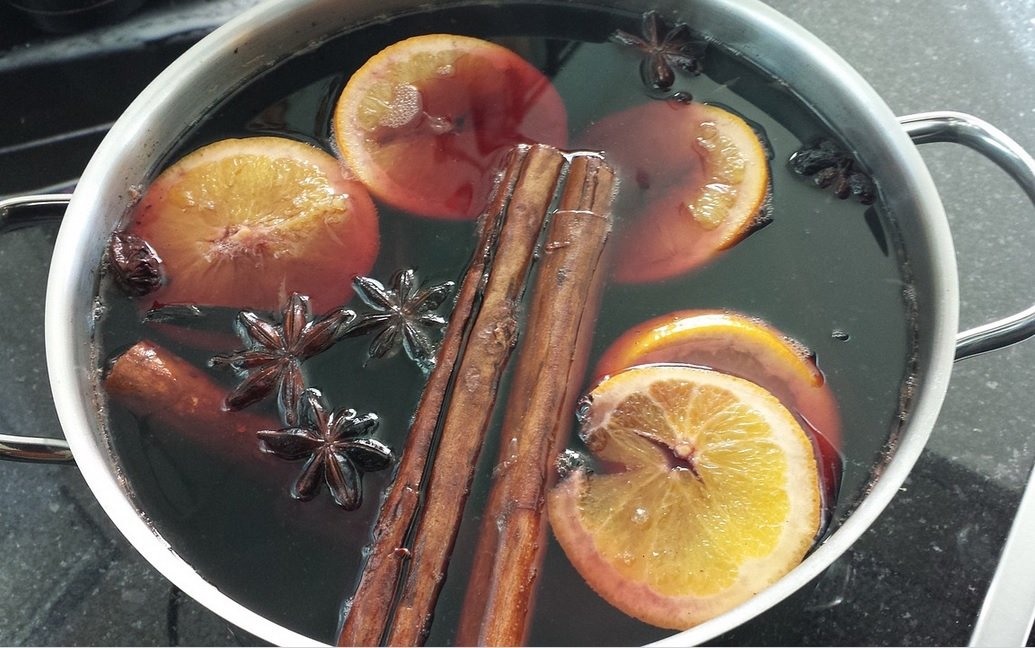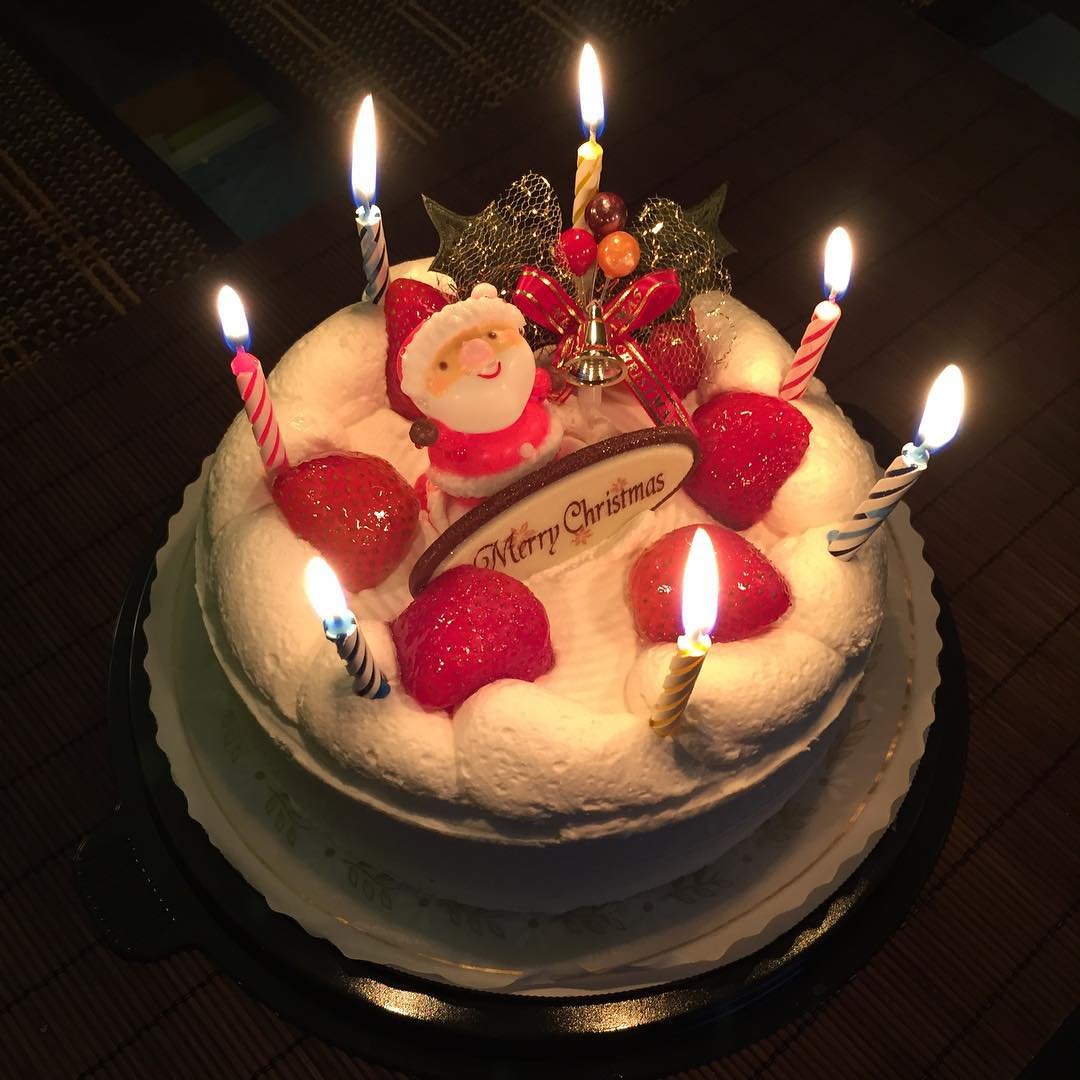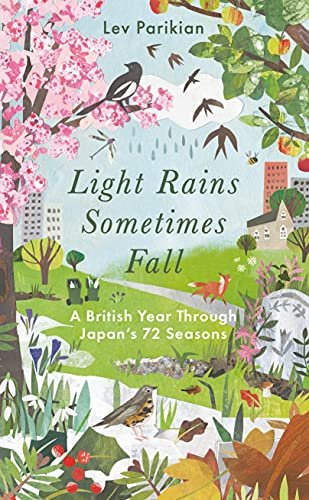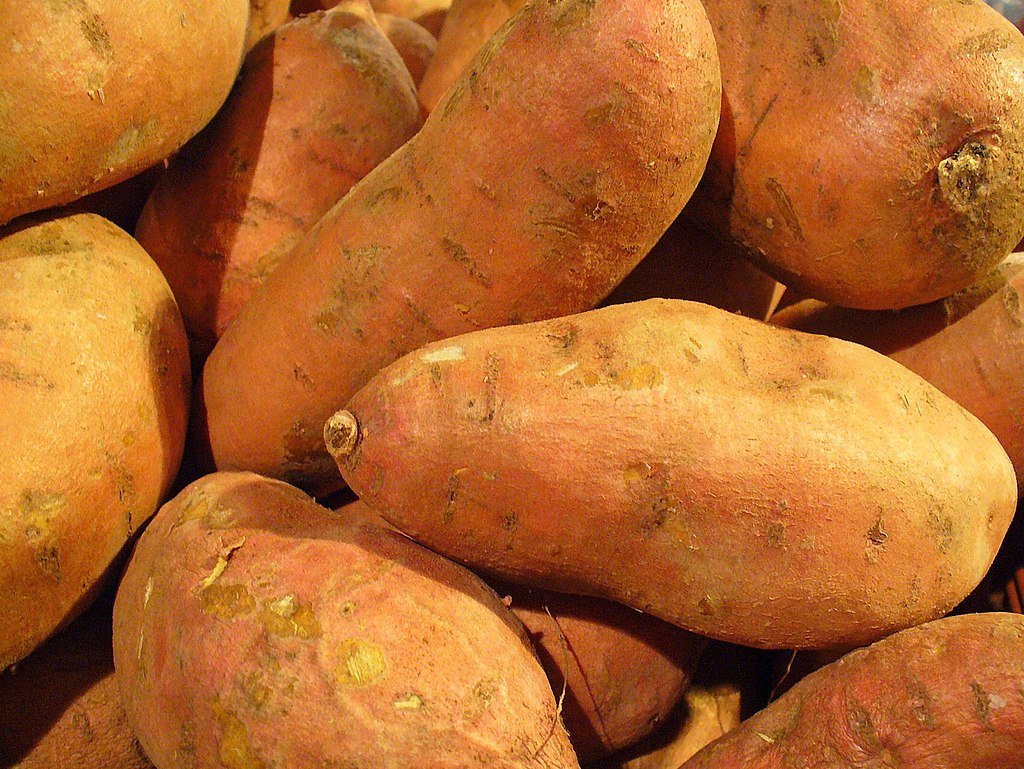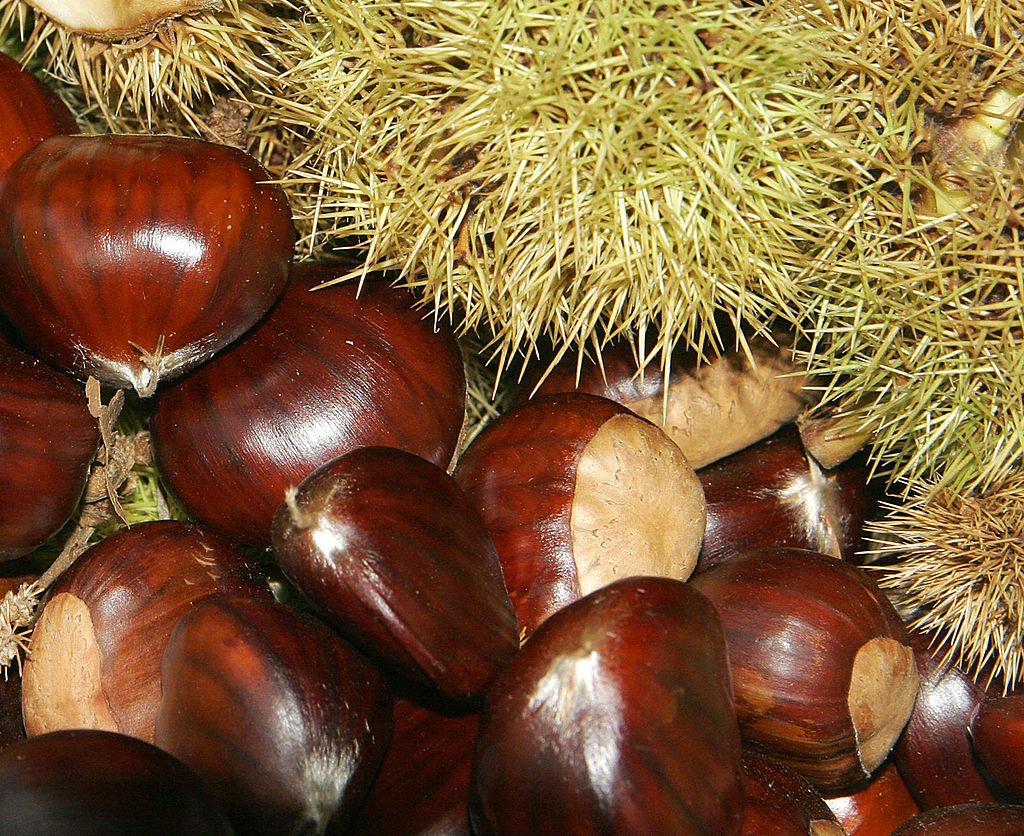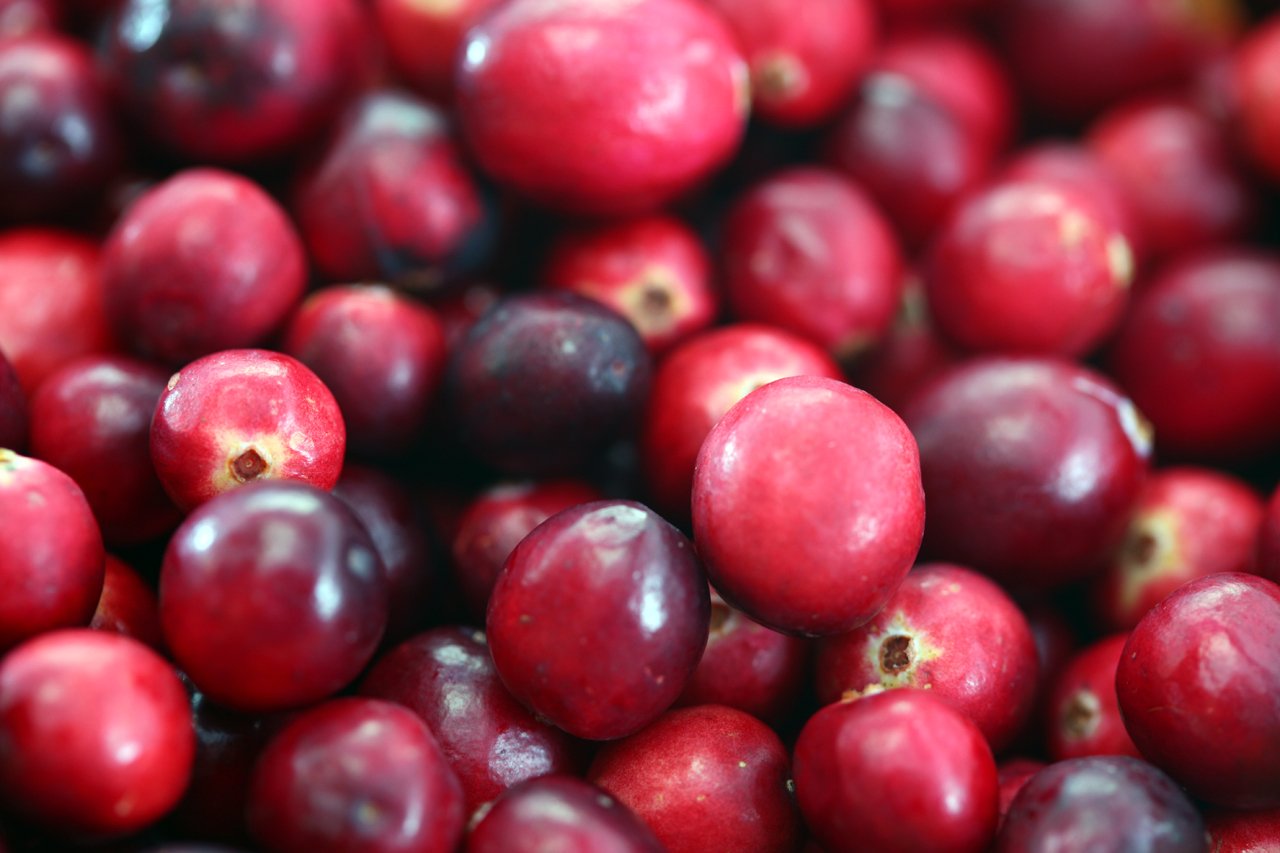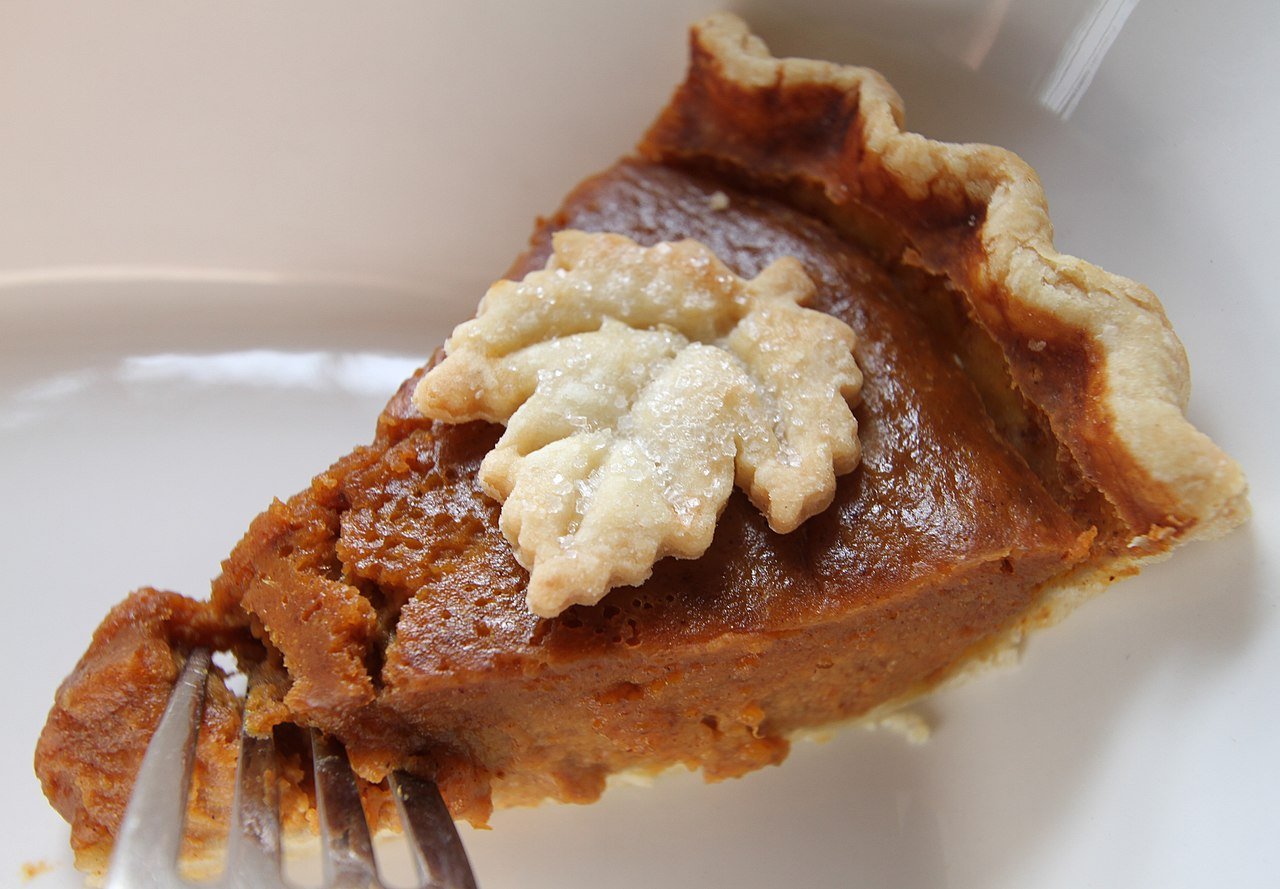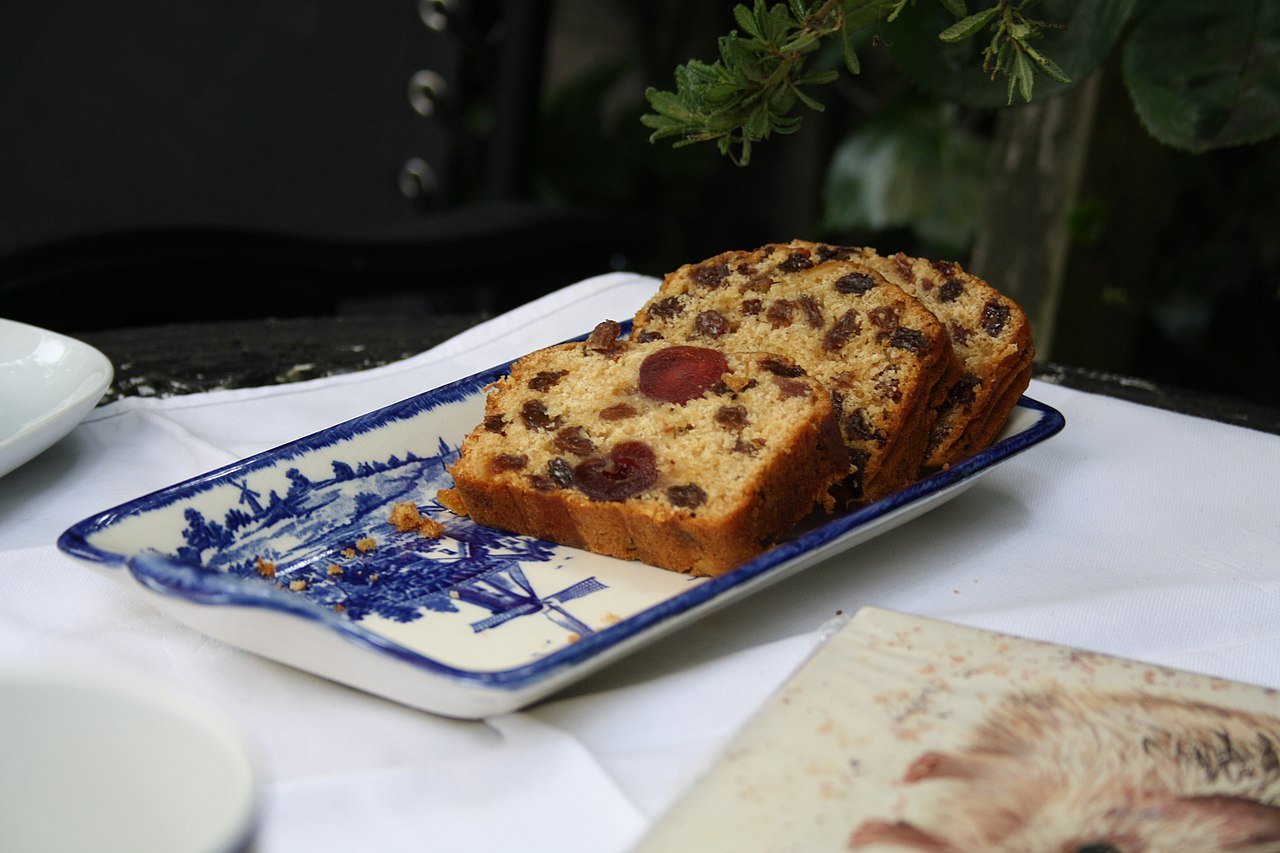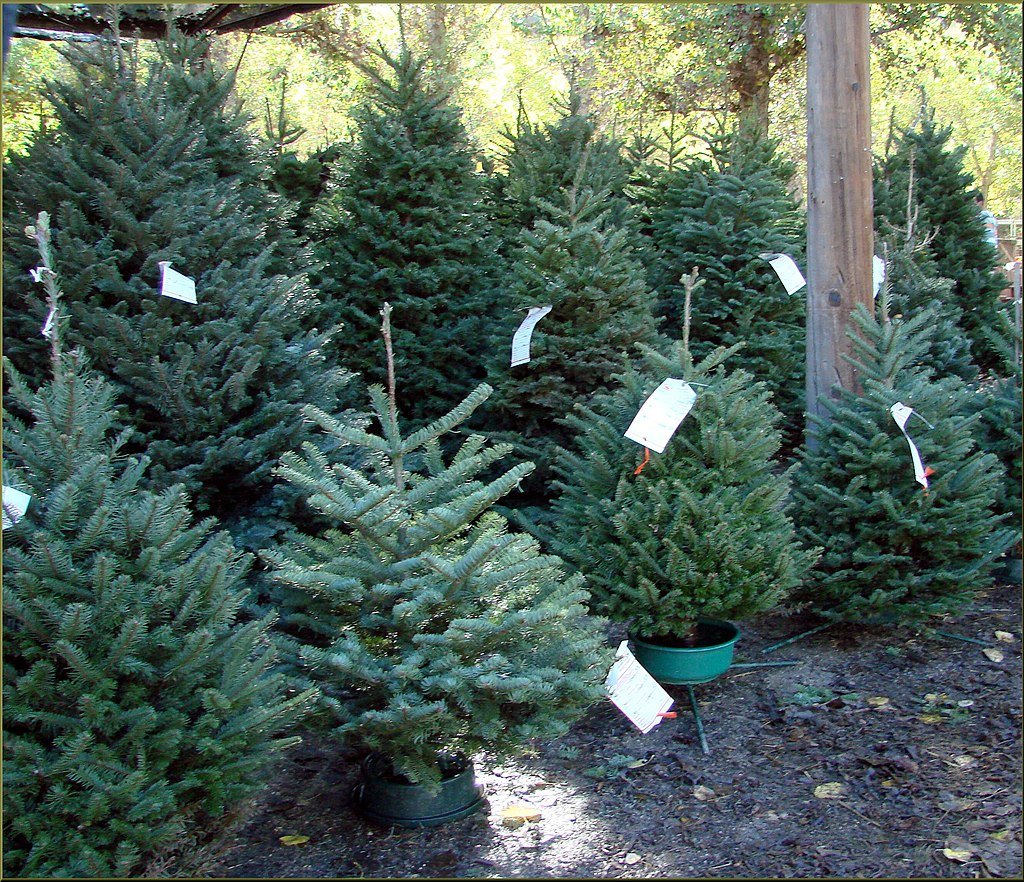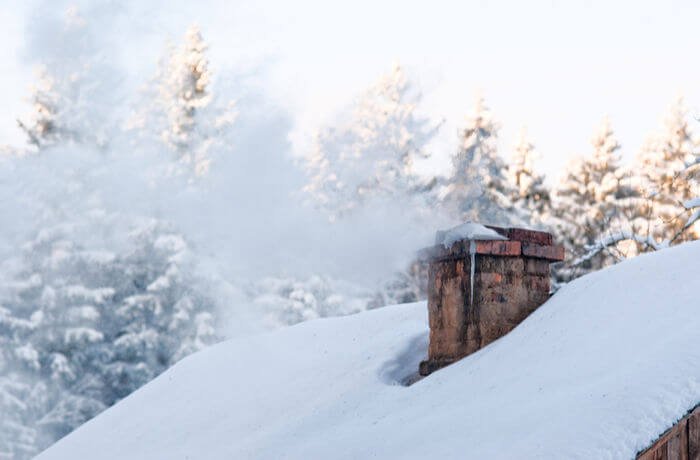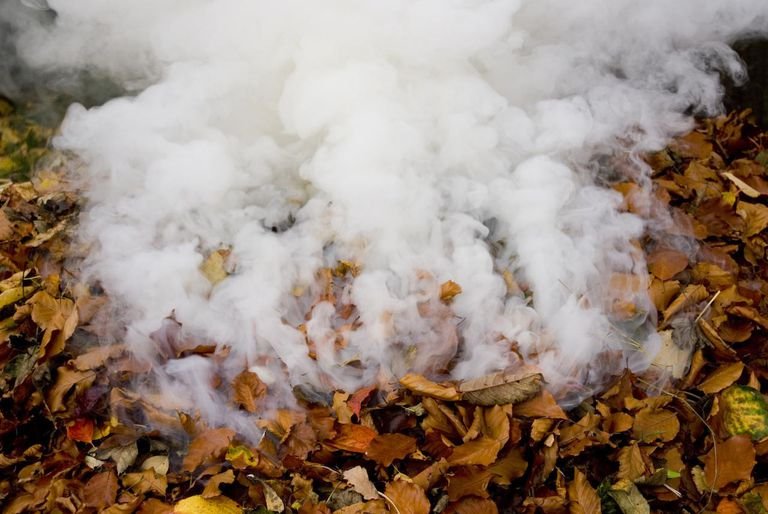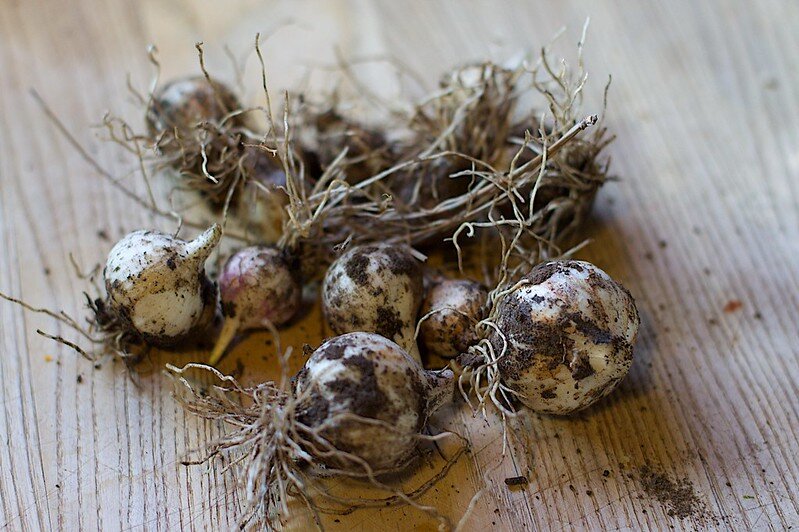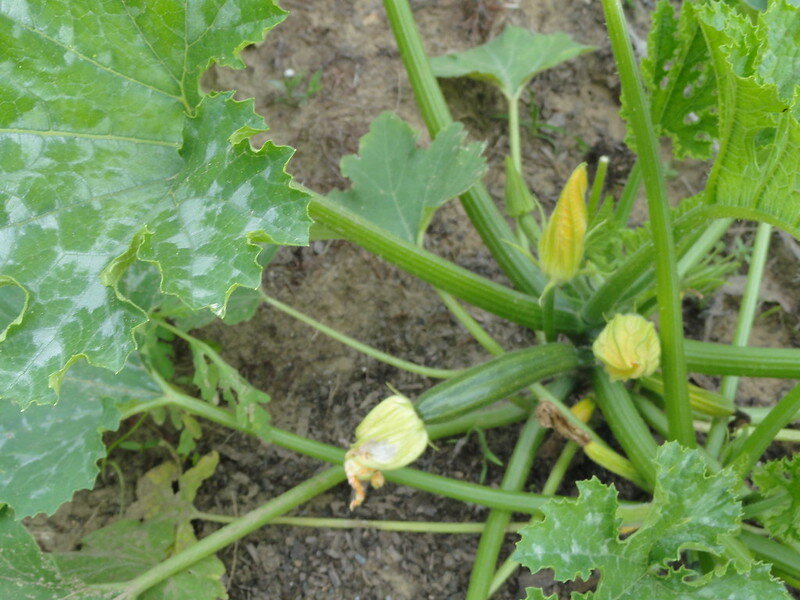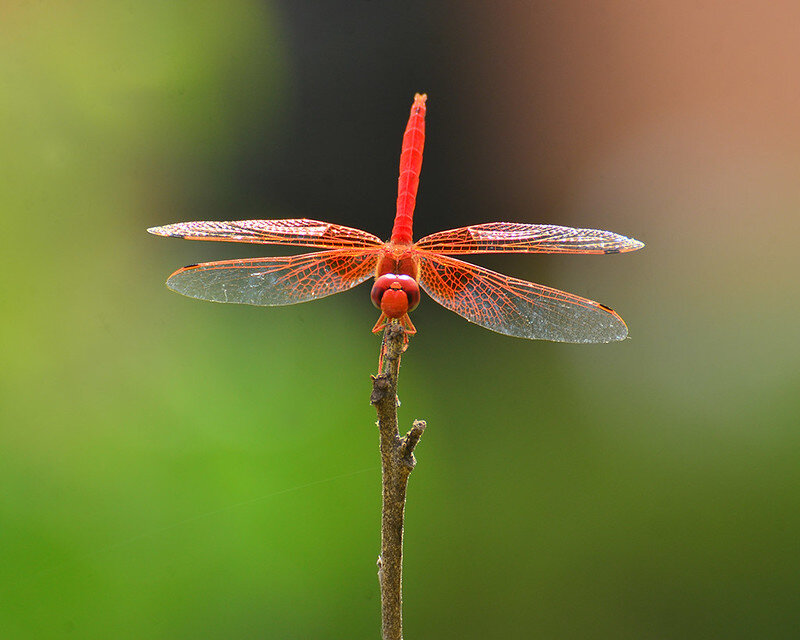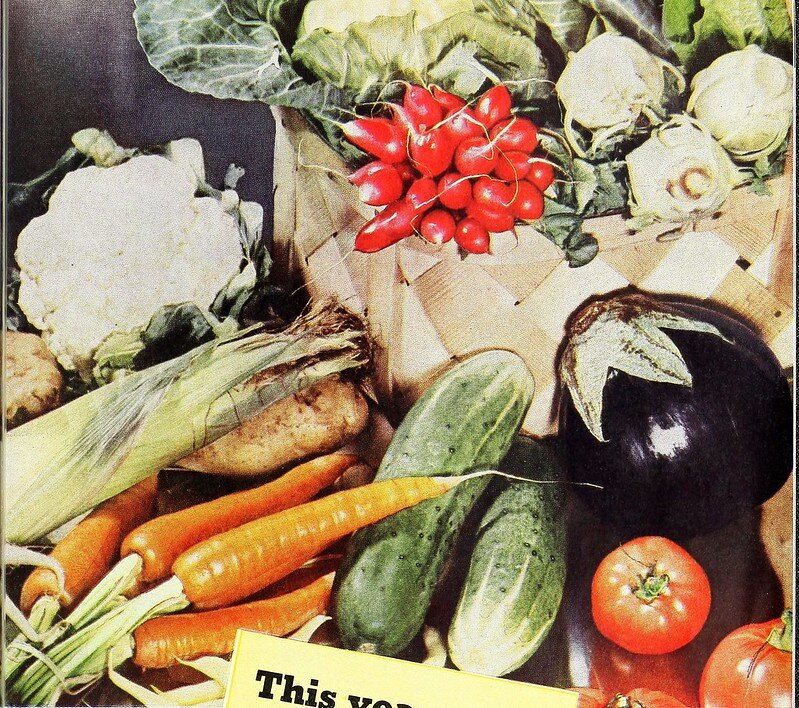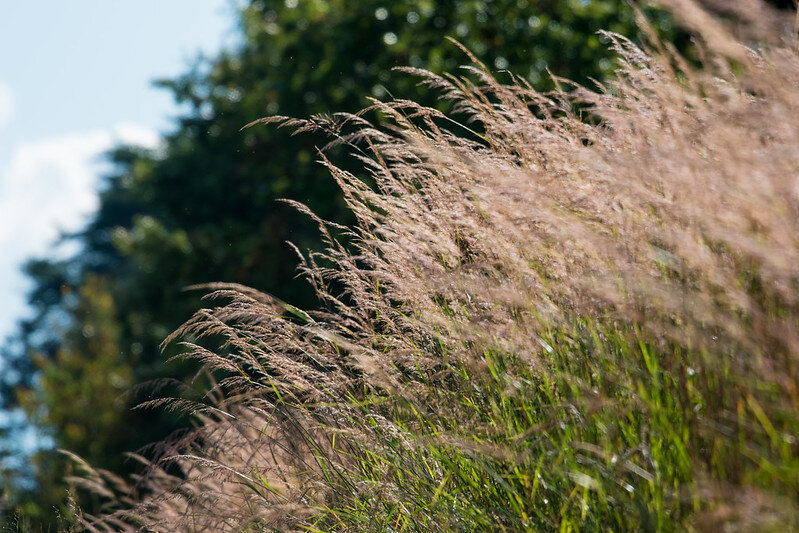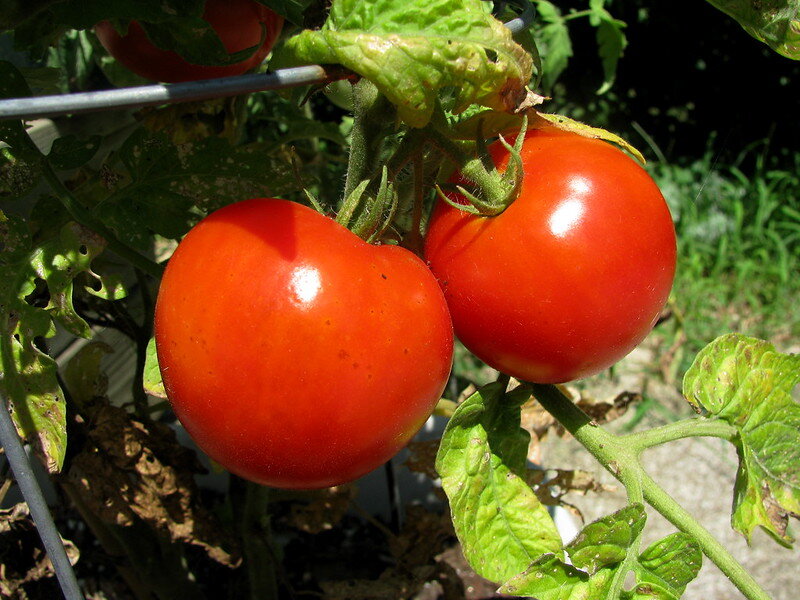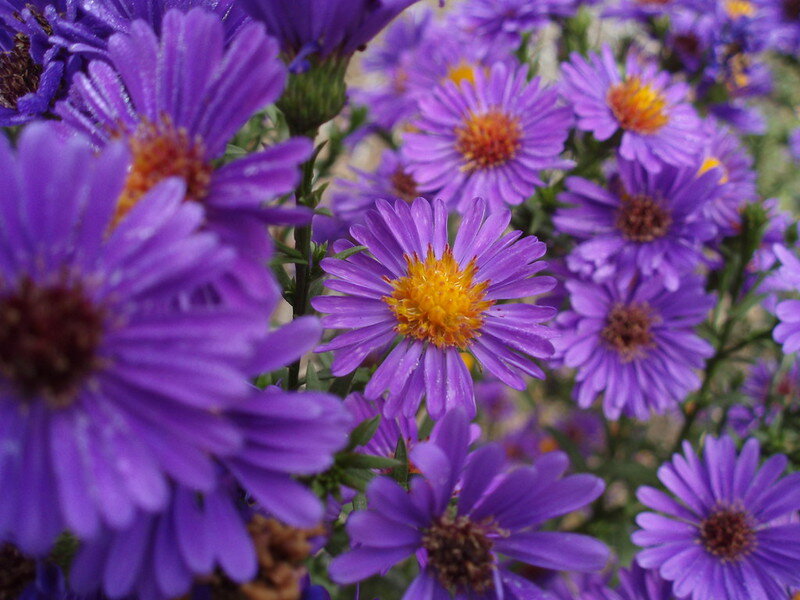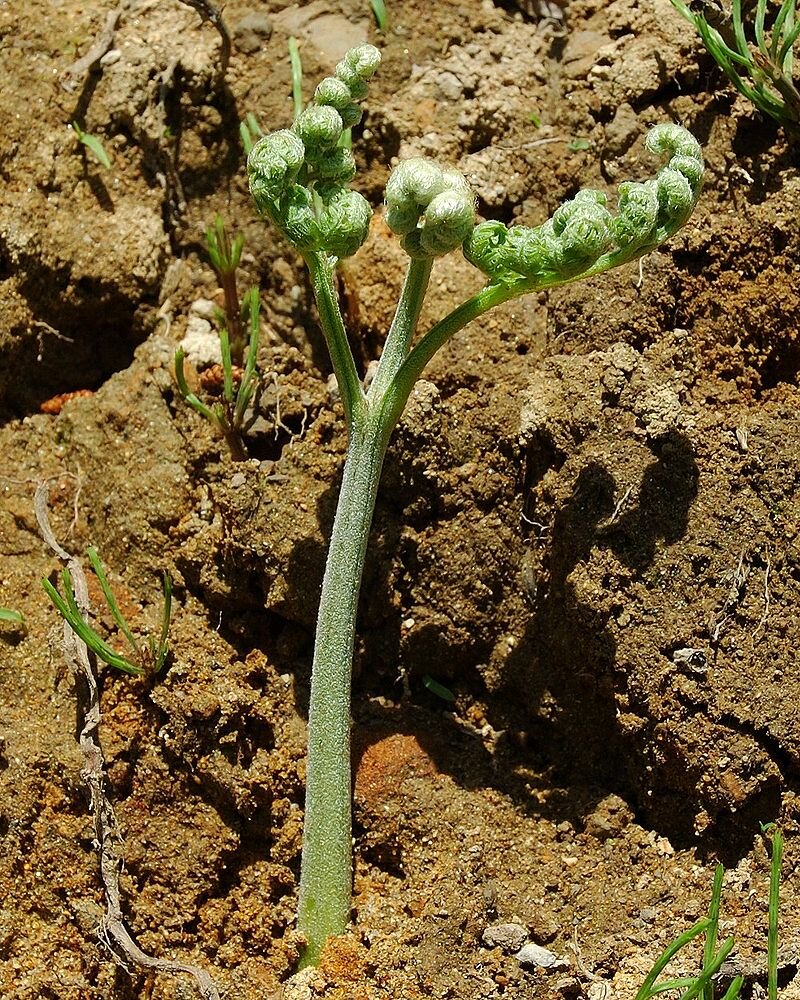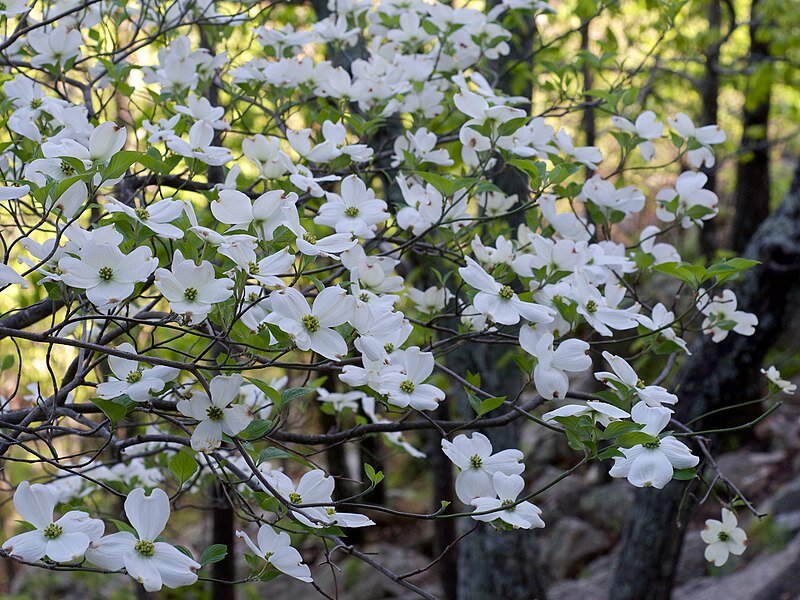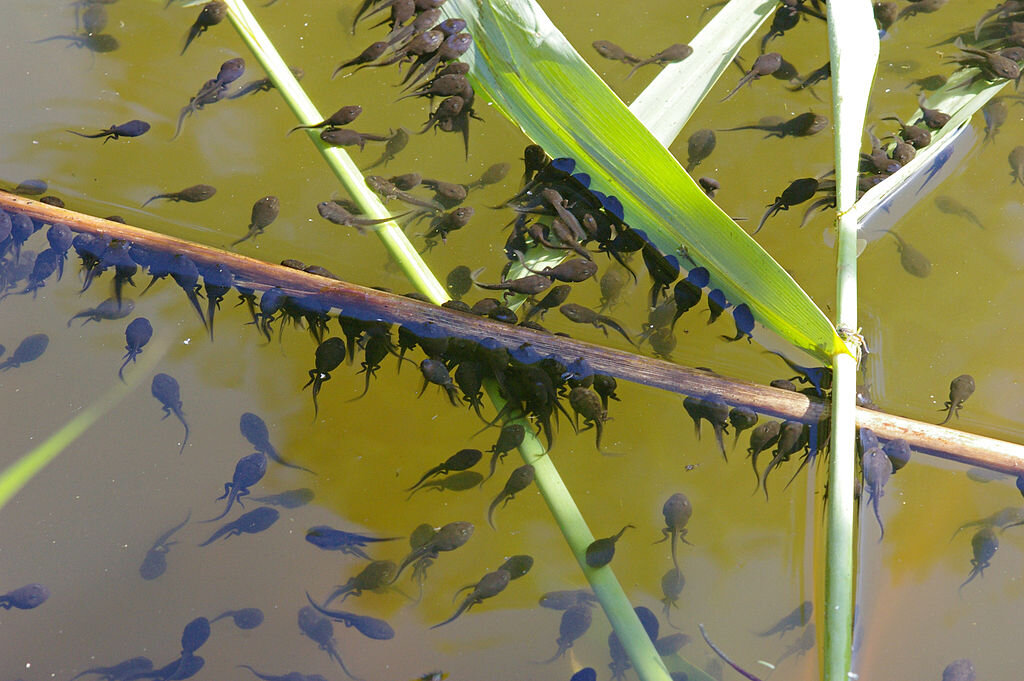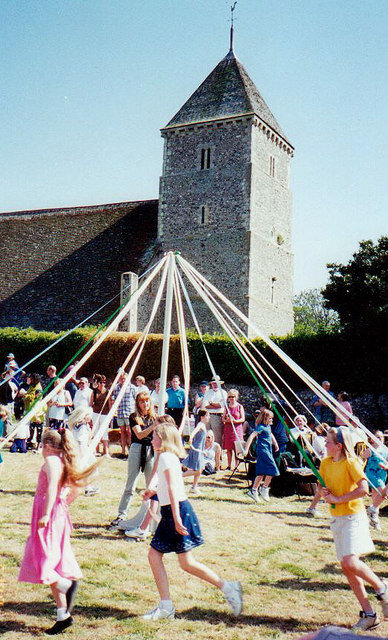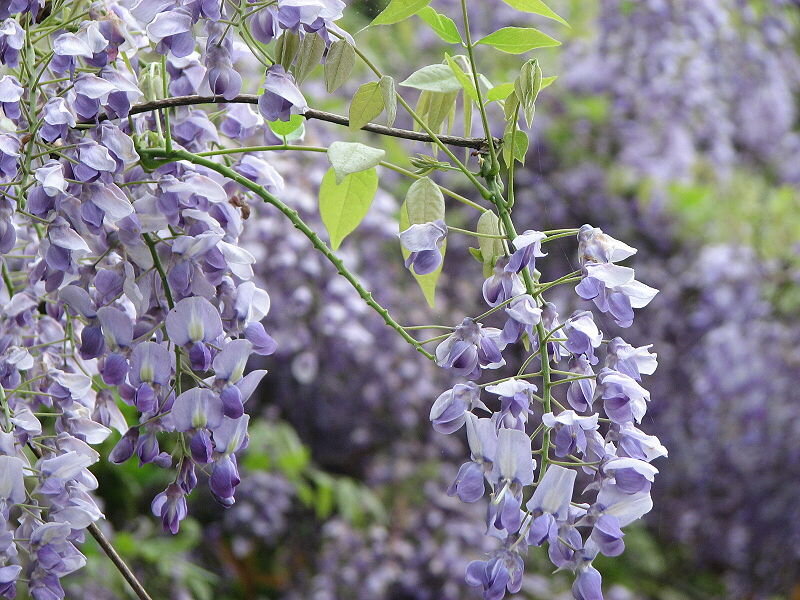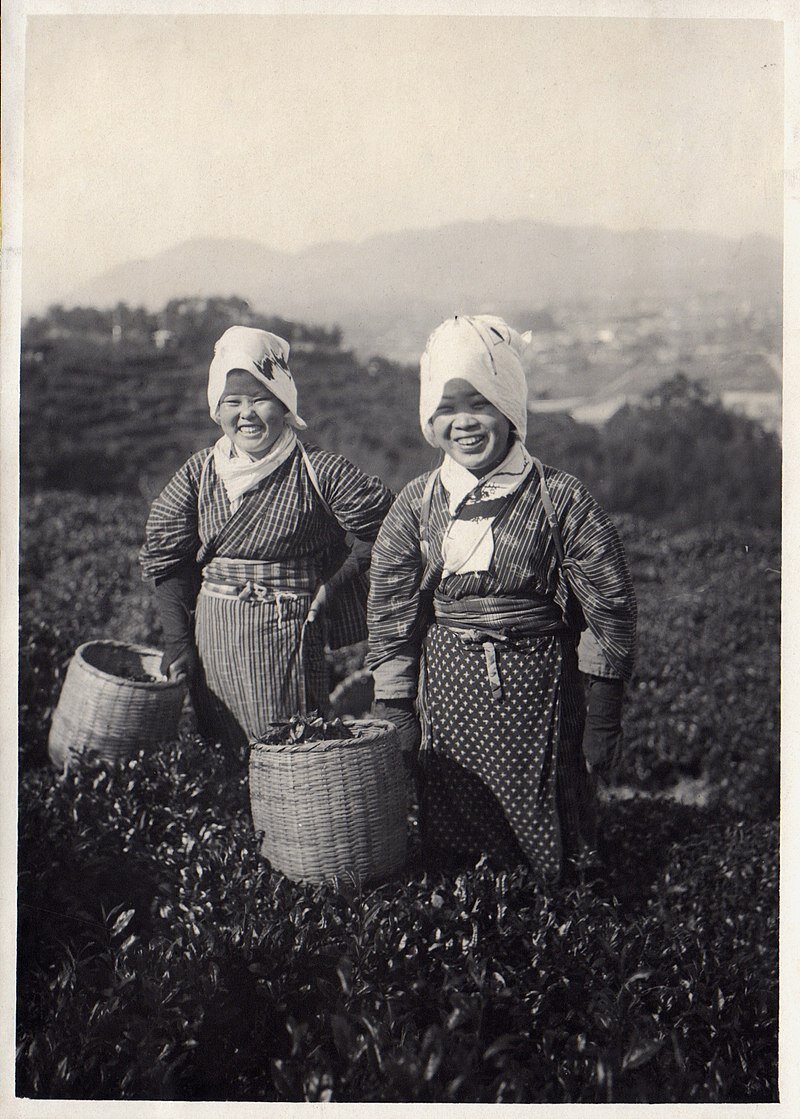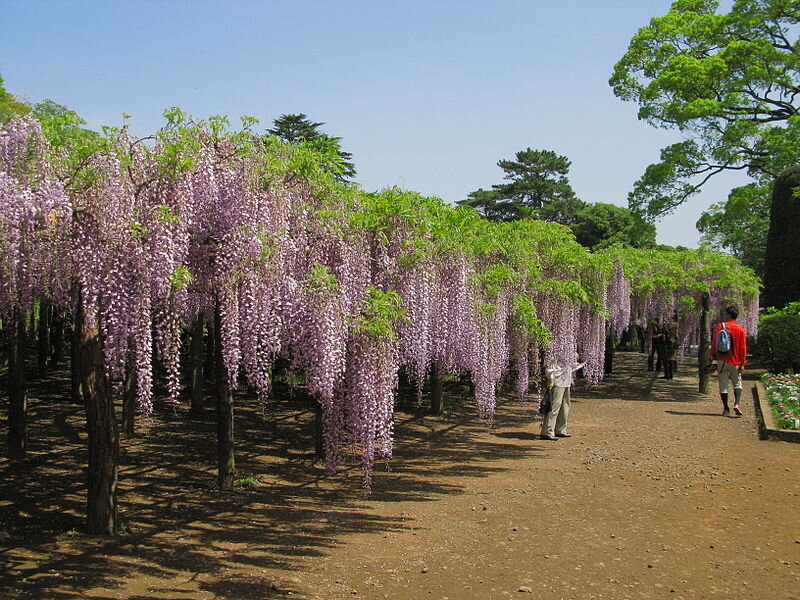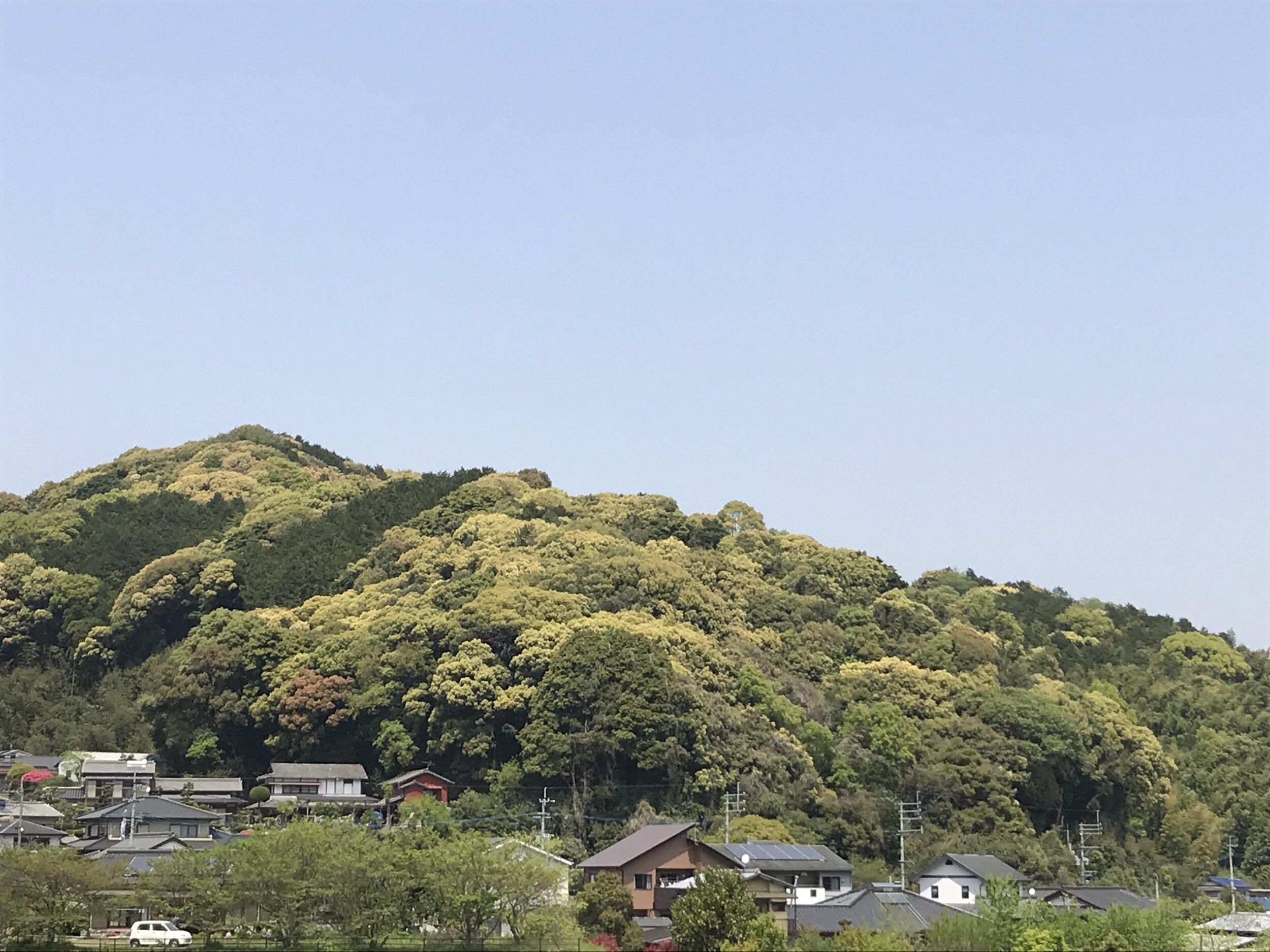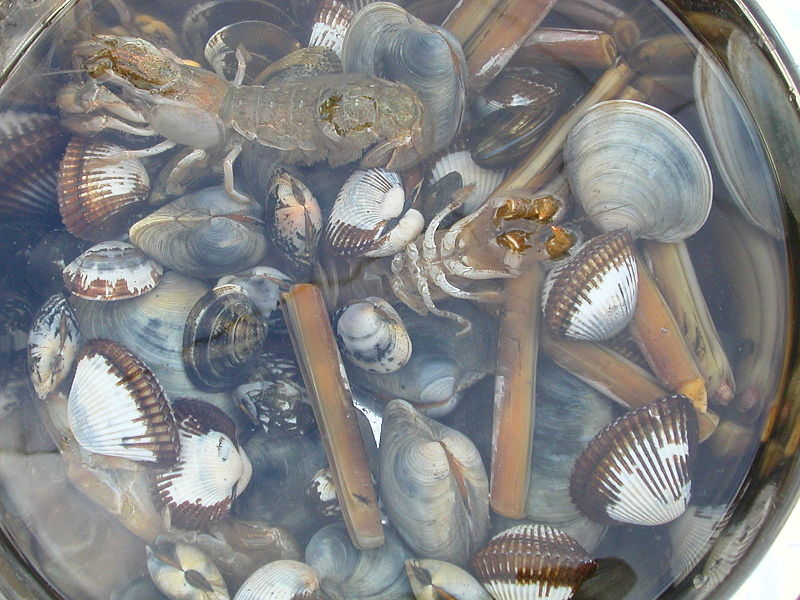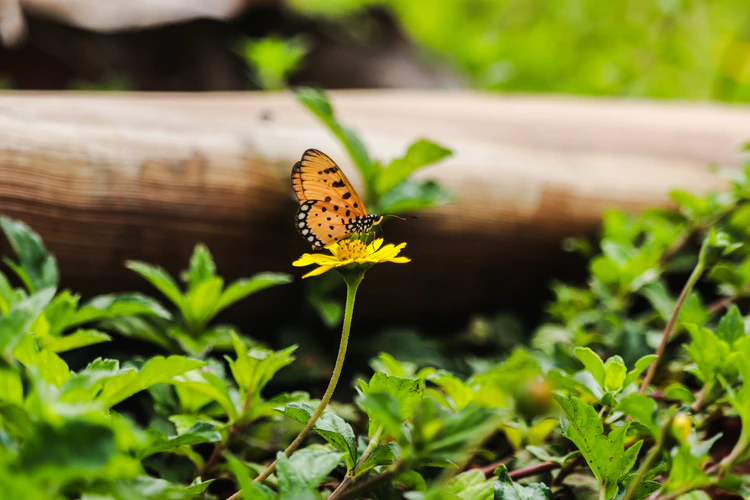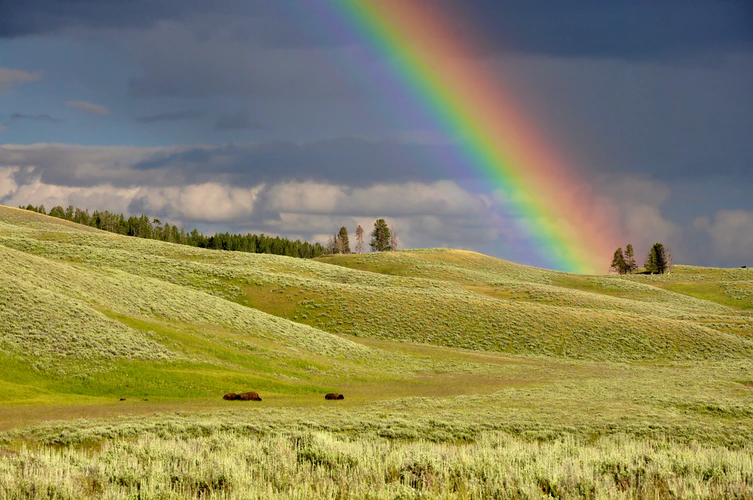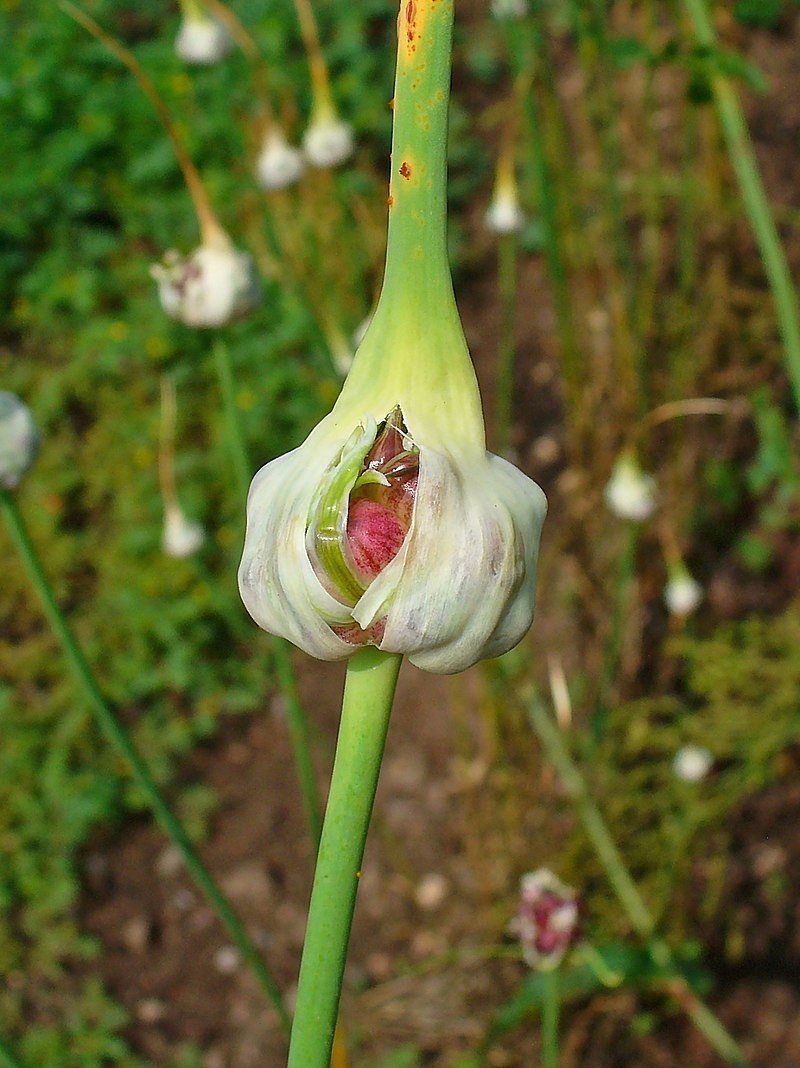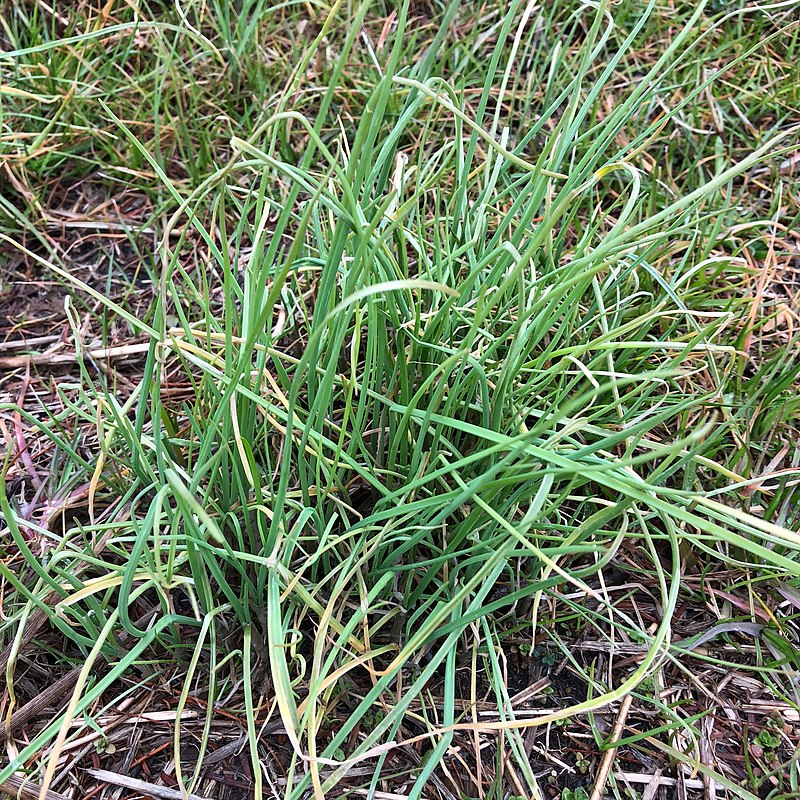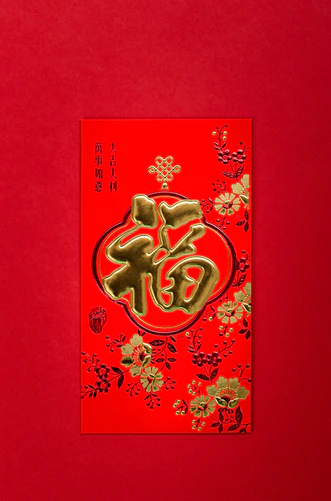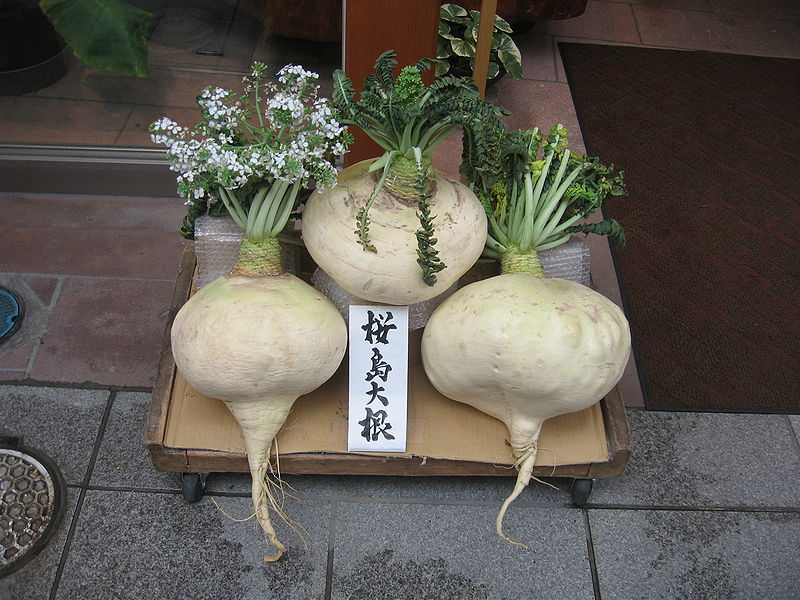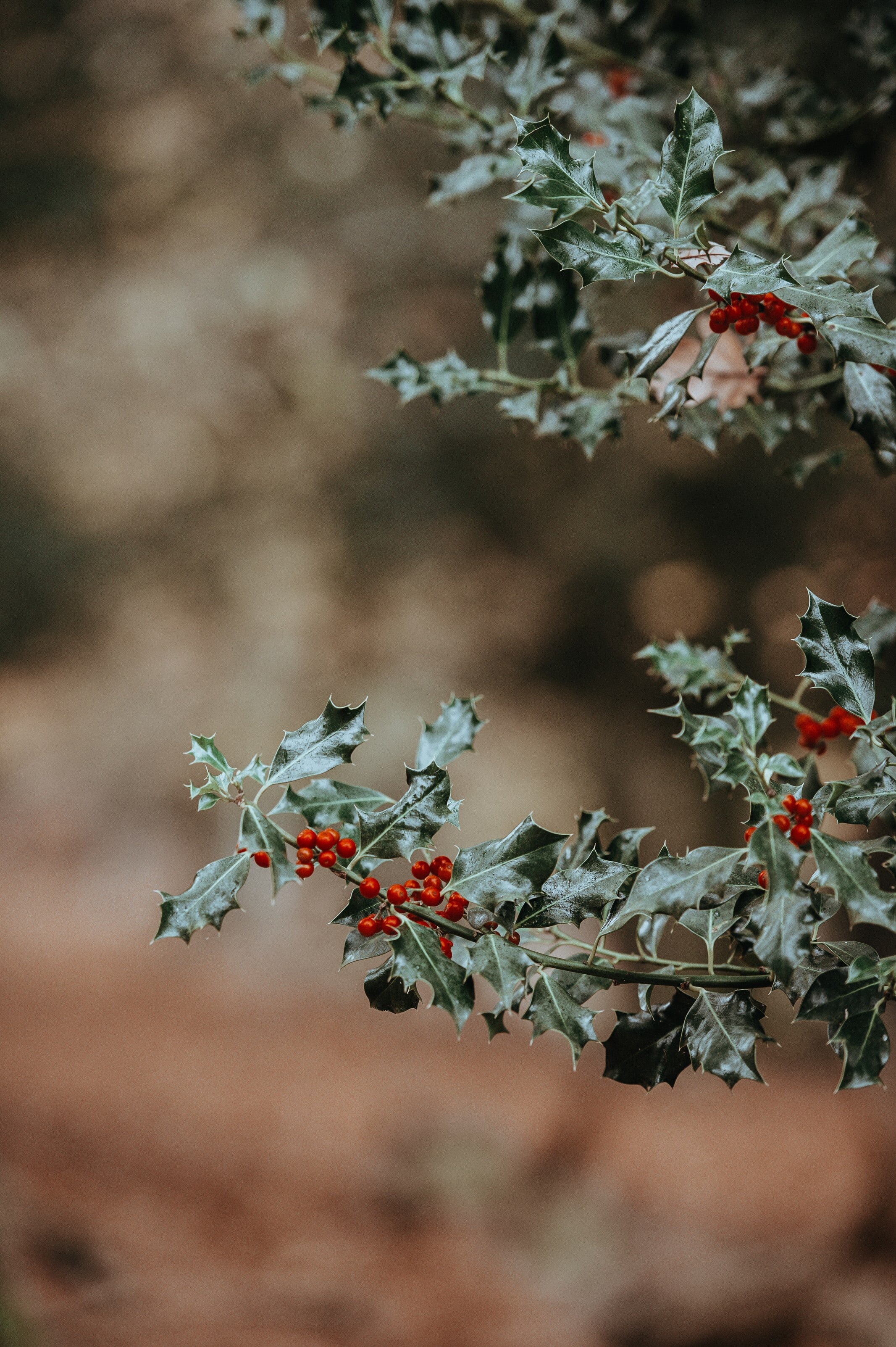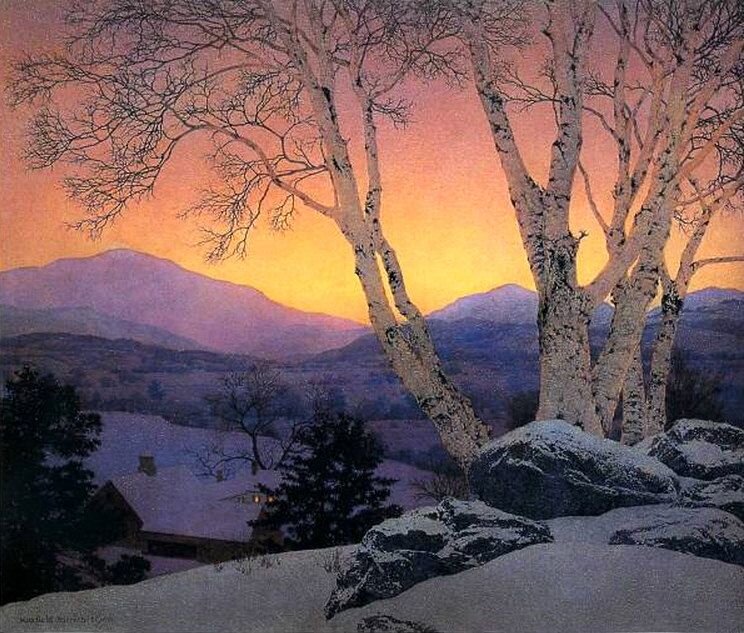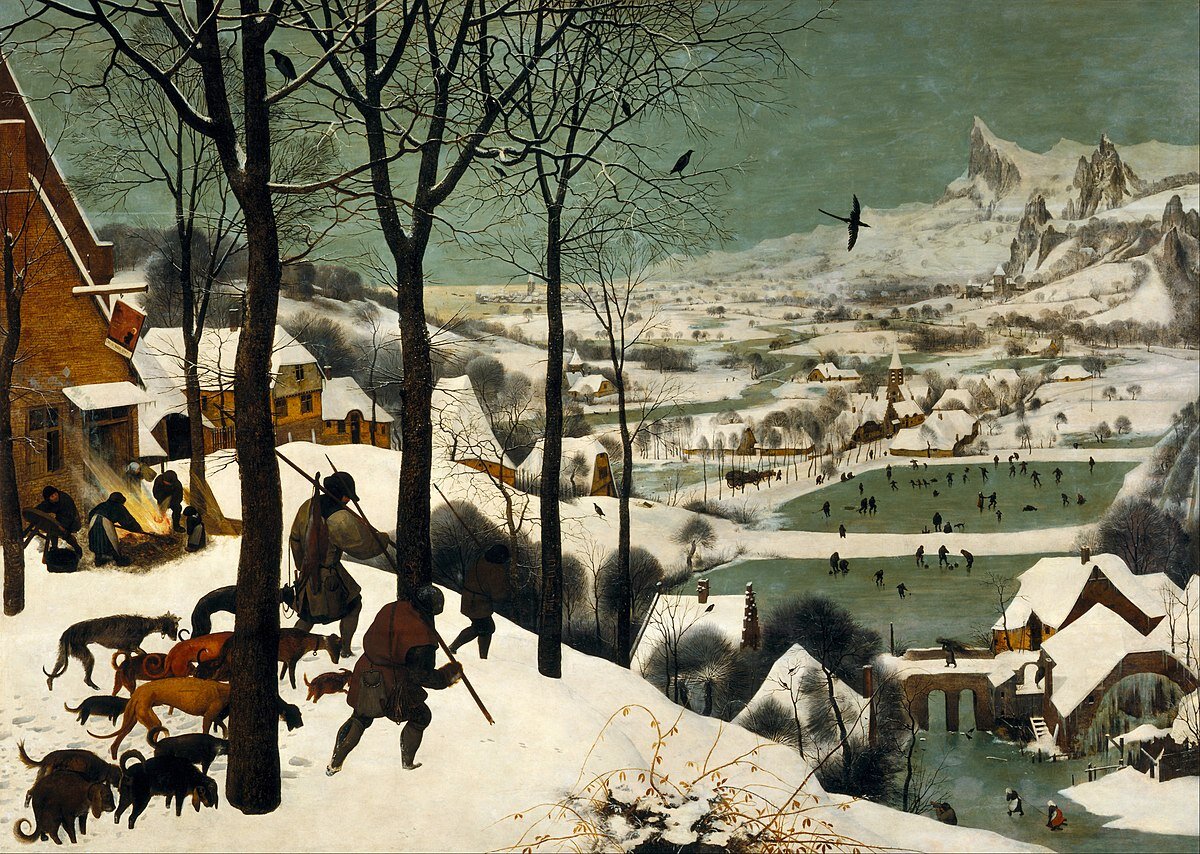First Frost Rediscovered
October 23 - November 6. In this chilly (and chilling!) episode, Kit and Alexis journey through the eerie, melancholy season of Halloween and the Day of the Dead; will they escape alive, or will they meet their grim deaths as predicted in their calaveras literarias?! In Hiro’s Corner, a closer look at the seasonal concept of “Winter’s Neighbor,” or departing autumn.
October 23 - November 6
In this chilly (and chilling!) episode, Kit and Alexis journey through the eerie, melancholy season of Halloween and the Day of the Dead; will they escape alive, or will they meet their grim deaths as predicted in their calaveras literarias?! In Hiro’s Corner, a closer look at the seasonal concept of “Winter’s Neighbor,” or departing autumn.
Listen and subscribe on Apple and Spotify.
First Frost Spotify Companion Playlist
Poems Featured in this Podcast
Ulalume by Edgar Allan Poe
The skies they were ashen and sober;
The leaves they were crisped and sere—
The leaves they were withering and sere;
It was night in the lonesome October
Of my most immemorial year:
It was hard by the dim lake of Auber,
In the misty mid region of Weir—
It was down by the dank tarn of Auber,
In the ghoul-haunted woodland of Weir.
Here once, through an alley Titanic,
Of cypress, I roamed with my Soul—
Of cypress, with Psyche, my Soul.
These were days when my heart was volcanic
As the scoriac rivers that roll—
As the lavas that restlessly roll
Their sulphurous currents down Yaanek
In the ultimate climes of the pole—
That groan as they roll down Mount Yaanek
In the realms of the boreal pole.
Our talk had been serious and sober,
But our thoughts they were palsied and sere—
Our memories were treacherous and sere,—
For we knew not the month was October,
And we marked not the night of the year
(Ah, night of all nights in the year!)—
We noted not the dim lake of Auber
(Though once we had journeyed down here)—
Remembered not the dank tarn of Auber,
Nor the ghoul-haunted woodland of Weir.
And now, as the night was senescent
And star-dials pointed to morn—
As the star-dials hinted of morn—
At the end of our path a liquescent
And nebulous lustre was born,
Out of which a miraculous crescent
Arose with a duplicate horn—
Astarte's bediamonded crescent
Distinct with its duplicate horn.
And I said: "She is warmer than Dian;
She rolls through an ether of sighs—
She revels in a region of sighs:
She has seen that the tears are not dry on
These cheeks, where the worm never dies,
And has come past the stars of the Lion
To point us the path to the skies—
To the Lethean peace of the skies—
Come up, in despite of the Lion,
To shine on us with her bright eyes—
Come up through the lair of the Lion,
With love in her luminous eyes."
But Psyche, uplifting her finger,
Said: "Sadly this star I mistrust—
Her pallor I strangely mistrust:
Ah, hasten! —ah, let us not linger!
Ah, fly! —let us fly! -for we must."
In terror she spoke, letting sink her
Wings until they trailed in the dust—
In agony sobbed, letting sink her
Plumes till they trailed in the dust—
Till they sorrowfully trailed in the dust.
Thus I pacified Psyche and kissed her,
And tempted her out of her gloom—
And conquered her scruples and gloom:
And we passed to the end of the vista,
But were stopped by the door of a tomb—
By the door of a legended tomb;
And I said—"What is written, sweet sister,
On the door of this legended tomb?"
She replied—"Ulalume—Ulalume—
'Tis the vault of thy lost Ulalume!"
****
I felt a Funeral, in my Brain, by Emily Dickinson
I felt a Funeral, in my Brain,
And Mourners to and fro
Kept treading - treading - till it seemed
That Sense was breaking through -
And when they all were seated,
A Service, like a Drum -
Kept beating - beating - till I thought
My mind was going numb -
And then I heard them lift a Box
And creak across my Soul
With those same Boots of Lead, again,
Then Space - began to toll,
As all the Heavens were a Bell,
And Being, but an Ear,
And I, and Silence, some strange Race,
Wrecked, solitary, here -
And then a Plank in Reason, broke,
And I dropped down, and down -
And hit a World, at every plunge,
And Finished knowing - then -
***
Over one thicket
a custom-made shroud...
evening mist
— Kobayashi Issa
***
That shape's watching me
watching him...
thin mist
— Kobayashi Issa
***
In the thicket
the old deer calls
for honor's sake
— Kobayashi Issa
***
When I hear the voice
of the stag crying for his mate
stepping through the fallen leaves
deep in the mountains—this is the time
that autumn is saddest.
— Sarumaru
***
The mist and all, by Dixie Willson
I like the fall,
The mist and all.
I like the night owl's
Lonely call --
And wailing sound
Of wind around.
I like the gray
November day,
And bare, dead boughs
That coldly sway
Against my pane.
I like the rain.
I like to sit
And laugh at it --
And tend
My cozy fire a bit.
I like the fall --
The mist and all.
***
Garden Under Lightning (Ghost-Story), By Leonora Speyer
Out of the storm that muffles shining night
Flash roses ghastly-sweet,
And lilies far too pale.
There is a pang of livid light,
A terror of familiarity,
I see a dripping swirl of leaves and petals
That I once tended happily,
Borders of flattened, frightened little things,
And writhing paths I surely walked in that other life-
Day?
My specter-garden beckons to me,
Gibbers horribly —
And vanishes!
***
The Night Will Never Stay, by Eleanor Farjeon
The night will never stay,
The night will still go by,
Though with a million stars
You pin it to the sky;
Though you bind it with the blowing wind
And buckle it with the moon,
The night will slip away
Like sorrow or a tune.
***
October gave a party;
The leaves by hundreds came—
The Chestnuts, Oaks, and Maples,
And leaves of every name.
The Sunshine spread a carpet,
And everything was grand,
Miss Weather led the dancing,
Professor Wind the band.
The Chestnuts came in yellow,
The Oaks in crimson dressed;
The lovely Misses Maple
In scarlet looked their best;
All balanced to their partners,
And gaily fluttered by;
The sight was like a rainbow
New fallen from the sky.
Then, in the rustic hollow,
At hide-and-seek they played,
The party closed at sundown,
And everybody stayed.
Professor Wind played louder;
They flew along the ground;
And then the party ended
In jolly "hands around."
— George Cooper
***
From “Ode to the West Wind” by Percy Bysshe Shelley (excerpt)
O wild West Wind, thou breath of Autumn's being,
Thou, from whose unseen presence the leaves dead
Are driven, like ghosts from an enchanter fleeing,
Yellow, and black, and pale, and hectic red,
Pestilence-stricken multitudes: O thou,
Who chariotest to their dark wintry bed
The winged seeds, where they lie cold and low,
Each like a corpse within its grave, until
Thine azure sister of the Spring shall blow
Her clarion o'er the dreaming earth, and fill
(Driving sweet buds like flocks to feed in air)
With living hues and odours plain and hill:
Wild Spirit, which art moving everywhere;
Destroyer and preserver; hear, oh hear!
***
Shadows, by Amos Russel Wells
Gloomy the earth on the shadowless days,
Sad and monotonous, ghostly with haze,
Gloomy the sky by the clouds overrun,
Days without shadow are days without sun.
Bright is the earth where the dark shadows lie,
Cast by the beams of a glittering sky.
Praise for the shadows when earth days are done;
For the darker the shadows, the brighter the sun.
***
Hallowe’en Exercise, by Jane A. Stewart
When the twilight comes down on all Hallowe'en
Then we fly on the wings of the night
Over land, through the streets, in each home we are seen,
And are known everywhere by our light!
For our eyes are like stars and our noses aglow,
With the candles that make us so bright
And our mouths are so jagged none can but know
We are Jack-o’-Lanterns all right!
***
A black cat, I’ve heard it said,
Can charm all ill away,
And keep the house wherein she dwells
From fever’s deadly sway.
— Traditional Welsh folklore rhyme
***
Spirits of the Dead, by Edgar Allan Poe
Thy soul shall find itself alone
'Mid dark thoughts of the grey tomb-stone;
Not one, of all the crowd, to pry
Into thine hour of secrecy.
Be silent in that solitude,
Which is not loneliness — for then
The spirits of the dead, who stood
In life before thee, are again
In death around thee, and their will
Shall overshadow thee; be still.
The night, though clear, shall frown,
And the stars shall not look down
From their high thrones in the Heaven
With light like hope to mortals given,
But their red orbs, without beam,
To thy weariness shall seem
As a burning and a fever
Which would cling to thee for ever.
Now are thoughts thou shalt not banish,
Now are visions ne'er to vanish;
From thy spirit shall they pass
No more, like dew-drop from the grass.
The breeze, the breath of God, is still,
And the mist upon the hill
Shadowy, shadowy, yet unbroken,
Is a symbol and a token.
How it hangs upon the trees,
A mystery of mysteries!
***
Last Week in October, by Thomas Hardy
The trees are undressing, and fling in many places—
On the gray road, the roof, the window-sill—
Their radiant robes and ribbons and yellow laces;
A leaf each second so is flung at will,
Here, there, another and another, still and still.
A spider's web has caught one while downcoming,
That stays there dangling when the rest pass on;
Like a suspended criminal hangs he, mumming
In golden garb, while one yet green, high yon,
Trembles, as fearing such a fate for himself anon.
The Seasons in Art
October Gold, John Atkinson Grimshaw
Musicians & Music Featured this Episode
Cellist Valeriya Sholokhova is an active soloist and chamber musician based in New York City. Valeriya has appeared on concert stages at notable venues such as Carnegie Hall, St. Patrick’s Cathedral, Alice Tully Hall, and Saturday Night Live. She has toured internationally across Europe, performing in Denmark, Austria, Croatia, Poland, the Baltic States, Sweden, Germany, and Ukraine. Recently, Valeriya performed as cello chair in the highly-acclaimed production of Fiddler on the Roof in Yiddish. Learn more on her website.
James Nyoraku 如楽 Schlefer has been playing the shakuhachi for 40 years. A native New Yorker, he first heard the instrument in 1979, while working towards his Master’s degree in musicology. This was at a musical soirée in New York’s famed Dakota building, hosted by one of the professors at the CUNY Graduate Center. There was a sankyoku ensemble of shakuhachi, koto and shamisen, and following the performance, Schlefer was offered the opportunity to play the bamboo flute. The effort was met with total failure and taking that as a mandate, he began his now four-decade long pursuit.
Schlefer received his Dai-Shi-Han (Grand Master) certificate in 2001, and in 2008, a Shi-Han certificate from Mujuan Dojo, in Kyoto. In Japan Schlefer studied with Yoshio Kurahashi, Reibo Aoki, Katsuya Yokoyama, and Kifu Mitsuhashi. His first teacher was Ronnie Nyogetsu Seldin in New York. He is trained in the Kinko school following the lineage of Jin Nyodo.
Schlefer holds a Master’s degree in Western flute and musicology from Queens College, and currently teaches shakuhachi at Columbia University and music history courses at the City University of New York. He has performed at Carnegie Hall, Lincoln Center, the Kennedy Center, Tanglewood, BAM, the Metropolitan Museum, at colleges and universities throughout the US, and has toured in Japan, Malaysia, Brazil and counties in Europe.
My name is Jacob deGroot-Maggetti.
I am a musician. I play in many styles, from classical to bluegrass to jazz to trad. I play many instruments, from violin to mandolin to guitar to bass. I sing in and direct choirs. Learn more about the music I make.
I am a learner. I am always searching for more effective ways to think, work and learn. I am an avid reader with a thirst for knowledge. I work to develop new skills, learning by doing.
I am a community builder. By directing choirs, leading jam sessions, performing at porch parties and busking at the local farmer's market, I aim to bring people together through music.
Resources & Works Cited
Halloween: From Pagan Ritual to Party Night By Nicholas Rogers
Not so spooky after all: The roots of Halloween are tamer than you think by John Kernan
Visual Examples of Seasonal Words
Cold Dew Rediscovered
October 8 - 22. Alexis and Kit take an autumn walk in this episode, "Cold Dew." What autumnal surprises await as they wander through the apple orchard and the pumpkin patch? Will they make it back to the kitchen before October mist sets in? In Hiro's Corner, we take a delightful look at an unusual seasonal transformation.
October 8 - 22
Alexis and Kit take an autumn walk in this episode, "Cold Dew." What autumnal surprises await as they wander through the apple orchard and the pumpkin patch? Will they make it back to the kitchen before October mist sets in? In Hiro's Corner, we take a delightful look at an unusual seasonal transformation.
Listen and subscribe on Apple and Spotify.
Cold Dew Spotify Companion Playlist
Poems featured in this episode:
Pleasant Sounds, by John Clare
The rustling of leaves under the feet in woods and under hedges;
The crumpling of cat-ice and snow down wood-rides,
narrow lanes and every street causeway;
Rustling through a wood or rather rushing, while the wind
halloos in the oak-toop like thunder;
The rustle of birds' wings startled from their nests or flying
unseen into the bushes;
The whizzing of larger birds overhead in a wood, such as
crows, puddocks, buzzards;
The trample of robins and woodlarks on the brown leaves.
and the patter of squirrels on the green moss;
The fall of an acorn on the ground, the pattering of nuts on
the hazel branches as they fall from ripeness;
The flirt of the groundlark's wing from the stubbles –
how sweet such pictures on dewy mornings, when the
dew flashes from its brown feathers.
***
vast sky
vast earth
autumn passes too
— Issa
***
wind is blowing
and so the geese
are honking
— Issa
***
traveling geese--
the human heart, too
wanders
— Issa
***
honking geese--
I picture skies
over inns
— Issa
***
An early morning
Yes, and a single goose
Up in the white clouds, nothing more
— Basho
***
Ah, the pine cricket began to chirp,
Chin-chiro chin-chiro chin-chiro-rin
Ah, a bell-ring cricket also began to sing,
Rin-in rini-rin riin-rin
They chirp throughout the long fall night
Oh, the voices of these funny insects!
— "Mushi No Koe," Traditional
***
“Listen! The wind is rising, and the air is filled with leaves, we have had our summer evenings: now for October eves!” - Humbert Wolfe
***
The leaves are falling
In a house one cannot tell,
As they go drop, drop,
Whether rain is falling,
Or whether rain is not falling
— Minamoto no Yorizan
***
The leaves had a wonderful frolic.
They danced to the wind's loud song.
They whirled, and they floated, and scampered.
They circled and flew along.
The North Wind is calling, is calling,
And we must whirl round and round,
And then, when our dancing is ended,
We'll make a warm quilt for the ground.
— Anonymous
***
Fall, Leaves, Fall, by Emily Brontë
Fall, leaves, fall;
die, flowers, away;
Lengthen night and shorten day;
Every leaf speaks bliss to me
Fluttering from the autumn tree.
I shall smile when wreaths of snow
Blossom where the rose should grow;
I shall sing when night’s decay
Ushers in a drearier day.
***
Old oak! old oak! the chosen one,
Round which my poet's mesh I twine,
When rosy wakes the joyous sun,
Or, wearied, sinks at day's decline,
I see the frost-king here and there,
Claim some brown leaflet for his own,
Or point in cold derision where
He soon shall rear the usurper's throne.
— Lydia Huntley Sigourney
***
My long two-pointed ladder's sticking through a tree
Toward heaven still,
And there's a barrel that I didn't fill
Beside it, and there may be two or three
Apples I didn't pick upon some bough.
But I am done with apple-picking now.
Essence of winter sleep is on the night,
The scent of apples: I am drowsing off.
I cannot rub the strangeness from my sight
I got from looking through a pane of glass
I skimmed this morning from the drinking trough
And held against the world of hoary grass.
It melted, and I let it fall and break.
But I was well
— Robert Frost
***
Purple the narrowing alleys stretched between
The spectral shocks, a purple harsh and cold,
But spotted, where the gadding pumpkins run,
With bursts of blaze that startle the serene
Like sudden voices,—globes of orange bold,
Elate to mimic the unrisen sun.
— Sir Charles George Douglas Roberts
***
Oh, fruit loved of boyhood! the old days recalling,
When wood-grapes were purpling and brown nuts were falling
When wild, ugly faces we carved in its skin,
Glaring out through the dark with a candle within!
— From “The Pumpkin,” by John Greenleaf Whittier
***
No pulse seems to throb, no voice dares to sob
Beneath the grey calm of the cloud.
No murmur. No sound. Only white on the ground
There creeps the thin silence along—
Creeps near and more near,—oh, so dim! oh, so drear!
Till I shiver, as one who has stood by a bier,
And the words die away in my song.
— From "The Fog," by Grace Denio Litchfield
***
If you buy a pomegranate,
buy one whose ripeness
has caused it to be cleft open
with a seed-revealing smile.
Its laughter is a blessing,
for through its wide-open mouth
it shows its heart,
like a pearl in the jewel box of spirit.
The red anemone laughs, too,
but through its mouth you glimpse a blackness.
A laughing pomegranate
brings the whole garden to life.
— Rumi
***
the garden's chrysanthemum
blooms at great pains…
fallen leaves
— Issa
***
neck and neck
with the mighty lord…
chrysanthemum
— Issa
***
This is the feast-time of the year,
When plenty pours her wine of cheer,
And even humble boards may spare
To poorer poor a kindly share.
While bursting barns and granaries know
A richer, fuller overflow.
And they who dwell in golden ease
Blest without toil, yet toil to please.
— Dora Reade Goodale
***
FROM HIRO'S CORNER
Sparrows having transmogrified into clams just eaten
— Kai Michiko
Mourning for not becoming a clam: dew on the chrysanthemum
— Natsume Sōseki
Not seeming even afraid to become clams, oh! sparrows
— Kobayashi Issa
The clam has sparrow’s freckles: how piteous
— Murakami Kijō
Method for Roasting Pumpkin Seeds
First, wash the seeds. Remove most of the pumpkin strings and pat the seeds dry with paper towels. Coat the inside of a bowl with butter or egg white then toss the seeds with ½ teaspoon of salt for each cup of seeds. Spread the seeds over a cookie sheet and roast them in a 250 F oven, stirring frequently until brown (approximately 15 to 30 minutes). Let them cool before eating.
Music Featured in this Episode
Romanian Folk Dances by Bartok
The Marriage of Figaro Overture by Wolfgang van Mozart
Prelude 1 Pythagorean tuning
Pour les agrements by Claude Debussy
Preludes, Book 2, Brouilards by Claude Debussy
Dear Happy New Year by Lobo Loco
G’schichten aus dem Wienerwald by Johann Strauss
Tocata pour le Piano by Claude Debussy
Fantasie by Faure
Octetet No. 2 by Franz Shubert
A Tale of Distant Lands by Robert Schumann
Unheard Music Concepts by Dakota
Op. 1 Vaterlands Bluthen Andante Maestoso
Visual Examples of Seasonal Words
Autumn Equinox Rediscovered
September 22 - October 7 . In this exuberant episode, Alexis and Kit are joined by Annie Patterson and Peter Blood of “Rise Up & Sing” in discussing songs and music of the harvest season. Our co-hosts explore the community-driven traditions around the harvest and thanks-giving, and celebrations of the equinox around the world. In Hiro’s Corner, we gain perspective on rice paddies drying up.
September 22 - October 7
In this exuberant episode, Alexis and Kit are joined by Annie Patterson and Peter Blood of “Rise Up & Sing” in discussing songs and music of the harvest season. Our co-hosts explore the community-driven traditions around the harvest and thanks-giving, and celebrations of the equinox around the world. In Hiro’s Corner, we gain perspective on rice paddies drying up.
Listen and subscribe on Apple and Spotify.
Autumn Equinox Spotify Companion Playlist
Poems Featured in this Podcast
The Harvest Moon by Henry Wadsworth Longfellow
It is the Harvest Moon! On gilded vanes
And roofs of villages, on woodland crests
And their actual neighborhoods of nests
Deserted, on the curtained window-panes
Of rooms where children sleep, on country lanes
And harvest-fields, its mystic splendor rests!
Gone are the birds that were our summer guests,
With the last sheaves return the laboring wains!
All things are symbols: the external shows
Of Nature have their image in the mind
As flowers and fruits and falling of the leaves
The song-birds leave us at summer’s close,
Only the empty nests are left behind,
And the pipings of the quail amid the sheaves
****
Autumn, by Elizabeth Barrett Browning (excerpt)
Go, sit upon the lofty hill,
And turn your eyes around,
Where waving woods and waters wild
Do hymn an autumn sound.
The summer sun is faint on them --
The summer flowers depart --
Sit still -- as all transform'd to stone,
Except your musing heart.
***
We’ll stroke the gentleman
With our naked sword
Wherewith we shear meadows and fields
We shear princes and lords
If the gentleman will stand beer and brandy
The joke will soon be over
But, if our prayer he does not like
The sword has the right to strike
— Unknown
***
Last night the reapers from their harvest home sang
And stored the full garners with Grain
The woods and the echoes with merry sounds rang
As they bore the last sheaf from the plain
-- By Ann and Jane Taylor and Adelaide O'Keeffe
***
Corn Dolly by Minnie Lambeth
Tis but a thing of straw, they say
Yet even straw can sturdy be
Plaited into a doll like me
And in the days of long ago
To help the seeds once more to grow
I was an offering to the gods
A very simple say indeed
Of asking them to intercede
That barn and grainery o’erflow
At harvest time with fruit and corn
To fill again Amalthea’s horn
***
"The king and high priest of all the festivals was the autumn Thanksgiving. When the apples were all gathered and the cider was all made, and the yellow pumpkins were rolled in from many a hill in billows of gold, and the corn was husked, and the labors of the season were done, and the warm, late days of Indian Summer came in, dreamy, and calm, and still, with just enough frost to crisp the ground of a morning, but with warm traces of benignant, sunny hours at noon, there came over the community a sort of genial repose of spirit - a sense of something accomplished." — Harriet Beacher Stowe
***
The Corn Song (excerpt), by John Greenleaf Whittier
Heap high the farmer’s wintry hoard!
Heap high the golden corn!
No richer gift has Autumn poured
From out her lavish horn!
Let other lands, exulting, glean
The apple from the pine,
The orange from its glossy green,
The cluster from the vine;
We better love the hardy gift
Our rugged vales bestow,
To cheer us when the storm shall drift
Our harvest-fields with snow.
***
Everywhere there are
ancestor sprits - everywhere there are
spider lilies
— Morio Suzume 森尾雀子
***
Up into the sky
a penetrating azure--
red spider lily
— Yamaguchi Seishi
***
In the drained fields,
How long and thin
The legs of the scarecrow
— Buson
***
Gleaning the rice field
They work toward
The sunny places
--Buson
***
Awakening
Dawn, and I am completely still, weightless
In that space where dreams drift away
Quietly in the moments of daybreak.
My senses, aware something stirs
As morning comes bending the light softly
To whisper a new day.
Imperceptibly, energy breezes in the treetops,
A dance that proclaims nature’s presence
Before high noon.
There is a change in that first cool day
That follows a long summer’s heat.
A time to listen and watch the differences Fall brings
In the parallels to cycle life.
The afternoon of recognition, a shift in paradigm.
Awake, prepare before day’s end.
Bounty comes, before Winter’s night.'
The Seasons in Art
The Harvest by Pieter Bruegel the Elder (1565).
Musicians & Music Featured this Episode
Shelley Otis, Harpist
Shelley Otis is a harpist, pianist, arranger, composer; seven-time winner of the annual Couple’s Choice Award, multi-year winner of the Knot’s Best of Weddings. Alexis first met Shelley when they were seated next to each other in Grenoble, France. When it came time to create this episode, Alexis thought that Shelley’s beautiful harp would be absolutely perfect. Learn more about Shelley and her services on her website.
Roma Ransom
Roma Ransom plays eclectic bohemian world folk-jazz music that aims at transcending our audience and invigorating the crowd with tunes that can transport the listener. Learn more on their website.
Larry Piper
Larry Piper is known on the internet as a spouse, pop, guy in the choir, physical chemist, and computer/web dilettante. He lives in Reading, MA with his spouse and his little Jug dog, Edamame.
He used to sing his children to sleep. But, since his granddaughters live far away, he decided an antidote to their distance was to record a series of 'Grampa Songs', which their parents could then play for them. The selection used in this pod cast is much in the style of 'Grampa Songs'.
Annie Patterson & Peter Blood / Rise Up and Sing
Annie Patterson has a rare voice that spreads hope, stirs your soul and makes you glad to be working together for a better world. She is a singer songwriter, old timey banjo player as well as jazz vocalist with the swing trio, Girls from Mars. Her long time partner, Peter Blood, often accompanies her on fiddle & guitar. Together, Annie & Peter have played a central role in helping create a quiet revolution of group singing in North America. A new documentary film, We Began to Sing, follows their musical journey as well as the work of friend and mentor Pete Seeger in creating peace and social justice through communal singing. Learn more on their website.
Visual Examples of Seasonal Words
White Dew Rediscovered
Rediscovering Season by Season. The mini-season known as “White Dew” spans from September 7 - 22, and reflects a changing of the light and the beginning of autumnal journeys for Alexis and Kit; a moon-viewing party brings together famous voices in haiku; and "Hiro's Corner" is particularly fruitful in an exploration of grapes.
Spanning from September 7 - 22, "White Dew" reflects a changing of the light and the beginning of autumnal journeys for Alexis and Kit; a moon-viewing party brings together famous voices in haiku; and "Hiro's Corner" is particularly fruitful in an exploration of grapes.
Podcast Episode: White Dew
Poems Featured in this Episode
September by George Arnold
Sweet is the voice that calls
From babbling waterfalls
In meadows where the downy seeds are flying;
And soft the breezes blow
And eddying come and go
In faded gardens where the rose is dying.
Among the stubbled corn
The blithe quail pipes at morn,
The merry partridge drums in hidden places,
And glittering insects gleam
Above the reedy stream
Where busy spiders spin their filmy laces.
At eve, cool shadows fall
Across the garden wall,
And on the clustered grapes to purple turning,
And pearly vapors lie
Along the eastern sky
Where the broad harvest-moon is redly burning.
Ah, soon on field and hill
The winds shall whistle chill,
And patriarch swallows call their flocks together
To fly from frost and snow,
And seek for lands where blow
The fairer blossoms of a balmier weather.
The pollen-dusted bees
Search for the honey-lees
That linger in the last flowers of September,
While plaintive mourning doves
Coo sadly to their loves
Of the dead summer they so well remember.
The cricket chirps all day,
'O, fairest summer, stay!'
The squirrel eyes askance the chestnuts browning;
The wild-fowl fly afar
Above the foamy bar
And hasten southward ere the skies are frowning.
Now comes a fragrant breeze
Through the dark cedar-trees
And round about my temples fondly lingers,
In gentle playfulness
Like to the soft caress
Bestowed in happier days by loving fingers.
Yet, though a sense of grief
Comes with the falling leaf,
And memory makes the summer doubly pleasant,
In all my autumn dreams
A future summer gleams
Passing the fairest glories of the present!
***
Flowers blossoming in autumn fields
When I count them on my fingers
then they number seven
- Yamanoue-no-Okura, Manyoshu Imperial Anthology
***
the silence between us
a quail finds its way
through the underbrush
— Michael Dylan Welch (permission received)
***
By a paulownia tree
A quail is crying
Inside the garden
— Basho
***
Bush Clover
My heart is withered,
even dew on the branches of bush clover is futile
in the autumn evening.
— Fujiwara Kinmori
***
Dewdrops on a blade of grass,
Having so little time
Before the sun rises
Let not the autumn wind
Blow so quickly on the field
— Dogen Zenji
***
travelers set out
in familiar grass...
autumn dew
— Issa
***
Blowing from the west
Fallen leaves gather
In the east
— Buson
***
I go,
Though stayest;
Two autumns
— Buson
***
On a bare branch
crows have settled --
autumn sunset.
— Basho
***
They end their flight
one by one--
crows at dusk
— Yosa Buson
***
Pines shed their needles--
come mushroom-hunting time
who'll be here?
— Issa
***
pine mushrooms
live a thousand years
in one autumn
— Den Sutejo
***
mushroom hunting--keep to the path within the mountain
— Chiyo-Jo
***
Viewing the moon
No one at the party
has such a beautiful face.
— Basho
***
Even more so
because of being alone
the moon is a friend
— Buson
***
straight out of a full moon
painting...
the geese depart
— Issa
***
whatever you wear becomes beautiful--moon-viewing
— Chiyo-jo
***
Around the lone moon
Countless stars
the sky now green
— Shiki
***
The moon looks cozier
in the sky when you see it
through the bamboo blind
— Den Sutejo
***
Occasional clouds
one gets a rest
from moon-viewing.
— Basho
***
the harvest moon
hangs over it...
rice cake gift
— Issa
***
under the harvest moon
awestruck crows
curb their voices
— Kawai Chigetsu
***
What a huge one, how splendid it was -The chestnut.
I couldn’t get at it
— Issa
***
horse chestnut--
how many days till you roll
down the mountain?
— Issa
***
Though autumn winds blow
It is still green
Bur of chestnut
— Basho
***
We are the roadside flowers,
Straying from garden grounds,
—Lovers of idle hours,
Breakers of ordered bounds.
If only the earth will feed us,
If only the wind be kind,
We blossom for those who need us,
The stragglers left behind.
And lo, the Lord of the Garden,
He makes his sun to rise,
And his rain to fall like pardon
On our dusty paradise.
— Bliss William Carman
***
September by Helen Hunt Jackson
O golden month! How high thy gold is heaped!
The yellow birch-leaves shine like bright coins strung
On wands; the chestnut's yellow pennons tongue
To every wind its harvest challenge. Steeped
In yellow, still lie fields where wheat was reaped;
And yellow still the corn sheaves, stacked among
The yellow gourds, which from the earth have wrung
Her utmost gold. To highest boughs have leaped
The purple grape,—last thing to ripen, late
By very reason of its precious cost.
O Heart, remember, vintages are los
tIf grapes do not for freezing night-dews wait.
Think, while thou sunnest thyself in Joy's estate,May
hap thou canst not ripen without frost!
***
The Road goes ever on and on,
Down from the door where it began.
Now far ahead the Road has gone,
And I must follow, if I can,
Pursuing it with eager feet,
Until it joins some larger way
Where many paths and errands meet.
And whither then? I cannot say.
- J.R.R. Tolkien
FARMER MAGGOT’S MUSHROOM TOAST
From Feast of Starlight
INGREDIENTS
2 thick slices of crusty bread
2 clove garlic, crushed
3 sprigs fresh thyme
3 tbsp olive oil
3 tbsp unsalted butter
6 oz lion's mane mushrooms, sliced
6 oz king trumpets, sliced
¼ cup white wine
½ cup chicken stock
3 tbsp creme fraiche
chives, finely chopped for garnish
truffle oil
salt and pepper to taste
INSTRUCTIONS
Brush both sides of the bread with oil and toast or grill on both sides until golden and crispy. Set aside.
Heat a large sauté pan over medium high heat. Add the rest of the oil and 2 tbsp of butter. Once hot, add the garlic and thyme. Cook for 1 minute while making sure the garlic does not get too brown.
Turn the heat to high and add the sliced mushrooms. Make sure not to overcrowd the pan. Cook until the mushrooms are golden brown and deglaze the pan with the white wine.
Turn the heat to medium and cook for 1-2 minutes until the most of the wine has evaporated. Add the stock and cook until the liquids have reduced to half. Add the creme fraiche and 1 tbsp of butter.
Mix until incorporated and season with salt and pepper.
Take out the stems from the thyme and top each toast with the mushrooms and finally drizzle with truffle oil and garnish with chives.
Music Featured in this Episode in Order of Appearance
Band of Shearers performed by Shelley Otis
Season by Season Opening Theme composed and performed by Chris Whittaker
Philippa by Dowding and Allister Thompson (FMA)
Bird in Hand by John Shaw (FMA)
Autumn Sunset by John Shaw (FMA)
September by Kai Engle (FMA)
Yuyake Koyake by Ukou Nakamura. Performed by Chris Whittaker
Grand Duo Concertant by Carl Maria von Weber (Wikimedia Commons)
Pour les agréments by Claude Debussy (Wikimedia Commons)
Tsuki (Moon) performed by Chris Whittaker
Piano Sonata No. 4, 1st movement by Ludwig von Beethoven
Piano Concerto No. 3, 2nd movement by Ludwig von Beethoven
Clear Stream performed by Shelley Otis
Season by Season Closing Theme composed and performed by Chris Whittaker
About the Musician Shelley Otis
Shelley Otis is a harpist, pianist, arranger, composer; seven-time winner of the annual Couple’s Choice Award, multi-year winner of the Knot’s Best of Weddings. Alexis first met Shelley when they were seated next to each other in Grenoble, France. When it came time to create this episode, Alexis thought that Shelley’s beautiful harp would be absolutely perfect. Learn more about Shelley and her services on her website.
Music Featured in this Episode
Shelley Otis, harpist
Bird in Hand by Jason Shaw
September by Kai Engel
Autumn Sunset by Jason Shaw
Grand Duo Concertant for Clarinet and Piana by Weber
Oregon Koto Kai by Oregon Koto
Piano Sonata No. 4 Op 7 - 1 Allegro Molto e Con Brio by Beethoven
Clear Stream by artist unknown
Spring Equinox
March 20 - April 4. In this reflective episode, Alexis and Kit joyfully welcome brighter days, remember springs past amid wildflower meadows and cherry blossoms, and look forward to the shining future. Hiroaki Sato leaves “Hiro’s Corner” to join our co-hosts for an interview about haiku.
March 20 - April 4
In this reflective episode, Alexis and Kit joyfully welcome brighter days, remember springs past amid wildflower meadows and cherry blossoms, and look forward to the shining future. Hiroaki Sato leaves “Hiro’s Corner” to join our co-hosts for an interview about haiku.
Poems Featured in this Podcast
“One of the strange things about living in the world is that it is only now and then one is quite sure one is going to live forever and ever and ever. One knows it sometimes when one gets up at the tender solemn dawn-time and goes out and stands alone and throws one's head far back and looks up and up and watches the pale sky slowly changing and flushing and marvelous unknown things happening until the East almost makes one cry out and one's heart stands still at the strange unchanging majesty of the rising of the sun--which has been happening every morning for thousands and thousands and thousands of years. One knows it then for a moment or so. And one knows it sometimes when one stands by oneself in a wood at sunset and the mysterious deep gold stillness slanting through and under the branches seems to be saying slowly again and again something one cannot quite hear, however much one tries. Then sometimes the immense quiet of the dark blue at night with millions of stars waiting and watching makes one sure; and sometimes a sound of far-off music makes it true; and sometimes a look in some one's eyes.
“And it was like that with Colin when he first saw and heard and felt the Springtime inside the four high walls of a hidden garden. That afternoon the whole world seemed to devote itself to being perfect and radiantly beautiful and kind to one boy. Perhaps out of pure heavenly goodness the spring came and crowned everything it possibly could into that one place.”
– Frances Hodgson Burnett, The Secret Garden
***
"March bustles in on windy feet
And sweeps my doorstep and my street.
She washes and cleans with pounding rains,
Scrubbing the earth of winter stains.
She shakes the grime from carpet green
Till naught but fresh new blades are seen.
Then, house in order, all neat as a pin,
She ushers gentle springtime in."
— Susan Reiner, Spring Cleaning
***
From a court lady
I get some Botamochi -
spring equinox
– Buson
***
Rice cake with bean paste
for the crossroads Buddha...
spring breeze
– Issa
***
Sparkling, the blue boat in the shining wind
– Junko Tamaki
***
In the shining wind, white flowers bloom in the handkerchief
– Sachiko Hagiya
***
Lively talking
About local lore and legend
Shining wind
– Atsuko Oyanagi
***
Do I hear
the sound of spring
dawn rain?
– Kazuhiko Endo
***
Pulled
From my dream,
the spring dawn.
– Kazuo Hosoka
***
The thrush sings
In spring dawn
A star remains
– Akio Nagata
***
Spring peace--
a mountain monk peeks
through the hedge
– Kobayashi Issa
***
Spring peace–
After rain, a gang war
Garden sparrows.
– Kobayashi Issa
***
I do not grieve that the willow catkins have flown away
But that, in the Western Garden,
The fallen red cannot be gathered.
When dawn comes and the rain is over,
Where are the traces they have left?
A pond full of brock duckweeds!
Of all the clors of springtime,
Two thirds have gone with the fust
And one-third with the flowing water!
When you look closely,
These are not willow catkins,
But, drop after drop, parted lovers’ tears!
— Su Shih
***
Up to your crown, O willow, dressed in the green of jades,
Myriads of twigs so verdant, droop like your silken braids.
Who knows who the tailor is, who’s cut your leaves so fine? It’s
The vernal winds past February, sharp as the scissors’ blades.
— He Zhizhang
***
“No, you don't understand, naturally' said the second swallow. 'First, we feel it stirring within us, a sweet unrest; then back come the recollections one by one, like homing pigeons. They flutter through our dreams at night, they fly with us in our wheelings and circlings by day. We hunger to inquire of each other, to compare notes and assure ourselves that it was all really true, as one by one the scents and sounds and names of long-forgotten places come gradually back and beckon to us...'I tried stopping on one year,' said the third swallow. 'I had grown so fond of the place that when the time came I hung back and let the others go on without me. For a few weeks it was all well enough, but afterwards, O the weary length of the nights! The shivering, sunless days! The air so clammy and chill, and not an insect in an acre of it! No, it was no good; my courage broke down, and one cold, stormy night I took wing, flying well inland on account of the strong easterly gales. It was snowing hard as I beat through the passes of the great mountains, and I had a stiff fight to win through; but never shall I forget the blissful feeling of the hot sun again on my back as I sped down to the lakes that lay so blue and placid below me, and the taste of my first fat insect. The past was like a bad dream; the future was all happy holiday.”
― Kenneth Grahame, The Wind in the Willows
***
The first sparrow of spring!
The year beginning with younger hope than ever!
The faint silvery warblings
heard over the partially bare and moist fields from
the bluebird, the song sparrow, and the red-wing,
as if the last flakes of winter tinkled as they fell!
***
“Just listen to them birds – th’ world seems full of ‘em – all whistlin’ an’ pipin’,” he said. “Look at ‘em dartin’ about, an’ hearken at ‘em callin’ to each other. Come springtime seems like as if all th’ world’s callin’. The leaves is uncurlin’ so you can see ‘em – an’, my word, th’ nice smells there is about!”
***
Like warbling pure haiku
mountain
cuckoo
— Issa
***
"When April scatters charms of primrose gold
Among the copper leaves in thickets old,
And singing skylarks from the meadows rise,
To twinkle like black stars in sunny skies;
When I can hear the small woodpecker ring
Time on a tree for all the birds that sing;
And hear the pleasant cuckoo, loud and long --
The simple bird that thinks two notes a song."
— William Henry Davies, April's Charms
***
The canola flowers,
And the tide goes back
The small stream.
– Kawahigashi Hekigoto
***
The impact of canola flowers
everywhere obscures the Rivers of Yodo and Katsura
— Gonsui
***
Bitter green, sweet gold
With this sip, I remember
Riverside flowers
– Alexis
***
This tidy tea room
Brightened by these golden buds -
the warm light of spring
— Kit
***
It's better to be a buttercup out in the grass
Where a hundred children pass,
And at evening drink the dew,
Than be you,
Poor little rich flower,
Shut up in a lady's bower.
Does the lady look your way
Any day?
Ever stoop to you and bless?
Give your head a soft caress?
You are such a tiny part
Of all her things. Her heart
A crowded palace is; but O, to know the bliss
Of being meadow-glad—like this—
You should be out in the grass
Where the happy children pass—
We would like to welcome you
To our sunshine, rain, and dew,
Flower, in a lady's bower.
***
The Seedling by Paul Laurence Dunbar
As a quiet little seedling
Lay within its darksome bed,
To itself it fell a-talking,
And this is what it said:
"I am not so very robust,
But I'll do the best I can;"
And the seedling from that moment
Its work of life began.
So it pushed a little leaflet
Up into the light of day,
To examine the surroundings
And show the rest the way.
The leaflet liked the prospect,
So it called its brother, Stem;
Then two other leaflets heard it,
And quickly followed them.
To be sure, the haste and hurry
Made the seedling sweat and pant;
But almost before it knew it
It found itself a plant.
The sunshine poured upon it,
And the clouds they gave a shower;
And the little plant kept growing
Till it found itself a flower.
Little folks, be like the seedling,
Always do the best you can;
Every child must share life's labor
Just as well as every man.
And the sun and showers will help you
Through the lonesome, struggling hours,
Till you raise to light and beauty
Virtue's fair, unfading flowers.
***
“Putting in the Seed”
You come to fetch me from my work to-night
When supper’s on the table, and we’ll see
If I can leave off burying the white
Soft petals fallen from the apple tree.
(Soft petals, yes, but not so barren quite,
Mingled with these, smooth bean and wrinkled pea;)
And go along with you ere you lose sight
Of what you came for and become like me,
Slave to a springtime passion for the earth.
How Love burns through the Putting in the Seed
On through the watching for that early birth
When, just as the soil tarnishes with weed,
The sturdy seedling with arched body comes
Shouldering its way and shedding the earth crumbs.
***
“To-day is very beautiful — just as bright, just as blue, just as green and as white and as crimson as the cherry-trees full in bloom, and the half-opening peach-blossoms, and the grass just waving, and sky and hill and cloud can make it, if they try. How I wish you were here … you thought last Saturday beautiful, yet to this golden day 't was but one single gem to whole handfuls of jewels…” – Emily Dickinson
***
A lovely spring night
suddenly vanished while we
viewed cherry blossoms
– Matsuo Basho
***
Gazing at them, immersed,
I become so intimate
with the blossoms;
and with the falling away and separation
comes sorrow
— Saigyo (1118-1190)
***
Are we to look at cherry blossoms only in full bloom, the moon only when it is cloudless? To long for the moon while looking on the rain, to lower the blinds and be unaware of the passing of spring—these are even more deeply moving. Branches about to blossom or gardens strewn with faded flowers are worthier of our admiration.
– Yoshida Kenko, Essays in Idleness (1330-1332)
***
If there were no such thing
as cherry blossoms
in this world,
in springtime how untroubled
our hearts would be!
— Ariwara no Narihira
***
"Loveliest of Trees, the Cherry Now" by A. E. Housman
Loveliest of trees, the cherry now
Is hung with bloom along the bough,
And stands about the woodland ride
Wearing white for Eastertide.
Now, of my threescore years and ten,
Twenty will not come again,
And take from seventy springs a score,
It only leaves me fifty more.
And since to look at things in bloom
Fifty springs are little room,
About the woodlands I will go
To see the cherry hung with snow.
Music Featured This Episode
Beethoven, Symphony No. 9
Aourourou, Blue Dot Sessions
Sal’s Place, Blue Dot Sessions
String Quartet No. 6 in B Flat Major, Beethoven
Pour les agreements, Claude Debussy
Verdigris, Blue Dot Sessions
Hebrides Overture, Fingal’s Cave, Felix Mendelssohn
Shade Ways, Blue Dot Sessions
On Hearing the First Cuckoo in Spring, Frederick Delius
The Derricks, Blue Dot Sessions
Pasture, Blue Dot Sessions
Jog to the Water, Blue Dot Sessions
Convergence, Pictures of the Floating Wolrd
Cycles, Pictures of the Floating World
Circadian, Pictures of the Floating World
Memories, Pictures of the Floating World
Works Cited/Further Research
East Wind Melts the Ice by Liza Dalby
Visual Examples of Seasonal Words
Thank you for being a part of our seasonal journey.
See you in another season!
Snow Becomes Rain
February 19 - March 4. In this stirring episode, Alexis and Kit return to the garden just as it is re-awakening with early flowers, and eagerly expect the spring thaw. In Hiro’s Corner, a look at the peach blossom and the spring festival it inspired.
February 19 - March 4
In this stirring episode, Alexis and Kit return to the garden just as it is re-awakening with early flowers, and eagerly expect the spring thaw. In Hiro’s Corner, a look at the peach blossom and the spring festival it inspired.
Poems Featured in this Podcast
In Earliest Spring by William Dean Howells
Tossing mane of snows in wildest eddies and tangles,
Lion-like March cometh in, hoarse, with tempestuous breath,
Through all the moaning chimneys, and 'thwart all the hollows and angles
Round the shuddering house, threatening of winter and death.
But in my heart I feel the life of the wood and the meadow
Thrilling the pulses that own kindred with fibres that lift
Bud and blade to the sunward, within the inscrutable shadow,
Deep in the oak's chill core, under the gathering drift.
Nay, to earth's life in mine some prescience, or dream, or desire
(How shall I name it aright?) comes for a moment and goes-
Rapture of life ineffable, perfect-as if in the brier,
Leafless there by my door, trembled a sense of the rose.
***
March Hares, by Andrew Young
I made myself as a tree,
No withered leaf twirling on me;
No, not a bird that stirred the boughs,
As looking out from wizard brows
I watched those lithe and lovely forms
That raised the leaves in storms.
I watched them leap and run,
Their bodies hollowed in the sun
To thin transparency,
That I could clearly see
The shallow colour of their blood
Joyous in love’s full flood.
I was content enough,
Watching that serious game of love,
That happy hunting in the wood
Where the pursuer was the more pursued,
To stand in breathless hush
With no more life myself than tree or bush.
***
The snow on my hut
Melted Away
In a clumsy manner
– Issa
***
The sun has set
And the spring water
Increased in volume?
–Kito
***
Ice and water
Their differences resolved
Are friends again
– Teishitsu
***
March is the Month of Expectation by Emily Dickinson
March is the Month of Expectation.
The things we do not know—
The Persons of prognostication
Are coming now—
We try to show becoming firmness—
But pompous Joy
Betrays us, as his first Betrothal
Betrays a Boy.
***
The Secret Garden by Frances Hodgson Burnett (excerpt)
As she came near the second of these alcoves she stopped skipping. There had once been a flowerbed in it, and she thought she saw something sticking out of the black earth—some sharp little pale green points. She remembered what Ben Weatherstaff had said and she knelt down to look at them.
“Yes, they are tiny growing things and they might be crocuses or snowdrops or daffodils,” she whispered.
She bent very close to them and sniffed the fresh scent of the damp earth. She liked it very much.
“Perhaps there are some other ones coming up in other places,” she said. “I will go all over the garden and look.”
She did not skip, but walked. She went slowly and kept her eyes on the ground. She looked in the old border beds and among the grass, and after she had gone round, trying to miss nothing, she had found ever so many more sharp, pale green points, and she had become quite excited again.
“It isn’t a quite dead garden,” she cried out softly to herself. “Even if the roses are dead, there are other things alive.”
***
High Waving Heather by Emily Bronte
High waving heather, 'neath stormy blasts bending,
Midnight and moonlight and bright shining stars;
Darkness and glory rejoicingly blending,
Earth rising to heaven and heaven descending,
Man's spirit away from its drear dongeon sending,
Bursting the fetters and breaking the bars.
All down the mountain sides, wild forest lending
One mighty voice to the life-giving wind;
Rivers their banks in the jubilee rending,
Fast through the valleys a reckless course wending,
Wider and deeper their waters extending,
Leaving a desolate desert behind.
Shining and lowering and swelling and dying,
Changing for ever from midnight to noon;
Roaring like thunder, like soft music sighing,
Shadows on shadows advancing and flying,
Lightning-bright flashes the deep gloom defying,
Coming as swiftly and fading as soon.
***
This spring morning in bed I'm lying,
Not to awake till the birds are crying.
After one night of wind and showers,
How many are the fallen flowers?
— Meng Haoran
***
The plum tree bent under the winter freeze,
With showers, all at once opens its buds
The moon, through mists, projects its shadow;
In the dark, breezes carry its scent
A few days back, the trunk was buried in snow;
Now, branches bear flowers anew,
Through hardship and the bitter cold—
This dignity, at the forefront of spring.
– Hounsai
***
Witch hazel (excerpt) by Elizabeth Akers Allen
What wizard, wise in spells of drugs and gums,
With weird divining-rod
Conjures this luminous loveliness that comes
As if by magic from the frozen sod?
Fearless witch-hazel! braver than the oak
That dares not bloom till spring,
Thus to defy the frost's benumbing stroke
With challenge of November blossoming!
And yet it has an airy, delicate grace
Denied all other flowers,
And lights the gloom as some beloved face
Dawns on the dark of melancholy hours.
Miraculous shrub, that thus in frost and blight
Smilest all undismayed,
And scatterest from thy wands of golden light
A sudden sunshine in the chilly glade.
***
Crocuses by Hannah Flagg Gould
Down in my solitude under the snow,
Where nothing cheering can reach me;
Here, without light to see how to grow,
I’ll trust to nature to teach me.
I will not despair–nor be idle, nor frown,
Locked in so gloomy a dwelling;
My leaves shall run up, and my roots shall run down,
While the bud in my bosom is swelling.
Soon as the frost will get out of my bed,
From this cold dungeon to free me,
I will peer up with my little bright head,
And all will be joyful to see me.
Then from my heart will young petals diverge,
As rays of the sun from their focus;
I from the darkness of earth shall emerge,
A happy and beautiful Crocus!
Many, perhaps, from so simple a flower,
This little lesson may borrow,
Patient today, through its gloomiest hour,
We come out the brighter tomorrow.
***
The geese go north --
today they see rice fields
full of water
– Issa
***
Returning geese,
have you completely
given up on me?
– Issa
***
March Poem (excerpt) by William Cullen Bryant
The stormy March is come at last,
With wind, and cloud, and changing skies,
I hear the rushing of the blast,
That through the snowy valley flies.
Ah, passing few are they who speak,
Wild stormy month! in praise of thee;
Yet, though thy winds are loud and bleak,
Thou art a welcome month to me.
***
For thou, to northern lands, again
The glad and glorious sun dost bring,
And thou hast joined the gentle train
And wear'st the gentle name of Spring.
***
Those ten years of sweat:
wash them away
in the hot springs of Dogo
– Shiki
***
In the cold air
Float clouds from the second story
Onsen
– Natsume Souseki
***
Entering the waters
Alone in spring
The onsen overflows
– Tetsunosuke Matsuzeki
***
The rain begins to fall
We seek cover in the onsen
– Shoha Kuroyanagi
***
Steam from the onsen
If the north wind quieted
The mountains would be hidden
– Kenji Fukami
***
A train headed for onsen country
One cherry blossom falls
– Chiharu Yazaki
***
No hina dolls;
you are the flower face
of peach blossom
– Rogetsu
***
This old thatched hut
will change inhabitants now -
a home with dolls
– Basho
***
Unchanging dolls' faces --
I've had no choice, except
to grow old
– Seifu
***
Let’s light the lanterns
Let’s place the peach flowers
Five court musicians are playing flutes and drums
Today is a joyful Hina Matsuri
What mini-season comes after Snow Becomes Rain?
Wintering Insects Awake (March 5 - 19) Keichitsu 啓蟄
Visual Examples of Seasonal Words
Deep Cold
January 20 - February 2. In this fortifying episode, Alexis and Kit weather the coldest days of the year by taking part in indoor pleasures, admiring the austere beauty of the winter landscape, and looking forward to spring. Hiro’s Corner takes a deeper look at the seasonal phrase “big cold.”
January 20 - February 2
In this fortifying episode, Alexis and Kit weather the coldest days of the year by taking part in indoor pleasures, admiring the austere beauty of the winter landscape, and looking forward to spring. Hiro’s Corner takes a deeper look at the seasonal phrase “big cold.”
Poems Featured this Episode
Excerpt from “The Invitation” by Percy Bysshe Shelley
Best and brightest, come away!
Fairer far than this fair Day,
Which, like thee to those in sorrow,
Comes to bid a sweet good-morrow
To the rough Year just awake
In its cradle on the brake.
The Brightest hour of unborn Spring,
Through the winter wandering,
Found, it seems, the halcyon Morn
To hoar February born.
Bending from Heaven, in azure mirth,
It kissed the forehead of the Earth,
And smiled upon the silent sea,
And bade the frozen streams be free,
And waked to music all their fountains,
And breathed upon the frozen mountains,
And like a prophetess of May
Strewed flowers upon the barren way,
Making the wintry world appear
Like one on whom thou smilest, dear.
***
Winter's Beauty by William Henry Davies
Is it not fine to walk in spring,
When leaves are born, and hear birds sing?
And when they lose their singing powers,
In summer, watch the bees at flowers?
Is it not fine, when summer's past,
To have the leaves, no longer fast,
Biting my heel where'er I go,
Or dancing lightly on my toe?
Now winter's here and rivers freeze;
As I walk out I see the trees,
Wherein the pretty squirrels sleep,
All standing in the snow so deep:
And every twig, however small,
Is blossomed white and beautiful.
Then welcome, winter, with thy power
To make this tree a big white flower;
To make this tree a lovely sight,
With fifty brown arms draped in white,
While thousands of small fingers show
In soft white gloves of purest snow.
***
I'm January by Annette Wynne
I'm January bringing you
A year of days—all brand, brand new;
I step upon the frosty ground.
When chimes and sleighbells ring around;
You welcome me and children sing,
And joy comes into everything.
I bring you love and lots of cheer,
And work and friends for all the year.
***
The winter storm
Hide the bamboo grove
And quieted away.
– Basho
***
Winter solitude—
In a world of one color
The sound of wind.
— Basho
***
Winter Dawn by Amos Russell Wells
The trees are still; the bare cold branches lie
Against a waiting sky.
Light everywhere, but ghostly light that seems
The cast-off robe of dreams;
And everywhere a hush that seems to hark
At the doorway of the dark.
O fields, white-sheeted, desolate and dumb,—
If you knew what's to come!
***
Night wind--
the shrine's icicles
reflect the lights
– Issa
***
The Thawing Wind by Robert Frost
Come with rain, O loud Southwester!
Bring the singer, bring the nester;
Give the buried flower a dream;
Make the settled snowbank steam;
Find the brown beneath the white;
But whate’er you do tonight,
Bathe my window, make it flow,
Melt it as the ice will go;
Melt the glass and leave the sticks
Like a hermit’s crucifix;
Burst into my narrow stall;
Swing the picture on the wall;
Run the rattling pages o’er;
Scatter poems on the floor;
Turn the poet out of door.
***
Excerpt from The House on Pooh Corner by A.A.Milne
The more it snows (Tiddely pom)
The more it goes (Tiddely pom)
The more it goes (Tiddely pom)
On snowing
And nobody knows (Tiddely pom)
How cold my toes (Tiddely pom)
How cold my toes (Tiddely pom)
Are growing
***
No fix place to live
in my traveler's mind -
this little kotatsu
– Basho
***
Moving to a new home
it really fits perfectly,
my old kotatsu . . .
– Buson
***
My true love
night after night --
my hot water bottle
— Kobayashi Issa
***
All I ask of the world,
a hot water bottle -
I'm cold!
— Naito Meisetsu
***
Clicking of needles -
the promise of warmth takes shape
in my cold hands
— Kit
***
Excerpt from The Winter’s Come, by John Clare
Tis Winter, and I love to read indoors,
When the Moon hangs her crescent up on high;
While on the window shutters the wind roars,
And storms like furies pass remorseless by.
How pleasant on a feather bed to lie,
Or, sitting by the fire, in fancy soar
With Dante or with Milton to regions high,
Or read fresh volumes we've not seen before,
Or o’er old Burton's Melancholy pore.
***
After the Winter by Claude McKay
Some day, when trees have shed their leaves
And against the morning’s white
The shivering birds beneath the eaves
Have sheltered for the night,
We’ll turn our faces southward, love,
Toward the summer isle
Where bamboos spire the shafted grove
And wide-mouthed orchids smile.
And we will seek the quiet hill
Where towers the cotton tree,
And leaps the laughing crystal rill,
And works the droning bee.
And we will build a cottage there
Beside an open glade,
With black-ribbed blue-bells blowing near,
And ferns that never fade.
***
I Cannot Dance upon my Toes by Emily Dickinson
I cannot dance upon my Toes—
No Man instructed me—
But oftentimes, among my mind,
A Glee possesseth me,
That had I Ballet knowledge—
Would put itself abroad
In Pirouette to blanch a Troupe—
Or lay a Prima, mad,
And though I had no Gown of Gauze—
No Ringlet, to my Hair,
Nor hopped to Audiences—like Birds,
One Claw upon the Air,
Nor tossed my shape in Eider Balls,
Nor rolled on wheels of snow
Till I was out of sight, in sound,
The House encore me so—
Nor any know I know the Art
I mention—easy—Here—
Nor any Placard boast me—
It’s full as Opera—
***
The Poor Trees Stand and Shiver So, by Annette Wynne
The poor trees stand and shiver so,
Like ragged beggars in a row,
Without a cloak in frost and snow.
I think it's strange about the trees—
In summer when there's little breeze
They all dress up rich as you please.
No beggars then, but fine and grand
Like Princes of a mighty land
Across the world in rows they stand.
But now in cold they shiver so
Like ragged beggars in a row—
Without a cloak in wind and snow.
***
Firwood, by John Clare
The fir trees taper into twigs and wear
The rich blue green of summer all the year,
Softening the roughest tempest almost calm
And offering shelter ever still and warm
To the small path that towels underneath,
Where loudest winds—almost as summer's breath—
Scarce fan the weed that lingers green below
When others out of doors are lost in frost and snow.
And sweet the music trembles on the ear
As the wind suthers through each tiny spear,
Makeshifts for leaves; and yet, so rich they show,
Winter is almost summer where they grow.
***
A Dream of Summer, by John Greenleaf Whittier
Bland as the morning breath of June
The southwest breezes play;
And, through its haze, the winter noon
Seems warm as summer's day.
The snow-plumed Angel of the North
Has dropped his icy spear;
Again the mossy earth looks forth,
Again the streams gush clear.
The fox his hillside cell forsakes,
The muskrat leaves his nook,
The bluebird in the meadow brakes
Is singing with the brook.
"Bear up, O Mother Nature!" cry
Bird, breeze, and streamlet free;
"Our winter voices prophesy
Of summer days to thee!"
So, in those winters of the soul,
By bitter blasts and drear
O'erswept from Memory's frozen pole,
Will sunny days appear.
Reviving Hope and Faith, they show
The soul its living powers,
And how beneath the winter's snow
Lie germs of summer flowers!
Artwork & Artists Featured in This Podcast
Birds of Paradise by Laura Garcia Serventi
Laura Garcia Serventi is an Argentinian painter and illustrator based in Brooklyn. Her paintings, deeply inspired by her love of the Botanical world, are also related to the memories of her childhood spent in Buenos Aires.
Laura's work is always evolving and ranges from large scaled original paintings to affordable art prints, stationary products, editorial work, animation and collaborations with clients such as Pure Sunfarms, Buccellati, Patrizia Pepe, Anthropologie, LeSportSac, Cloudberries Puzzles, Bridgeman Images, Victionary and Charles and Keith, among others. Learn more about her and her artwork on her website.
ELECTRIC DIAMOND is one of the longest-lived electronic performance ensembles - 40 years plus and going strong. It is a reimagining of the classical music chamber ensemble. The group first performed in 1979 playing concerts at Carnegie Recital Hall, Symphony Space, the Guggenheim Museum and other venues of the New York 1970s new music scene. In the mid 1980’s electronic wind player founder Stuart Diamond joined forces with the eclectic, electric keyboard innovator Don Slepian, whose credits and talents are legendary – from artist-engineer-in-residence at Bell Laboratories to the original ambient sound painter for “Music from the Hearts of Space.” Learn more on their website.
What Season Comes After Deep Cold?
Welcome spring with our 2020 episode: “The Beginning of Spring”
Seasonal Recipes
Music Featured This Episode
Ketsa - Gentle Wave, A Box of Delights, Sorrow of the Sun, Soul Zone, Scattered, Silent Dreams, Forest Friends
Faurepiece
Serge Quadrado - The River Song
Crowander - Overture
Lobo Loco - Mountain Bells
Visual Examples of Seasonal Words
The Winter Solstice
December 21 - January 5. In this special double-length episode, Alexis and Kit celebrate the long Winter Solstice night with music, recipes, books, and joyful traditions of the holiday season. Together, they look forward to the coming new year: the Year of the Tiger.
December 21 - January 5
In this special double-length episode, Alexis and Kit celebrate the long Winter Solstice night with music, recipes, books, and joyful traditions of the holiday season. Together, they look forward to the coming new year: the Year of the Tiger.
Listen and subscribe on Stitcher, Apple, and Spotify.
The Winter Solstice Spotify Companion Playlist
Poems Featured in this Podcast
Winter by Louisa May Alcott
The stormy winter's come at last,
With snow and rain and bitter blast;
Ponds and brooks are frozen o'er,
We cannot sail there any more.
The little birds are flown away
To warmer climes than ours;
They'll come no more till gentle May
Calls them back with flowers.
Oh, then the darling birds will sing
From their neat nests in the trees.
All creatures wake to welcome Spring,
And flowers dance in the breeze.
With patience wait till winter is o'er,
And all lovely things return;
Of every season try the more
Some knowledge or virtue to learn.
***
So the shortest day came, and the year died,
And everywhere down the centuries of the snow-white world
Came people singing, dancing,
To drive the dark away.
— Susan Cooper
***
Excerpt from “Little Gidding,” by T.S. Eliot
Midwinter spring is its own season
Sempiternal though sodden towards sundown,
Suspended in time, between pole and tropic.
When the short day is brightest, with frost and fire,
The brief sun flames the ice, on pond and ditches,
In windless cold that is the heart's heat,
Reflecting in a watery mirror
A glare that is blindness in the early afternoon.
And glow more intense than blaze of branch, or brazier,
Stirs the dumb spirit: no wind, but pentecostal fire
In the dark time of the year. …
***
Call for the robin-redbreast and the wren,
Since o’er shady groves they hover
And with leaves and flowers do cover
The friendless bodies of unburied men.
Call unto his funeral dole
The ant, the field-mouse, and the mole
To rear him hillocks that shall keep him warm
And (when gay tombs are robb’d) sustain no harm;
But keep the wolf far thence, that’s foe to men,
For with his nails he’ll dig them up again.
— John Webster
***
The north wind doth blow,
And we shall have snow,
And what will poor robin do then?
Poor thing.
He'll sit in a barn,
And keep himself warm,
And hide his head under his wing,
Poor thing.
***
The Yule Cat (Jólakötturinn) - (Abridged)
Adapted by Kit,
from an Icelandic poem by Jóhannes úr Kötlum (1899-1972)
Now listen, and learn of the Yule Cat
whose legend is dark and grim;
No one knew where he came from
Nor what became of him.
His whiskers are sharp as needles,
His back arches with furious rage,
His claws dart from his shaggy paws
As he begins his yuletide rampage.
Hungry and wild, he prowls
Through the bitter Yuletide snow;
Yet it was not the cold that made people shiver
Wherever the Yule Cat did go.
Despair befell those who heard the yell
Of that huge and vicious Yule Cat.
‘Twas not mice but men he hunted -
Everybody knew that.
He preyed upon the very poor
who received no new clothes for Yule,
Those whose lives were very hard
When winter was especially cruel.
So the mothers of the houses all would knit
And work their spinning wheels,
To make a dress, or scarf, or hat,
Or socks with colorful heels.
For you mustn’t let the Cat
Get hold of the innocent.
The children must have something new to wear
Each year, each parent is vigilant.
So when candles were lit on Yule Eve
And the cat’s glowing eyes peered in,
The little ones showed off their clothes proudly
And celebration at last could begin.
Some might get new shoes,
Or an apron with a ruffled hem,
Whatever was needed, as long as it was new,
That would be enough to save them.
The Yule Cat could not eat them, you see,
If they had new clothes to put on.
He’d growl and he’d hiss, but after this
He eventually had to move on.
Is the Cat more than legend? I cannot say;
But I can tell you this much is true:
As long as each Yuletide you have new clothes to wear
He’ll never have to come visit you.
Now you might be thinking of helping
Where help is needed most each year.
There are children with nothing, remember,
Your gifts surely would bring great cheer.
Those who live in a lightless world
Sometimes need a little help, it’s clear -
So help where you can, and I wish that you’ll have
A merry Yule, and a happy new year!
***
even dawn gets closer
to the last day of the year -
the sound of pounding mochi
— Matsuo Basho
***
to my hut too
New Year's arrives...
the zoni vendor
— Kobayashi Issa
***
with the poor man
who lives next door
I share some mochi . . .
— Masaoka Shiki
***
The year ends fast -
with the echo of rice-cake pounding
I sleep alone.
— Matsuo Basho
***
Every year, I pass the winter solstice alone in a foreign land,
Every day, I suffer from depression and sorrow.
In this place, I am the poorest and oldest one.
Everywhere in the world, families get together this day.
With my walking stick, I climb on the hill to watch the snowy scenery,
Imagining myself in jade, leaving the palace after meeting with the Emperor.
— Du Fu
***
The Winter Spiral by Nancy Foster
Deep Mid-Winter drawing near,
Darkness in our Garden here - -
One small flame yet bravely burns
To show a path which ever turns.
Earth, please bear us as we go,
Seeking Light to send a-glow:
Branches green and moss and fern,
Mark our path to trace each turn.
Brother animals, teach us too
To serve with patience as you do.
We walk with candle toward the Light
While Earth awaits with hope so bright:
In the Light which finds new birth
Love may spread o'er all the Earth.
Deep Mid-Winter drawing near - -
May Light arise in our Garden here.
***
Christmas Recipe by Amos Russell Witt
Take a cup of thoughtfulness,
Take a cup of love,
Take the herbs that cheer and bless,
Drawn from stores above.
Take a pinch or two of pains,
And an ounce of wit,
And of secrecy two grains,
Just to flavor it.
Cook it at the fire of zest,
Seeking not your own;
You will have the merriest
Christmas ever known.
****
Excerpt from “The Candy Country” by Louisa May Alcott
'Gingerbread,
Go to the head.
Your task is done;
A soul is won.
Take it and go
Where muffins grow,
Where sweet loaves rise
To the very skies,
And biscuits fair
Perfume the air.
***
winter chrysanthemum--
heating amazake
in front of the window
— Matsuo Basho
***
Picture-books in Winter by Robert Louis Stevenson from A Child’s Garden of Verses
Summer fading, winter comes—
Frosty mornings, tingling thumbs,
Window robins, winter rooks,
And the picture story-books.
Water now is turned to stone
Nurse and I can walk upon;
Still we find the flowing brooks
In the picture story-books.
All the pretty things put by,
Wait upon the children's eye,
Sheep and shepherds, trees and crooks,
In the picture story-books.
We may see how all things are,
Seas and cities, near and far,
And the flying fairies' looks,
In the picture story-books.
How am I to sing your praise,
Happy chimney-corner days,
Sitting safe in nursery nooks,
Reading picture story-books?
***
Lyrics by Alf Prøysen
One should have been four years old in Romjula
when the Christmas lights were shining all day long
and the world was a house with four walls,
where the very bliss was a grandmother’s lap.
***
A winters night
O-soji complete
A break, at last
— Unknown
***
An argument
Over the one piece of paper
Which cannot be thrown away
— Babu
***
The Tyger
By William Blake
Tyger Tyger, burning bright,
In the forests of the night;
What immortal hand or eye,
Could frame thy fearful symmetry?
In what distant deeps or skies.
Burnt the fire of thine eyes?
On what wings dare he aspire?
What the hand, dare seize the fire?
And what shoulder, & what art,
Could twist the sinews of thy heart?
And when thy heart began to beat,
What dread hand? & what dread feet?
What the hammer? what the chain,
In what furnace was thy brain?
What the anvil? what dread grasp,
Dare its deadly terrors clasp!
When the stars threw down their spears
And water'd heaven with their tears:
Did he smile his work to see?
Did he who made the Lamb make thee?
Tyger Tyger burning bright,
In the forests of the night:
What immortal hand or eye,
Dare frame thy fearful symmetry?
***
New Year’s Day
What I feel, has been too much for words
For the words
— Daio
***
New Years Day
What luck! What luck!
A pale blue sky
— Issa
***
The first dream of the year
I kept it a secret
And smiled to myself
— Sho-U
***
The New Year by Anon
I am the little New Year, ho, ho !
Here I come tripping it over the snow.
Shaking my bells with a merry din –
So open your doors and let me in!
Presents I bring for each and all –
Big folks, little folks, short and tall;
Each one from me a treasure may win –
So open your doors and let me in!
Some shall have silver and some shall have gold,
Some shall have new clothes and some shall have old;
Some shall have brass and some shall have tin –
So open your doors and let me in!
Some shall have water and some shall have milk,
Some shall have satin and some shall have silk!
But each from me a present may win –
So open your doors and let me in!
Musicians & Music Featured this Episode
American ensemble Calliope Brass collaborates with the world’s most prominent creatives to build evocative, story-driven concert experiences for a variety of audiences. Inspired by the eponymous storytelling muse in Greek mythology, Calliope Brass (pronounced “Kuh-LIE-uh-pea”) is most known for its innovative approach, successfully expanding upon the more traditional norm of recital-style performances. As a registered nonprofit, Calliope has obtained several grants for performance and educational initiatives since its inception in 2015.
PS: Calliope Brass is raising funds through December 31, 2021 to bring Calliope Brass’ story-driven programming to audiences of all ages in 2022. Donate to their year-end campaign!
Additional Music Featured in this Podcast
Borrtex, Sledging in the Forest
Edoy, An Approach
Siddhartha Corsus, Love is Alive
Slainte, Birches Full of Stitches
Lobo Loco, Happy New Year
Lobo Loco, Boogie Dreams
Kevin MacLeod, Snow Drop
Ludwig von Beethoven, Symphony No. 9 in D Minor, Adagio Molto e Cantabile
Seasonal Recipes
Holiday Desserts
Hot Drinks
Winter Wassail (and other holiday cocktails!)
New Year’s in Japan
Zenzai (Soup with Azuki and Mochi)
Visual Examples of Seasonal Words
Light Snow
November 22 - December 6. This reflective episode features an interview with special guest Lev Parikian, author of the book “Light Rains Sometimes Fall.” Alexis and Kit share Thanksgiving memories and mouthwatering recipes as they welcome in a flamboyantly festive time of year. Hiro’s Corner takes a look at the coats that warm us in winter.
November 22 - December 6
This reflective episode features an interview with special guest Lev Parikian, author of the book “Light Rains Sometimes Fall.” Alexis and Kit share Thanksgiving memories and mouthwatering recipes as they welcome in a flamboyantly festive time of year. Hiro’s Corner takes a look at the coats that warm us in winter.
Listen and subscribe on Stitcher, Apple, and Spotify.
Light Snow Spotify Companion Playlist
Poems Featured in this Podcast
For Every Star, by Annette Wynne
For every star a million fell—I found them all around,
On road and window-sill and fence, on roof and tree and ground;
I walked quite carefully at first to save the stars below,
But soon so many tramped about
They put the little stars all out
And now it's only snow!
***
The year has turned its circle,
The seasons come and go.
The harvest all is gathered in
And chilly north winds blow.
Orchards have shared their treasures,
The fields, their yellow grain,
So open wide the doorway—
Thanksgiving comes again!
— Anonymous
***
Burning leaves--
sweet potatoes wrapped
in black paper
— Kobayashi Issa
***
The leaves are falling
Just enough to make a fire―
A gift of the wind!
— Ryokan
***
Autumn is leaving . . .
the sweet chestnut burr
opens its hands
— Matsuo Basho
***
First the mornings,
Then the days
Grow cool and crisp
The air begins to change.
The smell of smoke, wood fires, and leaves
Leaves that run and chase and whirl
The wax from green to gold to hues of red
Wind comes wild through boughs of trees,
Frantic spirit, a lost child,
A burst of life and vigor before the coming snows.
Horses huddle, slow and gentle
And shiver in the field
Begin to ache, the old man’s bones
Near the hearth, warmth rekindled
Fall’s first fire, where children gather
Watch the blaze and hear the crackle
Smell the sap of burning fir and maple
The mother bakes and watches
How soft and quiet they sit and whisper
Wind wails mournful upon the glass
So comes autumn to light the warmth of hearts within,
While out the days grow cold and dim
— Nathan Freeman
***
Forgive and Forget by Charles Swain
Forgive and forget! why the world would be lonely,
The garden a wilderness left to deform,
If the flowers but remembered the chilling winds only,
And the fields gave no verdure for fear of the storm!
Oh! still in thy loveliness emblem the flower,
Give the fragrance of feeling to sweeten life's way;
And prolong not again the brief cloud of an hour,
With tears that but darken the rest of the day!
***
A Thanksgiving Dinner, by Maude M. Grant
Take a turkey, stuff it fat,
Some of this and some of that.
Get some turnips, peel them well.
Cook a big squash in its shell.
Now potatoes, big and white,
Mash till they are soft and light.
Cranberries, so tart and sweet,
With the turkey we must eat.
Pickles-yes-and then, oh my!
For a dessert a pumpkin pie,
Golden brown and spicy sweet.
What a fine Thanksgiving treat!
***
First snowfall -
a nuisance
by evening
— Kobayashi Issa
***
Flour of England, Fruit of Spain
Met together in shower and rain
Put in a bag tied round with a string
If you’ll tell me this riddle, I’ll give you a ring
— Traditional
***
Little Jack Horner
Sat in the corner,
Eating a Christmas pie;
He put in his thumb,
And pulled out a plum,
And said, "What a good boy am I!"
— Traditional
***
Thanksgiving Turkey (excerpt), by George Parsons Lathrop
Welcome, brothers—all our party
Gathered in the homestead old!
Shake the snow off and with hearty
Hand-shakes drive away the cold;
Else your plate you'll hardly hold
Of good Thanksgiving turkey.
When the skies are sad and murky,
'Tis a cheerful thing to meet
Round this homely roast of turkey—
Pilgrims, pausing just to greet,
Then, with earnest grace, to eat
A new Thanksgiving turkey.
And the merry feast is freighted
With its meanings true and deep.
Those we've loved and those we've hated,
All, to-day, the rite will keep,
All, to-day, their dishes heap
With plump Thanksgiving turkey.
***
[little tree] by e. e. cummings
little tree
little silent Christmas tree
you are so little
you are more like a flower
who found you in the green forest
and were you very sorry to come away?
see i will comfort you
because you smell so sweetly
i will kiss your cool bark
and hug you safe and tight
just as your mother would,
only don't be afraid
look the spangles
that sleep all the year in a dark box
dreaming of being taken out and allowed to shine,
the balls the chains red and gold the fluffy threads,
put up your little arms
and i'll give them all to you to hold
every finger shall have its ring
and there won't be a single place dark or unhappy
then when you're quite dressed
you'll stand in the window for everyone to see
and how they'll stare!
oh but you'll be very proud
and my little sister and i will take hands
and looking up at our beautiful tree
we'll dance and sing
"Noel Noel"
***
If I can stop one heart from breaking, by Emily Dickinson
If I can stop one heart from breaking,
I shall not live in vain;
If I can ease one life the aching,
Or cool one pain,
Or help one fainting robin
Unto his nest again,
I shall not live in vain.
Special Guest
Lev Parikian is a writer, birdwatcher and conductor. He is the author of Why Do Birds Suddenly Disappear?, Music To Eat Cake By, Waving Not Drowning, Light Rains Sometimes Fall, and Into The Tangled Bank, which was longlisted for the Wainwright Prize for Nature Writing in 2021. He lives in South London with his wife, son, cat, and four pairs of binoculars.
About Light Rains Sometimes Fall
See the British year afresh and experience a new way of connecting with nature – through the prism of Japan’s seventy-two ancient microseasons.
Across seventy-two short chapters and twelve months, writer and nature lover Lev Parikian charts the changes that each of these ancient microseasons (of a just a few days each) bring to his local patch – garden, streets, park and wild cemetery.
From the birth of spring (risshun) in early February to ‘the greater cold’ (daikan) in late January, Lev draws our eye to the exquisite beauty of the outside world, day-to-day.
Instead of Japan’s lotus blossom, praying mantis and bear, he watches bramble, woodlouse and urban fox; hawthorn, dragonfly and peregrine. But the seasonal rhythms – and the power of nature to reflect and enhance our mood – remain.
By turns reflective, witty and joyous, this is both a nature diary and a revelation of the beauty of the small and subtle changes of the everyday, allowing us to ‘look, look again, look better’.
It is perfect gift to read in real time across the British year.
Learn more and purchase.
Order through Blackwell’s (recommended for US customers).
Musicians & Music Featured this Episode
Zachary and Larry Piper
Visual Examples of Seasonal Words
First Frost
October 23 - November 6. In this chilly (and chilling!) episode, Kit and Alexis journey through the eerie, melancholy season of Halloween and the Day of the Dead; will they escape alive, or will they meet their grim deaths as predicted in their calaveras literarias?! In Hiro’s Corner, a closer look at the seasonal concept of “Winter’s Neighbor,” or departing autumn.
October 23 - November 6
In this chilly (and chilling!) episode, Kit and Alexis journey through the eerie, melancholy season of Halloween and the Day of the Dead; will they escape alive, or will they meet their grim deaths as predicted in their calaveras literarias?! In Hiro’s Corner, a closer look at the seasonal concept of “Winter’s Neighbor,” or departing autumn.
Listen and subscribe on Stitcher, Apple, and Spotify.
First Frost Spotify Companion Playlist
Poems Featured in this Podcast
Ulalume by Edgar Allan Poe
The skies they were ashen and sober;
The leaves they were crisped and sere—
The leaves they were withering and sere;
It was night in the lonesome October
Of my most immemorial year:
It was hard by the dim lake of Auber,
In the misty mid region of Weir—
It was down by the dank tarn of Auber,
In the ghoul-haunted woodland of Weir.
Here once, through an alley Titanic,
Of cypress, I roamed with my Soul—
Of cypress, with Psyche, my Soul.
These were days when my heart was volcanic
As the scoriac rivers that roll—
As the lavas that restlessly roll
Their sulphurous currents down Yaanek
In the ultimate climes of the pole—
That groan as they roll down Mount Yaanek
In the realms of the boreal pole.
Our talk had been serious and sober,
But our thoughts they were palsied and sere—
Our memories were treacherous and sere,—
For we knew not the month was October,
And we marked not the night of the year
(Ah, night of all nights in the year!)—
We noted not the dim lake of Auber
(Though once we had journeyed down here)—
Remembered not the dank tarn of Auber,
Nor the ghoul-haunted woodland of Weir.
And now, as the night was senescent
And star-dials pointed to morn—
As the star-dials hinted of morn—
At the end of our path a liquescent
And nebulous lustre was born,
Out of which a miraculous crescent
Arose with a duplicate horn—
Astarte's bediamonded crescent
Distinct with its duplicate horn.
And I said: "She is warmer than Dian;
She rolls through an ether of sighs—
She revels in a region of sighs:
She has seen that the tears are not dry on
These cheeks, where the worm never dies,
And has come past the stars of the Lion
To point us the path to the skies—
To the Lethean peace of the skies—
Come up, in despite of the Lion,
To shine on us with her bright eyes—
Come up through the lair of the Lion,
With love in her luminous eyes."
But Psyche, uplifting her finger,
Said: "Sadly this star I mistrust—
Her pallor I strangely mistrust:
Ah, hasten! —ah, let us not linger!
Ah, fly! —let us fly! -for we must."
In terror she spoke, letting sink her
Wings until they trailed in the dust—
In agony sobbed, letting sink her
Plumes till they trailed in the dust—
Till they sorrowfully trailed in the dust.
Thus I pacified Psyche and kissed her,
And tempted her out of her gloom—
And conquered her scruples and gloom:
And we passed to the end of the vista,
But were stopped by the door of a tomb—
By the door of a legended tomb;
And I said—"What is written, sweet sister,
On the door of this legended tomb?"
She replied—"Ulalume—Ulalume—
'Tis the vault of thy lost Ulalume!"
****
I felt a Funeral, in my Brain, by Emily Dickinson
I felt a Funeral, in my Brain,
And Mourners to and fro
Kept treading - treading - till it seemed
That Sense was breaking through -
And when they all were seated,
A Service, like a Drum -
Kept beating - beating - till I thought
My mind was going numb -
And then I heard them lift a Box
And creak across my Soul
With those same Boots of Lead, again,
Then Space - began to toll,
As all the Heavens were a Bell,
And Being, but an Ear,
And I, and Silence, some strange Race,
Wrecked, solitary, here -
And then a Plank in Reason, broke,
And I dropped down, and down -
And hit a World, at every plunge,
And Finished knowing - then -
***
Over one thicket
a custom-made shroud...
evening mist
— Kobayashi Issa
***
That shape's watching me
watching him...
thin mist
— Kobayashi Issa
***
In the thicket
the old deer calls
for honor's sake
— Kobayashi Issa
***
When I hear the voice
of the stag crying for his mate
stepping through the fallen leaves
deep in the mountains—this is the time
that autumn is saddest.
— Sarumaru
***
The mist and all, by Dixie Willson
I like the fall,
The mist and all.
I like the night owl's
Lonely call --
And wailing sound
Of wind around.
I like the gray
November day,
And bare, dead boughs
That coldly sway
Against my pane.
I like the rain.
I like to sit
And laugh at it --
And tend
My cozy fire a bit.
I like the fall --
The mist and all.
***
Garden Under Lightning (Ghost-Story), By Leonora Speyer
Out of the storm that muffles shining night
Flash roses ghastly-sweet,
And lilies far too pale.
There is a pang of livid light,
A terror of familiarity,
I see a dripping swirl of leaves and petals
That I once tended happily,
Borders of flattened, frightened little things,
And writhing paths I surely walked in that other life-
Day?
My specter-garden beckons to me,
Gibbers horribly —
And vanishes!
***
The Night Will Never Stay, by Eleanor Farjeon
The night will never stay,
The night will still go by,
Though with a million stars
You pin it to the sky;
Though you bind it with the blowing wind
And buckle it with the moon,
The night will slip away
Like sorrow or a tune.
***
October gave a party;
The leaves by hundreds came—
The Chestnuts, Oaks, and Maples,
And leaves of every name.
The Sunshine spread a carpet,
And everything was grand,
Miss Weather led the dancing,
Professor Wind the band.
The Chestnuts came in yellow,
The Oaks in crimson dressed;
The lovely Misses Maple
In scarlet looked their best;
All balanced to their partners,
And gaily fluttered by;
The sight was like a rainbow
New fallen from the sky.
Then, in the rustic hollow,
At hide-and-seek they played,
The party closed at sundown,
And everybody stayed.
Professor Wind played louder;
They flew along the ground;
And then the party ended
In jolly "hands around."
— George Cooper
***
From “Ode to the West Wind” by Percy Bysshe Shelley (excerpt)
O wild West Wind, thou breath of Autumn's being,
Thou, from whose unseen presence the leaves dead
Are driven, like ghosts from an enchanter fleeing,
Yellow, and black, and pale, and hectic red,
Pestilence-stricken multitudes: O thou,
Who chariotest to their dark wintry bed
The winged seeds, where they lie cold and low,
Each like a corpse within its grave, until
Thine azure sister of the Spring shall blow
Her clarion o'er the dreaming earth, and fill
(Driving sweet buds like flocks to feed in air)
With living hues and odours plain and hill:
Wild Spirit, which art moving everywhere;
Destroyer and preserver; hear, oh hear!
***
Shadows, by Amos Russel Wells
Gloomy the earth on the shadowless days,
Sad and monotonous, ghostly with haze,
Gloomy the sky by the clouds overrun,
Days without shadow are days without sun.
Bright is the earth where the dark shadows lie,
Cast by the beams of a glittering sky.
Praise for the shadows when earth days are done;
For the darker the shadows, the brighter the sun.
***
Hallowe’en Exercise, by Jane A. Stewart
When the twilight comes down on all Hallowe'en
Then we fly on the wings of the night
Over land, through the streets, in each home we are seen,
And are known everywhere by our light!
For our eyes are like stars and our noses aglow,
With the candles that make us so bright
And our mouths are so jagged none can but know
We are Jack-o’-Lanterns all right!
***
A black cat, I’ve heard it said,
Can charm all ill away,
And keep the house wherein she dwells
From fever’s deadly sway.
— Traditional Welsh folklore rhyme
***
Spirits of the Dead, by Edgar Allan Poe
Thy soul shall find itself alone
'Mid dark thoughts of the grey tomb-stone;
Not one, of all the crowd, to pry
Into thine hour of secrecy.
Be silent in that solitude,
Which is not loneliness — for then
The spirits of the dead, who stood
In life before thee, are again
In death around thee, and their will
Shall overshadow thee; be still.
The night, though clear, shall frown,
And the stars shall not look down
From their high thrones in the Heaven
With light like hope to mortals given,
But their red orbs, without beam,
To thy weariness shall seem
As a burning and a fever
Which would cling to thee for ever.
Now are thoughts thou shalt not banish,
Now are visions ne'er to vanish;
From thy spirit shall they pass
No more, like dew-drop from the grass.
The breeze, the breath of God, is still,
And the mist upon the hill
Shadowy, shadowy, yet unbroken,
Is a symbol and a token.
How it hangs upon the trees,
A mystery of mysteries!
***
Last Week in October, by Thomas Hardy
The trees are undressing, and fling in many places—
On the gray road, the roof, the window-sill—
Their radiant robes and ribbons and yellow laces;
A leaf each second so is flung at will,
Here, there, another and another, still and still.
A spider's web has caught one while downcoming,
That stays there dangling when the rest pass on;
Like a suspended criminal hangs he, mumming
In golden garb, while one yet green, high yon,
Trembles, as fearing such a fate for himself anon.
The Seasons in Art
October Gold, John Atkinson Grimshaw
Musicians & Music Featured this Episode
Cellist Valeriya Sholokhova is an active soloist and chamber musician based in New York City. Valeriya has appeared on concert stages at notable venues such as Carnegie Hall, St. Patrick’s Cathedral, Alice Tully Hall, and Saturday Night Live. She has toured internationally across Europe, performing in Denmark, Austria, Croatia, Poland, the Baltic States, Sweden, Germany, and Ukraine. Recently, Valeriya performed as cello chair in the highly-acclaimed production of Fiddler on the Roof in Yiddish. Learn more on her website.
James Nyoraku 如楽 Schlefer has been playing the shakuhachi for 40 years. A native New Yorker, he first heard the instrument in 1979, while working towards his Master’s degree in musicology. This was at a musical soirée in New York’s famed Dakota building, hosted by one of the professors at the CUNY Graduate Center. There was a sankyoku ensemble of shakuhachi, koto and shamisen, and following the performance, Schlefer was offered the opportunity to play the bamboo flute. The effort was met with total failure and taking that as a mandate, he began his now four-decade long pursuit.
Schlefer received his Dai-Shi-Han (Grand Master) certificate in 2001, and in 2008, a Shi-Han certificate from Mujuan Dojo, in Kyoto. In Japan Schlefer studied with Yoshio Kurahashi, Reibo Aoki, Katsuya Yokoyama, and Kifu Mitsuhashi. His first teacher was Ronnie Nyogetsu Seldin in New York. He is trained in the Kinko school following the lineage of Jin Nyodo.
Schlefer holds a Master’s degree in Western flute and musicology from Queens College, and currently teaches shakuhachi at Columbia University and music history courses at the City University of New York. He has performed at Carnegie Hall, Lincoln Center, the Kennedy Center, Tanglewood, BAM, the Metropolitan Museum, at colleges and universities throughout the US, and has toured in Japan, Malaysia, Brazil and counties in Europe.
My name is Jacob deGroot-Maggetti.
I am a musician. I play in many styles, from classical to bluegrass to jazz to trad. I play many instruments, from violin to mandolin to guitar to bass. I sing in and direct choirs. Learn more about the music I make.
I am a learner. I am always searching for more effective ways to think, work and learn. I am an avid reader with a thirst for knowledge. I work to develop new skills, learning by doing.
I am a community builder. By directing choirs, leading jam sessions, performing at porch parties and busking at the local farmer's market, I aim to bring people together through music.
Resources & Works Cited
Halloween: From Pagan Ritual to Party Night By Nicholas Rogers
Not so spooky after all: The roots of Halloween are tamer than you think by John Kernan
Visual Examples of Seasonal Words
Autumn Equinox
September 22 - October 7 . In this exuberant episode, Alexis and Kit are joined by Annie Patterson and Peter Blood of “Rise Up & Sing” in discussing songs and music of the harvest season. Our co-hosts explore the community-driven traditions around the harvest and thanks-giving, and celebrations of the equinox around the world. In Hiro’s Corner, we gain perspective on rice paddies drying up.
September 22 - October 7
In this exuberant episode, Alexis and Kit are joined by Annie Patterson and Peter Blood of “Rise Up & Sing” in discussing songs and music of the harvest season. Our co-hosts explore the community-driven traditions around the harvest and thanks-giving, and celebrations of the equinox around the world. In Hiro’s Corner, we gain perspective on rice paddies drying up.
Listen and subscribe on Stitcher, Apple, and Spotify.
Autumn Equinox Spotify Companion Playlist
Poems Featured in this Podcast
The Harvest Moon by Henry Wadsworth Longfellow
It is the Harvest Moon! On gilded vanes
And roofs of villages, on woodland crests
And their actual neighborhoods of nests
Deserted, on the curtained window-panes
Of rooms where children sleep, on country lanes
And harvest-fields, its mystic splendor rests!
Gone are the birds that were our summer guests,
With the last sheaves return the laboring wains!
All things are symbols: the external shows
Of Nature have their image in the mind
As flowers and fruits and falling of the leaves
The song-birds leave us at summer’s close,
Only the empty nests are left behind,
And the pipings of the quail amid the sheaves
****
Autumn, by Elizabeth Barrett Browning (excerpt)
Go, sit upon the lofty hill,
And turn your eyes around,
Where waving woods and waters wild
Do hymn an autumn sound.
The summer sun is faint on them --
The summer flowers depart --
Sit still -- as all transform'd to stone,
Except your musing heart.
***
We’ll stroke the gentleman
With our naked sword
Wherewith we shear meadows and fields
We shear princes and lords
If the gentleman will stand beer and brandy
The joke will soon be over
But, if our prayer he does not like
The sword has the right to strike
— Unknown
***
Last night the reapers from their harvest home sang
And stored the full garners with Grain
The woods and the echoes with merry sounds rang
As they bore the last sheaf from the plain
-- By Ann and Jane Taylor and Adelaide O'Keeffe
***
Corn Dolly by Minnie Lambeth
Tis but a thing of straw, they say
Yet even straw can sturdy be
Plaited into a doll like me
And in the days of long ago
To help the seeds once more to grow
I was an offering to the gods
A very simple say indeed
Of asking them to intercede
That barn and grainery o’erflow
At harvest time with fruit and corn
To fill again Amalthea’s horn
***
"The king and high priest of all the festivals was the autumn Thanksgiving. When the apples were all gathered and the cider was all made, and the yellow pumpkins were rolled in from many a hill in billows of gold, and the corn was husked, and the labors of the season were done, and the warm, late days of Indian Summer came in, dreamy, and calm, and still, with just enough frost to crisp the ground of a morning, but with warm traces of benignant, sunny hours at noon, there came over the community a sort of genial repose of spirit - a sense of something accomplished." — Harriet Beacher Stowe
***
The Corn Song (excerpt), by John Greenleaf Whittier
Heap high the farmer’s wintry hoard!
Heap high the golden corn!
No richer gift has Autumn poured
From out her lavish horn!
Let other lands, exulting, glean
The apple from the pine,
The orange from its glossy green,
The cluster from the vine;
We better love the hardy gift
Our rugged vales bestow,
To cheer us when the storm shall drift
Our harvest-fields with snow.
***
Everywhere there are
ancestor sprits - everywhere there are
spider lilies
— Morio Suzume 森尾雀子
***
Up into the sky
a penetrating azure--
red spider lily
— Yamaguchi Seishi
***
In the drained fields,
How long and thin
The legs of the scarecrow
— Buson
***
Gleaning the rice field
They work toward
The sunny places
--Buson
***
Awakening
Dawn, and I am completely still, weightless
In that space where dreams drift away
Quietly in the moments of daybreak.
My senses, aware something stirs
As morning comes bending the light softly
To whisper a new day.
Imperceptibly, energy breezes in the treetops,
A dance that proclaims nature’s presence
Before high noon.
There is a change in that first cool day
That follows a long summer’s heat.
A time to listen and watch the differences Fall brings
In the parallels to cycle life.
The afternoon of recognition, a shift in paradigm.
Awake, prepare before day’s end.
Bounty comes, before Winter’s night.'
The Seasons in Art
The Harvest by Pieter Bruegel the Elder (1565).
Musicians & Music Featured this Episode
Shelley Otis, Harpist
Shelley Otis is a harpist, pianist, arranger, composer; seven-time winner of the annual Couple’s Choice Award, multi-year winner of the Knot’s Best of Weddings. Alexis first met Shelley when they were seated next to each other in Grenoble, France. When it came time to create this episode, Alexis thought that Shelley’s beautiful harp would be absolutely perfect. Learn more about Shelley and her services on her website.
Roma Ransom
Roma Ransom plays eclectic bohemian world folk-jazz music that aims at transcending our audience and invigorating the crowd with tunes that can transport the listener. Learn more on their website.
Larry Piper
Larry Piper is known on the internet as a spouse, pop, guy in the choir, physical chemist, and computer/web dilettante. He lives in Reading, MA with his spouse and his little Jug dog, Edamame.
He used to sing his children to sleep. But, since his granddaughters live far away, he decided an antidote to their distance was to record a series of 'Grampa Songs', which their parents could then play for them. The selection used in this pod cast is much in the style of 'Grampa Songs'.
Annie Patterson & Peter Blood / Rise Up and Sing
Annie Patterson has a rare voice that spreads hope, stirs your soul and makes you glad to be working together for a better world. She is a singer songwriter, old timey banjo player as well as jazz vocalist with the swing trio, Girls from Mars. Her long time partner, Peter Blood, often accompanies her on fiddle & guitar. Together, Annie & Peter have played a central role in helping create a quiet revolution of group singing in North America. A new documentary film, We Began to Sing, follows their musical journey as well as the work of friend and mentor Pete Seeger in creating peace and social justice through communal singing. Learn more on their website.
Visual Examples of Seasonal Words
Fading Heat
August 22 - September 6. In this very vegetal episode, author John Forti joins Alexis and Kit to discuss his new book “The Heirloom Gardener.” Our co-hosts take a look at the bounty of the late summer vegetable garden and admire a beautiful visitor to the garden: the dragonfly.
August 22 - September 6
In this very vegetal episode, author John Forti joins Alexis and Kit to discuss his new book “The Heirloom Gardener.” Our co-hosts take a look at the bounty of the late summer vegetable garden, and admire a beautiful visitor to the garden: the dragonfly.
Listen and subscribe on Stitcher, Apple, and Spotify.
Fading Heat Spotify Companion Playlist
The Heirloom Gardener and its author, John Forti
"The Heirloom Gardener - Traditional Plants and Skills for the Modern World" by John Forti
Published by Timber Press/Workman Publishing.
These days, we all need some good news and a way to participate in meaningful change. The Heirloom Gardener is a book for gardeners who want to deepen their knowledge and improve life for families, pollinators and wildlife in their own backyards. It’s a love poem to the earth; a map to the art of living intentionally and a guidepost for environmental gardeners and artisans. It unearths old-ways, storied plants and artisanal life-skills; like seed-saving, herbalism, foraging, distillation, ethnobotany and organics which contribute to a new 21st century arts and crafts movement. With woodcuts from Caldecott Medal artist Mary Azarian, The Heirloom Garden offers a dose of wild hope for a weary nation. Learn more.
John Forti is a garden historian and ethnobotanist who has directed gardens for Plimoth Plantation Museum, Strawbery Banke Museum, Massachusetts Horticultural Society, and Bedrock Gardens. As a Slow Food Slow Food USA Governor and biodiversity specialist, his preservation work has helped to restore countless native and heirloom plants and has brought traditional artisanal practices to modern thinking. He has won numerous awards for historic garden preservation, children’s garden design, herbal and historical education, and the 2021 Award of Excellence from National Garden Clubs, the largest volunteer gardening organization in the world. This book was inspired by his posts as 'The Heirloom Gardener - John Forti' which go out regularly to millions on Facebook that value his uniquely curated blend of history, horticulture, environmentalism, poetry, art, kitchen, and garden craft. He gardens and lives along the banks of the Piscataqua River in Maine.
Reviews for The Heirloom Gardener
“The Heirloom Gardener is a book for gardeners who want to engage with nature through pollinators and wildlife in their own backyards. It offers a tapestry of storied plants, artisanal practices, and homestead lifestyles. In its pages, John reminds us that there is always room for an undercurrent when the mainstream gets too big; and empowers readers with a toolkit of traditional and sustainable practices for an emerging artisanal crafts movement, and a brighter future”. Alice Waters, Chef & Owner, Chez Panisse, Founder, The Edible Schoolyard Project
“Rather than dwelling solely in the past, John Forti’s groundbreaking book builds on shared roots to forge a stronger, better, greener tomorrow. Every sentence inspires you to personally become a participant in the evolution. This book is flat out brilliant.”—Tovah Martin, horticulturist and author of The Garden in Every Sense and Season.
Poems Featured in this Podcast
Plant a Garden, by Edgar Guest
If your purse no longer bulges
and you’ve lost your golden treasure,
If at times you think you’re lonely
and have hungry grown for pleasure,
Don’t sit by your hearth and grumble,
don’t let mind and spirit harden.
If it’s thrills of joy you wish for
get to work and plant a garden!
If it’s drama that you sigh for,
plant a garden and you’ll get it
You will know the thrill of battle
fighting foes that will beset it
If you long for entertainment and
for pageantry most glowing,
Plant a garden and this summer spend
your time with green things growing.
If it’s comradeship you sight for,
learn the fellowship of daisies.
You will come to know your neighbor
by the blossoms that he raises;
If you’d get away from boredom
and find new delights to look for,
Learn the joy of budding pansies
which you’ve kept a special nook for.
If you ever think of dying
and you fear to wake tomorrow
Plant a garden! It will cure you
of your melancholy sorrow
Once you’ve learned to know peonies,
petunias, and roses,
You will find every morning
some new happiness discloses.
***
"O Spirit of the Summertime!
Bring back the roses to the dells;
The swallow from her distant clime,
The honey-bee from drowsy cells.
Bring back the friendship of the sun;
The gilded evenings, calm and late,
When merry children homeward run,
And peeping stars bid lovers wait.
Bring back the singing; and the scent
Of meadowlands at dewy prime;—
Oh, bring again my heart's content,
Thou Spirit of the Summertime!"
- William Allingham
***
We have a little garden,
A garden of our own,
And every day we water there
The seeds that we have sown.
We love our little garden,
And tend it with such care,
You will not find a faced leaf
Or blighted blossom there.
-- Beatrix Potter
***
Isabella, or The Pot of Basil by John Keats
And so she ever fed it with thin tears,
Whence thick, and green, and beautiful it grew,
So that it smelt more balmy than its peers
Of Basil-tufts in Florence; for it drew
Nurture besides, and life, from human fears,
From the fast mouldering head there shut from view:
So that the jewel, safely casketed,
Came forth, and in perfumed leafits spread.
***
Sunflowers by Grace Hazard Conkling
Sun-flowers, stop growing!
If you touch the sky where those clouds are passing
Like tufts of dandelion gone to seed,
The sky will put you out!
You know it is blue like the sea . . .
Maybe it is wet, too!
Your gold faces will be gone forever
If you brush against that blue
Ever so softly!
***
Tomatoes by Pablo Neruda
The street
filled with tomatoes,
midday,
summer,
light is
halved
like
a
tomato,
its juice
runs
through the streets.
In December,
unabated,
the tomato
invades
the kitchen,
it enters at lunchtime,
takes
its ease
on countertops,
among glasses,
butter dishes,
blue saltcellars.
It sheds
its own light,
benign majesty.
Unfortunately, we must
murder it:
the knife
sinks
into living flesh,
red
viscera,
a cool
sun,
profound,
inexhaustible,
populates the salads
of Chile,
happily, it is wed
to the clear onion,
and to celebrate the union
we
pour
oil,
essential
child of the olive,
onto its halved hemispheres,
pepper
adds
its fragrance,
salt, its magnetism;
it is the wedding
of the day,
parsley
hoists
its flag,
potatoes
bubble vigorously,
the aroma
of the roast
knocks
at the door,
it's time!
come on!
and, on
the table, at the midpoint
of summer,
the tomato,
star of earth,
recurrent
and fertile
star,
displays
its convolutions,
its canals,
its remarkable amplitude
and abundance,
no pit,
no husk,
no leaves or thorns,
the tomato offers
its gift
or fiery color
and cool completeness.
***
Tall nettles cover up, as they have done
These many springs, the rusty harrow, the plough
Long worn out, and the roller made of stone:
Only the elm butt tops the nettles now.
This corner of the farmyard I like most:
As well as any bloom upon a flower
I like the dust on the nettles, never lost
Except to prove the sweetness of a shower.
-- Edward Thomas
***
The Aster Flower by John Gould Fletcher
Pale on its stalk, the aster flower
Exhales its beauty to the night;
The dry leaves scatter on the grass,
Brown flecks on bits of jade.
The haze of autumn hides the trees,
To-night shall be turned the hour-glass of my life;
Now all my thoughts going homewards
In the distance are singing songs of you.
Purple and gold, the aster flower
Is an image of my autumnal love:
Its golden centre is like a torch
To kindle joy in the long still night,
A torch of love with violet rays,
Grief at its enigmatic heart:
Frail clustered flower of my dreams,
You shall bloom to-night, you shall bloom to-night!
***
It isn't alone the asters
In my garden,
It is the butterflies gleaming
Like crowns of kings and queens!
It isn't alone purple
And blue on the edge of purple,
It is what the sun does,
And the air moving clearly,
The petals moving and the wings,
In my queer little garden!
-Hilda Conkling
***
I wish I was
a dragonfly
hallelujah
in sungleam.
-- Anonymous
***
Today I saw the dragonfly
Come from the wells where he did lie.
An inner impulse rent the veil
Of his old husk: from head to tail
Came out clear plates of sapphire mail.
He dried his wings: like gauze they grew;
Thro’ crofts and pastures wet with dew
A living flash of light he flew.
Alfred Tennyson
***
A Dragonfly, by Eleanor Farjeon
When the heat of summer
Made drowsy the land,
A dragonfly came
And sat on my hand,
With its blue jointed body,
And wings like spun glass,
It lit on my fingers
As though they were grass.
***
alert eyes
always open --
dragonfly
— Issa
***
The start of autumn
is always decided by
The red dragonfly
–Kaya Shirao
***
Over the flowing water
chasing its shadow -
the dragonfly
-- Chiyo-jo
***
Zucchini that never came to be, Summer 2021 by Ryan Trump and Caroline Ideus
Peel it, spiral it, bake it, fry it, mash it, caramelize it,
prepare it and plate it in ways only limited by imagination.
The thrill of early summer sprouts with alpine-shaped leaves,
crisp orange blossoms hold endless possibilities.
The promise of a continued harvest, defiantly unending,
until winter dreams clash with the realities of limited imagination.
Till it, compost it, mix it, weed it, aerate it, mulch it,
prepare and pamper the earth with comfort and routine.
Thrill of unexpected garden defeats and surprise harvests.
Crisp spring sprouts cut short by unspoken twilight guests,
the promise of orange blossoms dashed by wilted leaves.
Uprooted hopes of zucchini that never came to be,
turned into a renewed thrill of midsummer sprouts and endless possibilities.
Works Referenced & Quotes
“How to Pick a Peach” by John Ruskins, Zucchini chapter
Flying on Iridescent Wings: Dragonflies in Japan’s Imagination by Selena Hoy
Sunflower from UIC Heritage Garden
All About Asters by Fine Gardening
The Heirloom Gardener by John Forti
Visual Examples of Seasonal Words
Music Featured in this Episode
Wheel of Fortune (with Les Gauchers Orchestra), Lee Maddeford
Goldberg Variations BWV 998, 28 & 29
Quintet for Piano and Winds, 2 Larghetto by W.A. Mozart
Bach Prelude & Fugue 7, John Lewis Grant
Pictures of the Floating World, Bogong
Aka Tombo, Chris Whittaker
Sweltering Heat
July 22 - August 6. This balmy episode features special guest Elijah Sobel, discussing swimming holes. Alexis and Kit chill out by finding ways to stay cool during record-breaking hot temperatures, focusing on “cooling things” such as iced tea, goldfish, and “uchimizu.” In Hiro's Corner, a refreshing look at the coolness of far-away twinkling lights.
July 22 - August 6
This balmy episode features special guest Elijah Sobel, discussing swimming holes. Alexis and Kit chill out by finding ways to stay cool during record-breaking hot temperatures, focusing on “cooling things” such as iced tea, goldfish, and “uchimizu.” In Hiro's Corner, a refreshing look at the coolness of far-away twinkling lights.
Listen and subscribe on Stitcher, Apple, and Spotify.
Sweltering Heat Spotify Companion Playlist
Coming Up in August 2021: The Heirloom Gardener and its author, John Forti
"The Heirloom Gardener - Traditional Plants and Skills for the Modern World" by John Forti
Published by Timber Press/Workman Publishing.
These days, we all need some good news and a way to participate in meaningful change. The Heirloom Gardener is a book for gardeners who want to deepen their knowledge and improve life for families, pollinators and wildlife in their own backyards. It’s a love poem to the earth; a map to the art of living intentionally and a guidepost for environmental gardeners and artisans. It unearths old-ways, storied plants and artisanal life-skills; like seed-saving, herbalism, foraging, distillation, ethnobotany and organics which contribute to a new 21st century arts and crafts movement. With woodcuts from Caldecott Medal artist Mary Azarian, The Heirloom Garden offers a dose of wild hope for a weary nation. Learn more.
John Forti is a garden historian and ethnobotanist who has directed gardens for Plimoth Plantation Museum, Strawbery Banke Museum, Massachusetts Horticultural Society, and Bedrock Gardens. As a Slow Food Slow Food USA Governor and biodiversity specialist, his preservation work has helped to restore countless native and heirloom plants and has brought traditional artisanal practices to modern thinking. He has won numerous awards for historic garden preservation, children’s garden design, herbal and historical education, and the 2021 Award of Excellence from National Garden Clubs, the largest volunteer gardening organization in the world. This book was inspired by his posts as 'The Heirloom Gardener - John Forti' which go out regularly to millions on Facebook that value his uniquely curated blend of history, horticulture, environmentalism, poetry, art, kitchen, and garden craft. He gardens and lives along the banks of the Piscataqua River in Maine.
Reviews for The Heirloom Gardener
“The Heirloom Gardener is a book for gardeners who want to engage with nature through pollinators and wildlife in their own backyards. It offers a tapestry of storied plants, artisanal practices, and homestead lifestyles. In its pages, John reminds us that there is always room for an undercurrent when the mainstream gets too big; and empowers readers with a toolkit of traditional and sustainable practices for an emerging artisanal crafts movement, and a brighter future”. Alice Waters, Chef & Owner, Chez Panisse, Founder, The Edible Schoolyard Project
“Rather than dwelling solely in the past, John Forti’s groundbreaking book builds on shared roots to forge a stronger, better, greener tomorrow. Every sentence inspires you to personally become a participant in the evolution. This book is flat out brilliant.”—Tovah Martin, horticulturist and author of The Garden in Every Sense and Season.
Swimming Holes and Elijah Sobel
“Where the River Deepens: Exploring Place-based Relationships Through the Swimming Hole Experience” by Elijah Sobel
Want to experience the river with Elijah? Check out his company in New Hampshire: North Country Kayak
About Elijah:
Born and raised in New Hampshire, Elijah fell in love with the White Mountains at an early age with ski trips to Tuckerman’s Ravine and hiking the Presidential Range.
When he was a child, his dad, David Sobel stuck him in the front of a whitewater canoe, and he ran his first Class III rapid at age seven. After attending the University of Vermont, Elijah moved to North Lake Tahoe, California. He spent seven years working in the outdoor recreation industry, honing his passion and craft for guiding individuals and groups in wilderness settings.
In 2019, Elijah relocated back to Bethlehem, New Hampshire and currently works for Holderness School. His excitement for paddling and experiences on the water is contagious, along with a strong focus on safety for everyone.
Inspired by an enduring sense of adventure and the possibilities of sharing his passion with others, Elijah is excited to bring guided trips for all skill levels to the North Country.
Poems Featured in this Episode
Summer Wind, by William Cullen Bryant
It is a sultry day; the sun has drank
The dew that lay upon the morning grass;
There is no rustling in the lofty elm
That canopies my dwelling, and its shade
Scarce cools me. All is silent, save the faint
And interrupted murmur of the bee,
Settling on the sick flowers, and then again
Instantly on the wing. The plants around
Feel the too potent fervours: the tall maize
Rolls up its long green leaves; the clover droops
Its tender foliage, and declines its blooms.
***
Hot Weather Philosophy (excerpt) by J. H. Harding
I only wish I could believe
While here in the flesh I moan,
That heat is cold and cold is heat,
I'd make a temperate zone...
I cannot... crawl from out my heated flesh
While winds blow through my bones.
Yet, I can dream of frost and snow,
Icicles and icebergs grand...
***
The first melon
shall it be cut into quarters
or into round slices?
— Basho
***
if someone comes
change into frogs!
cooling melons
— Issa
***
the clinking of ice
even this tea perspires
in sweltering heat
— Kit
***
Time for you and time for me,
And time yet for a hundred indecisions,
And for a hundred visions and revisions,
Before the taking of toast and tea
— T. S. Eliot
***
This edamame bean -
it flies for nine centimeters and then
enters my mouth
— Shiki
***
With a kitchen knife
choosing eels...
a cool evening
— Issa
***
Excerpt from The Wind in the Willows, by Kenneth Grahame:
“The Mole was bewitched, entranced, fascinated. By the side of the river he trotted as one trots, when very small, by the side of a man who holds one spell-bound by exciting stories; and when tired at last, he sat on the bank, while the river still chattered on to him, a babbling procession of the best stories in the world, sent from the heart of the earth to be told at last to the insatiable sea.”
***
Gently I stir a white feather fan,
With open shirt sitting in a green wood.
I take off my cap and hang it on a jutting stone;
A wind from the pine-trees trickles on my bare head.
— Li Po
***
The setting sun is shining
on the drops of sprinkled water on the road
-- Toru Sakano
***
The bustle of the alleys
Is arush with water
-- Mayumi Yoshida
***
As we wait
A small breeze alights
Off the dampened streets
-- Mieko Takanashi
***
Midday nap--
the scent of lotuses
Meanders
— Issa
***
Chased away
from my napping spot...
mosquito-spurting grass
— Issa
***
Since it's cool down there
take a little nap...
bottom of the well
-- Issa
***
The melon
can't sink completely...
the well
— Issa
***
The gleam of a goldfish
being scooped
at a festival stall at night
— Taneda Santoka
***
A goldfish seller
with a smile
on this straight road
— Hirahata Seito
***
Lovers and madmen have such seething brains,
Such shaping fantasies, that apprehend
More than cool reason ever comprehends.
The lunatic, the lover, and the poet,
Are of imagination all compact:
One sees more devils than vast hell can hold —
That is the madman;
The lover, all as frantic,
Sees Helen’s beauty in a brow of Egypt.
The poet’s eye, in a fine frenzy rolling,
Doth glance from heaven to earth, from earth to heaven;
And, as imagination bodies forth
The forms of things unknown, the poet’s pen
Turns them to shapes, and gives to airy nothing
A local habitation and a name.
Such tricks hath strong imagination,
That, if it would but apprehend some joy,
It comprehends some bringer of that joy;
Or, in the night, imagining some fear,
How easy is a bush suppos'd a bear.
— William Shakespeare, A Midsummer Night’s Dream, Act 5, sc. 1
***
And after seven nights
of summer's brightness Weed-month slips
into the dwellings; everywhere August brings
to peoples of the earth Lammas Day. So autumn comes,
after that number of nights but one,
bright, laden with fruits. Plenty is revealed,
beautiful upon the earth.
— from The Menologium of The Anglo-Saxon Chronicle
Visual Examples of Seasonal Words
Works Cited
“Foods American Once Loved to Eat” by Smithsonian Magazine
Music Featured in this Episode
The Kyoto Connection, Water
The Kyoto Connection, Ikigai
Blue Dot Sessions, Lemon and Melon
Josh Woodward, Water in the Creek (Instramental version)
Xylo-Ziko, Imagery
Almusic34, Wind chimes harmony
Pistol Jazz, Hi no Tori
James Beaudreau, Plum
Debussy, Pour less agrements
Edoy, Fruition
Summer Solstice
June 20 - July 7. In this mouth-watering episode, Kit and Alexis celebrate the longest day of the year by dining al fresco! Our co-hosts prepare for picnics and barbecues, consider the outdoor activities of berry picking and fishing, and savor cooling foods. In Hiro's Corner, an examination of what we enjoy about shorter nights.
June 20 - July 7
In this mouth-watering episode, Kit and Alexis celebrate the longest day of the year by dining al fresco! Our co-hosts prepare for picnics and barbecues, consider the outdoor activities of berry picking and fishing, and savor cooling foods. In Hiro's Corner, an examination of what we enjoy about shorter nights.
Listen and subscribe on Stitcher, Apple, and Spotify.
Summer Solstice
Spotify Companion Playlist
Poems Featured in this Episode
Summer, by James Russell Lowell. Excerpt from The Vision of Sir Launfal.
Now is the high tide of the year,
And whatever of life hath ebbed away
Comes flooding back with a ripply cheer,
Into every bare inlet and creek and bay.
We may shut our eyes, but we can not help knowing
That skies are clear and grass is growing;
The breeze comes whispering in our ear,
That dandelions are blossoming near,
That maize has sprouted, that streams are flowing,
That the river is bluer than the sky,
That the robin is plastering his house hard by;
And if the breeze kept the good news back
For other couriers we should not lack;
We could guess it all by yon heifer's lowing,—
And hark! how clear bold chanticleer,
Warmed with the new wine of the year,
Tells all in his lusty crowing.
***
Summer by Jackie Meyer
At very long last the summer is here!
It's barbecue time with coolers of beer,
Watermelon slices for children at play
Hydrants will soon be exploding their spray!
Laughter is heard from the tables outdoors
As merchandise beckons from neighboring stores.
Business booms for my man on the street
His cart pictured with colors of great things to eat.
Mangoes, papayas, and melons galore!
Cherries and berries and so very much more!
Yes! Summer is here, it has finally begun,
Let's toast to a future of days in the sun!
***
At Stonehenge by Katherine Lee Bates (excerpt)
Grim stones whose gray lips keep your secret well,
Our hands that touch you touch an ancient terror,
An ancient woe, colossal citadel
Of some fierce faith, some heaven-affronting error.
Rude-built, as if young Titans on this wold
Once played with ponderous blocks a striding giant
Had brought from oversea, till child more bold
Tumbled their temple down with foot defiant.
***
Excerpt from “Goblin Market” by Christina Rossetti
Morning and evening
Maids heard the goblins cry:
'Come buy our orchard fruits,
Come buy, come buy:
Apples and quinces,
Lemons and oranges,
Plump unpecked cherries,
Melons and raspberries,
Bloom-down-cheeked peaches,
Swart-headed mulberries,
Wild free-born cranberries,
Crab-apples, dewberries,
Pine-apples, blackberries,
Apricots, strawberries;--
All ripe together
In summer weather,--
Morns that pass by,
Fair eves that fly;
Come buy, come buy:
Our grapes fresh from the vine,
Pomegranates full and fine,
Dates and sharp bullaces,
Rare pears and greengages,
Damsons and bilberries,
Taste them and try:
Currants and gooseberries,
Bright-fire-like barberries,
Figs to fill your mouth,
Citrons from the South,
Sweet to tongue and sound to eye;
Come buy, come buy.'
***
Are these juice-stained hands
mine, or my grandmother’s?
Blackberry season
— Kit
(inspired by Margaret Atwood’s "Blackberries")
***
Excerpt from “Blueberries” by Robert Frost
Blueberries as big as the end of your thumb,
Real sky-blue, and heavy, and ready to drum
In the cavernous pail of the first one to come!
And all ripe together, not some of them green
And some of them ripe! You ought to have seen!
***
The Queen of Hearts
She made some tarts,
All on a summer's day
The Knave of Hearts
He stole those tarts,
And took them clean away.
The King of Hearts
Called for the tarts,
And beat the knave full sore;
The Knave of Hearts
Brought back the tarts,
And vowed he'd steal no more.
— Anonymous
***
A handful of cherries
She gave me in passing,
The wizened old woman,
And wished me good luck-
And again I was dreaming,
A boy in the sunshine,
And life but an orchard
Of cherries to pluck.
— Wilfrid Wilson Gibson
***
“Les Temps des Cerises” - words by Jean-Baptiste Clément
When are in the time of cherries
The gay nightingale and the mockingbird rejoice together.
The pretty girls have folly in their heads
And the lovers sun in their hearts.
When we sing the time of the cherries
The mockingbird sing far better.
But the time of the cherries is very short,
When we go by two by two to pick hanging earrings,
Love cherries dressed in bright red like rubies,
Falling under the leaves like drops of blood,
But the time of the cherries is very short,
Coral earrings that we pick up while we dream!
***
Midsummer, by William Cullen Bryant
A power is on the earth and in the air,
From which the vital spirit shrinks afraid,
And shelters him in nooks of deepest shade,
From the hot steam and from the fiery glare.
Look forth upon the earth—her thousand plants
Are smitten; even the dark sun-loving maize
Faints in the field beneath the torrid blaze;
The herd beside the shaded fountain pants;
For life is driven from all the landscape brown;
The bird hath sought his tree, the snake his den,
The trout floats dead in the hot stream, and men
Drop by the sunstroke in the populous town:
As if the Day of Fire had dawned, and sent
Its deadly breath into the firmament.
***
Plum-wine making complete
A cat arrives
— Murayama Furusato
***
Aging plum wine
Made for someone
— Nihei Yoko
***
In her pajamas
Mom shakes the plum wine bottle
— Sonoko Tamura
***
Heaven, by Rupert Brooke (excerpt)
Fish (fly-replete, in depth of June,
Dawdling away their wat’ry noon)
Ponder deep wisdom, dark or clear,
Each secret fishy hope or fear.
Fish say, they have their Stream and Pond;
But is there anything Beyond?
***
In a water basin
they nod to each other -
gourds and eggplants
— Yosa Buson
***
kneading eggplants…
purple on salt remains
like light after the sunset
— Yabuki Nobuhiko
***
The parent bee
its honey being stolen
buzzes near
— Issa
***
The Song of the Bee, by Marian Douglas
Buzz! buzz! buzz!
This is the song of the bee.
His legs are of yellow;
A jolly, good fellow,
And yet a great worker is he.
In days that are sunny
He's getting his honey;
In days that are cloudy
He's making his wax:
On pinks and on lilies,
And gay daffodillies,
And columbine blossoms,
He levies a tax!
Buzz! buzz! buzz!
The sweet-smelling clover,
He, humming, hangs over;
The scent of the roses
Makes fragrant his wings:
He never gets lazy;
From thistle and daisy,
And weeds of the meadow,
Some treasure he brings.
Buzz! buzz! buzz!
From morning's first light
Till the coming of night,
He's singing and toiling
The summer day through.
Oh! we may get weary,
And think work is dreary;
'Tis harder by far
To have nothing to do.
***
Chopsticks float
In the water
the end of the somen nagashi slide
— Hakko Yokoyama
***
Into the flow of the somen Nagashi
Chopsticks
Some skillful, others clumsy
— Yamada Yoshiyuki
***
Nagashi somen
I am eating
What coolness tastes like
— Junzo Yoshida
***
Moonlight, Summer Moonlight by Emily Jane Brontë
’Tis moonlight, summer moonlight,
All soft and still and fair;
The solemn hour of midnight
Breathes sweet thoughts everywhere,
But most where trees are sending
Their breezy boughs on high,
Or stooping low are lending
A shelter from the sky.
And there in those wild bowers
A lovely form is laid;
Green grass and dew-steeped flowers
Wave gently round her head.
***
Seasonal Recipes:
By kigo:
Blueberries: Blueberry Tiramisu “Bluemisu”
Gooseberries: Gooseberry, Meadowsweet, and Wild Strawberry Jelly
Plums: Plum Barbecue Sauce
Apricots: Apricot Compote
Eggplant: Grilled Eggplant - or - Eggplant Shigiyaki
Cucumber: Cucumber and Tomato Salad
“Gone Fishin’”: Basil Rosemary Grilled Trout
Music Featured in this Episode
A Midsummer Night’s Dream, Overture via MusOpen
Midsummer Meadow Party by Lobo Loco
The Butterfly, Kids on the Mountain by Slante
Clarinet Quintet in A Major, K. 581 performed by Musicians from Malboro
Americana Jam by The Underscore Orkestra
Summer, Movt. 1, Allefro non molto by Antonio Vivaldi performed by John Harrison
Honeysuckle Rose by Fats Waller performed by Chris Whittaker
Les Temps Des Cerises performed by Chris Whittaker
Flight of the Bumble Bee via Wikimedia Commons
Calm by Zylo-Ziko
A Midsummer Night’s Dream, Nocturne via MusOpen
Visual Examples of Seasonal Words
Fine Weather
May 21 - June 5. Join Alexis and Kit for a sunny day in the garden in this episode celebrating “the season when the weather becomes fine and everything starts to go well,” or Fine Weather. Birdsong and the delight of growing things await us during the brighter days of this fine season. In Hiro’s Corner, we look at three rare kigo of early summertime.
May 21 - June 5
Join Alexis and Kit for a sunny day in the garden in this episode celebrating “the season when the weather becomes fine and everything starts to go well,” or Fine Weather. Birdsong and the delight of growing things await us during the brighter days of this fine season. In Hiro’s Corner, we look at three rare kigo of early summertime.
Listen and subscribe on Stitcher, Apple, and Spotify.
Want the music to last all mini-season long?
Check out our companion playlist on Spotify for this episode.
Fine Weather Companion Playlist
Poems & Prose Featured in this Episode
“Sometimes since I've been in the garden I've looked up through the trees at the sky and I have had a strange feeling of being happy as if something was pushing and drawing in my chest and making me breathe fast. Magic is always pushing and drawing and making things out of nothing. Everything is made out of magic, leaves and trees, flowers and birds, badgers and foxes and squirrels and people. So it must be all around us. In this garden - in all the places.”
— From The Secret Garden, by Frances Hodgson Burnett
***
Seed-Time and Harvest by E. Nesbit
I'll plant and water, sow and weed,
Till not an inch of earth shows brown,
And take a vow of each small seed
To grow to greenness and renown:
And then some day you'll pass my way,
See gold and crimson, bell and star,
And catch my garden's soul, and say:
"How sweet these cottage gardens are!"
***
Red Geraniums by Martha Haskell Clark
Life did not bring me silken gowns,
Nor jewels for my hair,
Nor signs of gabled foreign towns
In distant countries fair,
But I can glimpse, beyond my pane, a green and friendly hill,
And red geraniums aflame upon my window sill.
The brambled cares of everyday,
The tiny humdrum things,
May bind my feet when they would stray,
But still my heart has wings
While red geraniums are bloomed against my window glass,
And low above my green-sweet hill the gypsy wind-clouds pass.
And if my dreamings ne'er come true,
The brightest and the best,
But leave me lone my journey through,
I'll set my heart at rest,
And thank God for home-sweet things, a green and friendly hill,
And red geraniums aflame upon my window sill.
***
dressed in a summer robe
the pleasant breeze
wraps me up
-- Nakamura Teijo
***
A seasonal change of clothing--
Travelers through the green fields
Slight dots in white.
-- Yosa Buson
***
that worm-eaten fan
looks charming too --
first summer clothes
-- Enomoto Seifu
***
The Green Cornfield, by Christina Rossetti (excerpt)
The earth was green, the sky was blue:
I saw and heard one sunny morn
A skylark hang between the two,
A singing speck above the corn;
A stage below, in gay accord,
White butterflies danced on the wing,
And still the singing skylark soared,
And silent sank and soared to sing.
***
To a Skylark, by Percy Bysshe Shelley (excerpt)
Hail to thee, blithe Spirit!
Bird thou never wert,
That from Heaven, or near it,
Pourest thy full heart
In profuse strains of unpremeditated art.
Higher still and higher
From the earth thou springest
Like a cloud of fire;
The blue deep thou wingest,
And singing still dost soar, and soaring ever singest.
. . .
Better than all measures
Of delightful sound,
Better than all treasures
That in books are found,
Thy skill to poet were, thou scorner of the ground!
Teach me half the gladness
That thy brain must know,
Such harmonious madness
From my lips would flow
The world should listen then, as I am listening now.
***
May Song, by E. Nesbit
BIRDS in the green of my garden
Blackbirds and throstle and wren,
Wet your dear wings in the tears that are Spring's
And so to your singing again!
Birds in my blossoming orchard,
Chaffinch and goldfinch and lark,
Preen your bright wings, little happy live things;
The May trees grow white in the park!
Birds in the leafy wet woodlands,
Cuckoo and nightingale brown,
Sing to the sound of the rain on green ground--
The rain on green leaves dripping down!
Fresh with the rain of the May-time,
Rich with the promise of June,
Deep in her heart, where the little leaves part,
Love, like a bird, sings in tune!
***
The deep purple and blue of lupines
Studded, amid the dewy green of the hills
Trimmed, with the wispy grey and white clouds
Pinned, against the fresh blue of the sky
Billowing, up and up,
Mysterious, castle in the air
Of childhood
— Alexis
***
From the car seat
I spy
Regal Lupines,
Joyful poppies,
Frenzied mustard,
Prim buttercups,
Rambling Indian paintbrush,
Waxy miners lettuce,
Dusty asters,
Alluring magenta thistles,
Hazy blackberry blossoms,
These, the roadside flowers
— Alexis
***
Hiding in the forest of broadbeans, Peter Pan
— Kakihara Kanegome
***
Four hands and a bowl
Pop, pop, pop go the broadbeans
Grandma and I sit
***
Weeds by Edna St. Vincent Millay
White with daisies and red with sorrel
And empty, empty under the sky!—
Life is a quest and love a quarrel—
Here is a place for me to lie.
Daisies spring from damnèd seeds,
And this red fire that here I see
Is a worthless crop of crimson weeds,
Cursed by farmers thriftily.
But here, unhated for an hour,
The sorrel runs in ragged flame,
The daisy stands, a bastard flower,
Like flowers that bear an honest name.
And here a while, where no wind brings
The baying of a pack athirst,
May sleep the sleep of blessèd things,
The blood too bright, the brow accurst.
***
Why, he was met even now
As mad as the vexed sea, singing aloud
Crowned with rank fumiter, and furrow weeds,
With harlocks, hemlock, nettles, cuckoo-flowers,
Darnel, and all the idle weeds that grow
In our sustaining corn-
Search every acre in the high-grown field.
— William Shakespeare, King Lear (Act 4, Scene 4)
***
Virtue? a fig! 'tis in ourselves that we are thus, or thus. Or bodies are our gardens; to the which, our wills are gardeners; so that if we will plant nettles, or sow lettuces; set hyssop, and weed up thyme; supply it with one gender of herbs, or distract it with many; either to have it sterile with idleness or manured with industry; why the power and corrigible authority of this lies in our wills.
— William Shakespeare, Othello (Act 1, Scene 3)
***
Pear and Peach alike decorated with bags, the swallow flies above the field
- Sumio Mori
***
With sharp edges, fruit bags dampened by the rain
-- Toshio Hisaki
***
The red paper of hanging bags, the bungalow
— Awano Seiho
***
The Ladybird, by Enid Blyton
Ladybird, you’re very neat
From tiny head to little feet,
I like your coat of red and black,
I like your clean and shining back.
Do you polish it each night
To make it shine so gay and bright,
Or do you keep a tiny fay
Who rubs it up for you each day?
Beneath your shiny back there lie
The gauzy wings with which you fly,
You’re spreading them – oh please don’t go,
There’s such a lot I want to know.
Your house is burning, do you say?
Ah, well, of course, you mustn’t stay!
***
Little Folks in the Grass by Annette Wynne
In the grass
A thousand little people pass,
And all about a myriad little eyes look out,
For there are houses every side
Where the little folks abide,
Where the little folks take tea
On a grass blade near a tree;
Where they hold their Sabbath meetings,
Pass each other, giving greetings,
So remember when you pass
Through the grass;
Little folks are everywhere;
Walk quite softly, take great care
Lest you hurt them unaware,
Lest the giant that is YOU
Pull a house down with his shoe,
Pull a house down, roof and all,
Killing children, great and small;
So the wee eyes look at you
As you walk the meadows through,
So remember when you pass
Through the grass!
***
Garden Dusk by Grace Hazard Conkling
This stillness made of azure
And veiled with lavender
Must be my daylight garden
Where all the pigeons were!
Blue dusk upon my eyelids,
Your drifting moods disclose
The moth that is a flower,
The wings that are a rose.
Make haste, exhale your sweetness,
For you must vanish soon:
The garden will forget you
At rising of the moon
A glory dawns predestined
Of old to banish you
And bind you fast with rainbows
In dungeons of the dew.
And who will then remember
Your cool and gossamer art?
Ah, never moon may exile
Your beauty from my heart!
Music Heard in this Episode
Paul Laraia, Theme of Fine Weather I & II
Berceuse by Frederick Chopin, performed by Christine Hartley
Bach, Awake the Voice Commands, Busoni
Ludwig von Beethoven, Sonata Waldstein
US Coast Guard Band: At the Jazz Band Ball
Debussy, Pour Les Agrements
Debussy, Preludes Book 2
Paul Lauria
Violist Paul Laraia is enjoying the early stages of a multifaceted career as soloist, chamber musician, and quartet violist. Acclaimed for offering “long lines with lyricsm and poise”, in recent seasons Paul has soloed with the Pittsburgh, Atlanta, Bogata, New Jersey, and Nashville Symphonies, traveled all over the world as a principal member of the International Sejong Soloists, and has given hundreds of performances globally with the rising Catalyst Quartet, which Paul joined in 2013. Additionally, he is in demand as a freelance chamber musician, and has been guest artist at many major festivals such as the Yellow Barn, Sarasota, Festival Del Sole, Sitka, Banff, Grand Canyon, and Vail, where he has collaborated with artists such as Donald Weilerstein, Roger Tapping, Anthony Marwood, Michael Kannen, Maria Lambros, Natasha Brofsky, Daniel Phillips, Barry Shiffman, Robert Vermuelan, Joshua Bell, Gil Shaham, Cho-lang Lin, and Stephan Milenkovich.
Visual Examples of Seasonal Words
Grain Rain
April 18 - May 5. In this bounteous episode, "Grain Rain," Alexis and Kit are full of anticipation for a season in full bloom, beginning with the branching out from April’s ripeness into May’s freshness. Author Winifred Bird joins our co-host for an interview discussing her new book, “Eating Wild Japan” from Stonebridge Press.
April 18 - May 5
In this bounteous episode, "Grain Rain," Alexis and Kit are full of anticipation for a season in full bloom, beginning with the branching out from April’s ripeness into May’s freshness. Author Winifred Bird joins our co-host for an interview discussing her new book, “Eating Wild Japan” from Stonebridge Press.
Poems Featured in this Episode
Rain Clouds by Elizabeth-Ellen Long
Along a road
Not built by man
There winds a silent
Caravan
Of camel-clouds
Whose humped gray backs
Are weighted down
With heavy packs
Of long-awaited,
Precious rain
To make the old earth
Young again
And dress her shabby
Fields and hills
In green grass silk
With wild-flower frills
***
When April steps aside for May,
Like diamonds all the rain-drops glisten;
Fresh violets open every day:
To some new bird each hour we listen.
- Lucy Larcom
***
Spring Patchwork, by Abbie Farwell Brown
If I could patch a coverlet
From pieces of the Spring,
What dreams a happy child would have
Beneath so fair a thing!
A centre of the dear blue sky,
A bordering of green,
With patches of the yellow sun
All chequered in between.
Bright ribbons of the silky grass
Laced prettily across,
With satin of new little leaves,
And velvet of the moss.
In every corner, violets,
Half-hidden from the view,
With many-flowered squares betwixt,
Of pinky tints and blue..
Embroideries of little vines,
And spider-webs of lace...
With gold-thread I would sew the seams,
And needles of the pine;
Oh, never child in all the world
Would have a quilt like mine!
***
Wisteria trellis--
behind it, in the light
wildflowers
-- Issa
***
Wisteria plumes
sweep the earth, and soon
the rains will fall
-- Shiki
***
Come, let us plant a tree,
Tenderly, lovingly,
Some heart to cheer.
Long may its branches sway
Shelter sweet birds alway,
Long may its blossoms say
'Springtide is here.'
– Anonymous
***
Arbor Day, by Annette Wynne
On Arbor Day
We think of birds and greening trees,
Of meadowlands and humming bees,
Of orchards far from crowded town,
Of heights where streams go tumbling down,
Wee mountain rills that sing and play—
On Arbor Day.
Of how the tree tops coax the rain
From flying clouds till hill and plain
Are clean and fresh from sea to sea;
We plant a seed; a tiny tree
Wakes up and throws aside the clod,
And stretches for the climb toward God—
We sing a song for the joy of May—
On Arbor Day.
***
The Polliwog by Arthur Guiterman
Oh, the polliwog is woggling
In his pleasant native bog
With his beady eyes a-goggling
Through the underwater fog
And his busy tail a-joggling
And his eager ahead agog
Just a happy little frogling
Who is bound to be a frog
***
May is Pretty, May is Mild by Annette Wynne
May is pretty, May is mild,
Dances like a happy child;
Sing out, robin; spring out, flowers;
April went with all her showers,
And the world is green again;
Come out, children, to the glen,
To the meadows, to the wood,
For the earth is clean and good,
And the sky is clear and blue,
And bright May is calling you!
May is pretty, May is mild,
Dances like a happy child,
On a blessèd holiday,
Come out, children, join the play!
***
Even while yawning
she keeps the tune...
tea picking
-- Issa
***
Spring Fever, by Charles Andrews Heath
When a feller feels a longing
For the medder in his breast.
When the robins north are thronging,
Where they haste to build their nest.
When the frogs peep in the puddle
Where I love to hear them sing,
Then my brain is in a muddle,
For I know it's really spring.
When the double windows smother
Us until we want more air;
When a protest comes and mother
Can't endure them longer there;
When we ope the cellar shutters,
Kitchen doors are on the swing,
Clean the cisterns, fix the gutters―
Then I know it’s truly spring.
***
Wisteria dangles
to its heart's content...
fresh green leaves
-- Issa
***
Wind on the greenery--
coming to see my house
the morning sun
-- Issa
***
Voices of the Earth, by Archibald Lampman
We have not heard the music of the spheres,
The song of star to star, but there are sounds
More deep than human joy and human tears,
That Nature uses in her common rounds;
The fall of streams, the cry of winds that strain
The oak, the roaring of the sea’s surge,
Might of thunder breaking afar off, or rain
That falls by minutes in the summer night.
These are the voices of earth’s secret soul,
Uttering the mystery from which she came.
To him who hears them grief beyond control,
Or joy inscrutable without a name,
Wakes in his heart thoughts bedded there, impearled,
Before the birth and making of the world.
Music Heard in this Episode
Nomadic by Pictures of the Floating World
Piano concerto, No. 1, 3rd movement by Franz Liszt
Fantasia No. 8 by Georg Philipp Telemann performed by David Hernando Vitores
Wisteria by the Blue Dot Sessions
Grand Duo Cocertant for clarinet and piano, Allegro by Weber
Frog Legs Rag by James Scott
Lark in the Morning by The Atholl Highlanders
Fomalhaut by Pictures of the Floating World
Merry-go-round by Howie and Ann Mitchell
Mono shino sora e by Mekoisu
Julian’s Song by John Pickens
Orecchio di Dioniso by Sergi Boal
Piano Sonato No. 4 op. 7, 1, Allegro molto e con brio by Ludwig van Beethoven
Sonata No. 15 in D Major, Op 28 “pastorale” I. allegro by Ludwig van Beethoven
Eating Wild Japan
About the book:
From bracken to butterbur to "princess" bamboo, some of Japan's most iconic foods are foraged, not grown, in its forests, fields, and coastal waters--yet most Westerners have never heard of them.
In this book, journalist Winifred Bird eats her way from one end of the country to the other in search of the hidden stories of Japan's wild foods, the people who pick them, and the places whose histories they've shaped.
"A beautiful and thoughtful exploration of the deep relationship--past and present--between people and wild plants in one of the world's richest foraging regions."--Samuel Thayer, author of Incredible Wild Edibles and The Forager's Harvest
About Winifred Bird:
Winifred Bird is a writer, translator, lifelong cook, and lover of plants both wild and domesticated. For almost a decade she lived in rural Japan, where she worked as an environmental journalist, grew organic rice and vegetables, and ate as many foraged foods as possible. She currently lives with her family in northern Illinois. Paul Poynter (illustrations) is an artist, tree climber, and woodsman living in Matsumoto, Japan.
Visual Examples of Seasonal Words
Wintering Insects Awake
March 5 -20. In this invigorating episode, "Wintering Insects Awake," Alexis and Kit are swept away by March winds to the mountains and the seaside as they traverse this season of awakenings. Our co-hosts reflect on a year of Season by Season, while looking forward to the seasons still to come. In Hiro's Corner, a trio of fragrant plants are on the menu: ninniku, nira, and nobiru.
March 5 -20
In this invigorating episode, "Wintering Insects Awake," Alexis and Kit are swept away by March winds to the mountains and the seaside as they traverse this season of awakenings. Our co-hosts reflect on a year of Season by Season, while looking forward to the seasons still to come. In Hiro's Corner, a trio of fragrant plants are on the menu: ninniku, nira, and nobiru.
Poems Featured in this Episode
To March by Emily Dickinson
Dear March, come in!
How glad I am!
I looked for you before.
Put down your hat —
You must have walked —
How out of breath you are!
Dear March, how are you?
And the rest?
Did you leave Nature well?
Oh, March, come right upstairs with me,
I have so much to tell!
I got your letter, and the birds’;
The maples never knew
That you were coming, — I declare,
How red their faces grew!
But, March, forgive me —
And all those hills
You left for me to hue;
There was no purple suitable,
You took it all with you.
Who knocks? That April!
Lock the door!
I will not be pursued!
He stayed away a year, to call
When I am occupied.
But trifles look so trivial
As soon as you have come,
That blame is just as dear as praise
And praise as mere as blame.
***
March Poem by William Cullent Bryant
The stormy March is come at last,
With wind, and cloud, and changing skies,
I hear the rushing of the blast,
That through the snowy valley flies.
Ah, passing few are they who speak,
Wild stormy month! in praise of thee;
Yet, though thy winds are loud and bleak,
Thou art a welcome month to me.
For thou, to northern lands, again
The glad and glorious sun dost bring,
And thou hast joined the gentle train
And wear'st the gentle name of Spring.
And, in thy reign of blast and storm,
Smiles many a long, bright, sunny day,
When the changed winds are soft and warm,
And heaven puts on the blue of May.
***
The Mountains in March by Ada A. Mosher
Hark, how in impotent rage old Euroclydon
Scourges the bare-shouldered mountains to-night!
While their low laughter doth answer to mock the one
Wielding the lash that the lash is so light.
Laugh they as laughed in his slumber old Ymir,
When the great Norse giant's ponderous mace
Smote his bare forehead, low muttered the dreamer,
"Breezes must blow, I feel leaves on my face."
So these grim giants that, hoary and battle-proof,
Guard this old pass, spurn Euroclydon's guage;
Laugh him to scorn while his anger doth but behoof
Sport for these warriors who mock at his rage.
Loose are his storm-steeds; the snap of his lariat
Maddens to fury the pulse of their speed;
Down the deep gorges on thunders his chariot
Hot in pursuit of each mane-tossing steed.
***
Quarreling water flows down
The laughing mountains
— Katsuo Sekimori
***
The sound of wings flapping
As they return to the sky
Laughing mountain
— Akira Horimai
***
The old shoji screens
Open to let in the light
On the day the mountain laughs
— Nojimia Shijin
***
Unveiled by Jessie Belle Rittenhouse
To-day the hills put off their haze
And stand so green and clear
That every peak remote and strange
Is intimate and near.
I can make out the very trees
That mass upon their sides,
And look deep into the white cloud
That swift above them rides.
But, oh, I would not have them stand
Unveiled by blowing air;
Give me the blue, blue mists again
That make them far and fair!
***
Through clouds of spring mud
The mountain road
— Nishijima Bakunan
***
The sun sets
And the puddles of spring mud
Turn gold
— Ryōtei Fukuda
***
Splashing
in the spring mud
You forget your age
— Kimiko Kato
***
Above ground and below ground
the air is ready
for insects to stir.
— Ishii Rogetsu
***
The insects are astir
in the garden
as I'm sweeping
— Shimada Shige
***
wake up! wake up!
and become my friend
you sleeping butterfly
— Basho
***
the dandelion
sometimes wakes the butterfly
from its dream
— Chiyo-jo
***
in my garden
the flowering dandelions
have a feeling for poetry . . .
— Masaoka Shiki
***
First Dandelion by Walt Whitman
Simple and fresh and fair from winter's close emerging,
As if no artifice of fashion, business, politics, had ever been,
Forth from its sunny nook of shelter'd grass—innocent, golden, calm as the dawn,
The spring's first dandelion shows its trustful face.
***
Excerpt from "Queen Mab," by Percy Bysshe Shelley
Though storms may break the primrose on its stalk,
Though frosts may blight the freshness of its bloom,
Yet Spring’s awakening breath will woo the earth,
To feed with kindliest dews its favourite flower,
That blooms in mossy banks and darksome glens,
Lighting the greenwood with its sunny smile.
***
everything I pick up
is alive --
ebb-tide
— Chiyo-jo
***
firefly squid ...
the Sea of Japan finally shows
waves of springtime
— Takaki Susu no Ie
***
A Light exists in Spring
Not present on the Year
At any other period —
When March is scarcely here
A Color stands abroad
On Solitary Fields
That Science cannot overtake
But Human Nature feels.
It waits upon the Lawn,
It shows the furthest Tree
Upon the furthest Slope you know
It almost speaks to you.
Then as Horizons step
Or Noons report away
Without the Formula of sound
It passes and we stay —
A quality of loss
Affecting our Content
As Trade had suddenly encroached
Upon a Sacrament.
— Emily Dickinson
***
The Rainbow by Walter de la Mare
I saw the lovely arch
Of Rainbow span the sky,
The gold sun burning
As the rain swept by.
In bright-ringed solitude
The showery foliage shone
One lovely moment,
And the Bow was gone.
***
The Rainbow (excerpt) by Felicia Hemans
E'en now full many a blossom's bell
With fragrance fills the shade;
And verdure clothes each grassy dell,
In brighter tints arrayed.
But mark! what arch of varied hue
From heaven to earth is bowed?
Haste, ere it vanish, haste to view
The Rainbow in the cloud.
How bright its glory! there behold
The emerald's verdant rays,
The topaz blends its hue of gold
With the deep ruby's blaze.
***
St. Patrick’s Day (excerpt) by Jean Blewett
There’s an Isle, a green Isle, set in the sea,
Here’s to the Saint that blessed it!
And here’s to the billows wild and free
That for centuries have caressed it!
A Seasonal Recipe: Chocolate Guinness Cake Recipe
For the cake:
Butter for pan
1 cup Guinness stout
10 tablespoons (1 stick plus 2 tablespoons) unsalted butter
¾ cup unsweetened cocoa
2 cups superfine sugar
¾ cup sour cream
2 large eggs
1 tablespoon vanilla extract
2 cups all-purpose flour
2 ½ teaspoons baking soda
For the topping:
1 ¼ cups confectioners' sugar
8 ounces cream cheese at room temperature
½ cup heavy cream
splash of Bailey's (optional, to taste)
Preparation
For the cake: heat oven to 350 degrees. Butter a 9-inch springform pan and line with parchment paper. In a large saucepan, combine Guinness and butter. Place over medium-low heat until butter melts, then remove from heat. Add cocoa and superfine sugar, and whisk to blend.
In a small bowl, combine sour cream, eggs and vanilla; mix well. Add to Guinness mixture. Add flour and baking soda, and whisk again until smooth. Pour into buttered pan, and bake until risen and firm, 45 minutes to one hour. Place pan on a wire rack and cool completely in pan.
For the topping: Using a food processor or by hand, mix confectioners' sugar to break up lumps. Add cream cheese and blend until smooth. Add heavy cream, and mix until smooth and spreadable.
Remove cake from pan and place on a platter or cake stand. Ice top of cake only, so that it resembles a frothy pint of Guinness.
Music Featured in this Episode
Haru no Umi Redux by James Schlefer and Kenneth Woods
BWV 998 II Fugue, Johann Sebastian Bach
The Wind by Kumiku
Symphony No. 1 by Gustav Mahler
Quintet for Piano and Winds by Wolfgang Amadeus Mozart
Garden Tiger by Pictures of the Floating World
Spring by Allister Thompson and Philippa Dowding
Constellations by Siddhartha Corsus
Empire of Light by Siddhartha Corsus
Lute Concerto in D Major by Antonio Vivaldi
Visual Examples of Seasonal Words
The Beginning of Spring
February 4 - 20. In this hopeful episode, "The Beginning of Spring," Alexis and Kit notice signs of winter's end among the scents of the trees, the songs of birds, and a special, perhaps romantic, feeling in the air. Hiro's Corner takes a look at a boggy perennial.
February 4 - 20
In this hopeful episode, "The Beginning of Spring," Alexis and Kit notice signs of winter's end among the scents of the trees, the songs of birds, and a special, perhaps romantic, feeling in the air. Hiro's Corner takes a look at a boggy perennial.
Poems featured in this episode:
Hope by E. (Edith) Nesbit
O thrush, is it true?
Your song tells
Of a world born anew,
Of fields gold with buttercups, woodlands all blue
With hyacinth bells;
Of primroses deep
In the moss of the lane,
Of a Princess asleep
And dear magic to do.
Will the sun wake the princess? O thrush, is it true?
Will Spring come again?
Will Spring come again?
Now at last
With soft shine and rain
Will the violet be sweet where the dead leaves have lain?
Will Winter be past?
In the brown of the copse
Will white wind-flowers star through
Where the last oak-leaf drops?
Will the daisies come too,
And the may and the lilac? Will Spring come again?
O thrush, is it true?
***
More than shadow
Is the wind
Returning cold
— Teiko Inahata
***
The return of cold
Then the return of cold again
Springtime
— Nishiyama Hakun
***
Two hoes hang on the wall
Shallow Spring
— Murakami Kijo
***
Shallow Spring is coming
And already I'm in the garden
— Sekitei Hara
***
He Knows No Winter by Sudie Stuart Hager
He knows no winter, he who loves the soil,
For, stormy days, when he is free from toil,
He plans his summer crops, selects his seeds
From bright-paged catalogues for garden needs.
When looking out upon frost-silvered fields,
He visualizes autumn's golden yields;
He sees in snow and sleet and icy rain
Precious moisture for his early grain;
He hears spring-heralds in the storm's turmoil
He knows no winter, he who loves the soil.
***
As evening deepens
The scent of burning fields
Rises in the air
— Inahata Teiko
***
The morning’s blue sky of Aso
Eagerly await
The burning fields
- Matuso Basho
***
February by Jane [Goodwin] Austin
I thought the world was cold in death;
The flowers, the birds, all life was gone,
For January's bitter breath
Had slain the bloom and hushed the song.
And still the earth is cold and white,
And mead and forest yet are bare;
But there's a something in the light
That says the germ of life is there.
***
Evening In A Sugar Orchard by Robert Frost
From where I lingered in a lull in march
outside the sugar-house one night for choice,
I called the fireman with a careful voice
And bade him leave the pan and stoke the arch:
'O fireman, give the fire another stoke,
And send more sparks up chimney with the smoke.'
I thought a few might tangle, as they did,
Among bare maple boughs, and in the rare
Hill atmosphere not cease to glow,
And so be added to the moon up there.
The moon, though slight, was moon enough to show
On every tree a bucket with a lid,
And on black ground a bear-skin rug of snow.
The sparks made no attempt to be the moon.
They were content to figure in the trees
As Leo, Orion, and the Pleiades.
And that was what the boughs were full of soon.
***
If not for the call
of the bush warbler coming
out of the valley,
who then would be aware of
the arrival of springtime?
— Ôe no Chisato, from the Kokinshū
***
Singing practice
every morning
with the warbler
— Issa
***
Even the warbler’s voice
gets hoarse -
snow still on Fuji
— Chiyo-jo
***
The warbler
has been perching on that plum-tree
for all eternity
— Onitsura
***
A warbler sings so sweet…
and by the eaves…
plum blossoms
— Buson
***
When the east wind blows,
Send me your perfume,
Blossoms of
the plum:
Though your lord be absent,
Forget not the spring.
— Sugawara Michizane
***
As on the plum comes
blossom after blossom, so
comes the warmth of spring.
— Ransetsu
***
All the snow melts --
everywhere the fragrance
of wild plum blossoms
— Tagami Kikusha
***
When everything has faded they alone shine forth,
encroaching on the charms of smaller gardens.
Their scattered shadows fall lightly on clear water,
their subtle scent pervades the moonlit dusk.
— Lin Bu
***
Lover cat
as a cat in love
has its own way
— Nagata Koui
***
While hitting
the heads of dandelions
cats in love
— Issa
***
Love drunk
Chasing after a chicken
A male cat
— Issa
***
Plum blossom scent
sends him off carousing...
lazy cat
— Issa
***
Cats in love
when they stop in my bedroom
a hazy moon
— Basho
***
Hearts Were Made to Give Away by Annette Wynne
Hearts were made to give away
On Valentine's good day;
Wrap them up in dainty white,
Send them off the thirteenth night.
Any kind of heart that's handy—
Hearts of lace, and hearts of candy,
Hearts all trimmed with ribbands fine
Send for good St. Valentine.
Hearts were made to give away
On Valentine's dear day.
***
1886 ST. VALENTINE'S DAY By Christina Rossetti
Winter's latest snowflake is the snowdrop flower,
Yellow crocus kindles the first flame of the Spring,
At that time appointed, at that day and hour
When life reawakens and hope in everything.
Such a tender snowflake in the wintry weather,
Such a feeble flamelet for chilled St. Valentine,--
But blest be any weather which finds us still together,
My pleasure and my treasure O blessed Mother mine.
***
Pancakes by Christina Rossetti
Mix a pancake,
Stir a pancake,
Pop it in the pan;
Fry the pancake,
Toss the pancake—
Catch it if you can.
***
Another year is gone with the sound of the firecrackers.
Spring is coming, we can feel the warm wind. It is time to drink the tu su wine.
On this bright new year’s day, thousands of families are busy.
Every family is busy with changing the old scrolls and putting up the new ones.
— Wang Anshi, Song Dynasty
A Seasonal Recipe: Chocolate Pancakes
Via Pretty. Simple. Sweet. Visit their website for more information and tips and tricks!
Ingredients
Pancakes
1 1/3 cups (185g) all-purpose flour
1/4 cup (25g) cocoa powder (I use Dutch-processed)
2 teaspoons baking powder
1/4 teaspoon salt
2 eggs
1/3 cup (65g) granulated sugar
1 cup (240 ml) whole milk
3 tablespoons canola or vegetable oil (or 45g melted butter)
1 teaspoon pure vanilla extract
1/2 cup (85g) chocolate chips or chunks
butter or oil , for cooking
Chocolate Ganache Sauce
140 g (5 oz.) bittersweet or semisweet chocolate
1/2 cup (120 ml) heavy cream
Instructions
In a large bowl, sift together flour, cocoa powder, baking powder, and salt (or whisk well with a whisk). Set aside.
In a separate medium bowl, whisk together egg and sugar until well combined. Add milk, oil (or melted butter), and vanilla extract. Pour the wet ingredients into the dry ingredients and stir just until combined and moistened. Do not over mix. Mix in chocolate chips or chunks. Set batter aside and make the chocolate sauce.
Chocolate sauce: In a medium heatproof bowl, combine chocolate and heavy cream. Microwave in 20- to 30-second increments, mixing in between, until chocolate is melted and mixture is smooth. Set aside while making the pancakes. I like to pour it over the pancakes while it’s warm.
Cook the pancakes: Heat a griddle or skillet over medium heat. Coat with butter or oil. For each pancake, drop 1/4 cup of batter onto skillet. Cook 1-2 minutes, until surface of pancakes have some bubbles and the bottom appears to be done. Flip carefully and cook another 1-2 minutes. Transfer to a plate and if you want you can cover the plate loosely with aluminum foil to keep warm. Coat the skillet with butter or oil before every pancake or batch of pancakes to prevent sticking.
Serve immediately with chocolate sauce (rewarm sauce in the microwave for a few seconds if needed).
Visual Examples of Seasonal Words
Early Cold
January 5 - 20. In the first Season by Season episode of the New Year, Alexis and Kit prepare for the upcoming year while discussing the season of keeping resolutions, visits from snow crows, windy winter weather, and early growing plants that herald the coming spring. Hiro's Corner takes a closer look at the Japanese calendar and the naming of the month of January.
January 5 - 20
In the first Season by Season episode of the New Year, Alexis and Kit prepare for the upcoming year while discussing the season of keeping resolutions, visits from snow crows, windy winter weather, and early growing plants that herald the coming spring. Hiro's Corner takes a closer look at the Japanese calendar and the naming of the month of January.
Poems featured in this episode:
January, by Winifred C. Marshall
Little January
Tapped at my door today.
And said, "Put on your winter wraps,
And come outdoors to play."
Little January
Is always full of fun;
Until the set of sun.
Little January
Will stay a month with me
And we will have such jolly times -
Just come along and see.
***
The old calendar
Fills me with gratitude
Like a sutra
- Yosa Buson
***
First calendar sheet -
When I turn it I almost feel
The globe has moved
- Yaki Tsutomu
***
New Year’s Resolutions (excerpt), by Rudyard Kipling
I am resolved throughout the year
To lay my vices on the shelf;
A godly, sober course to steer
And love my neighbors as myself—
Excepting always two or three
Whom I detest as they hate me.
I am resolved—that vows like these,
Though lightly made, are hard to keep;
Wherefore I’ll take them by degrees,
Lest my back-slidings make me weep.
***
I went to the mountain
And found the fires burning
After the Coming of Age festival
— Koji Yoshida
***
On Coming of Age Day
The snow storm, too
Celebrates
— Kaga Hosokawa
***
Static electricity from my sweater
Coming of Age Day
Is here
— Keiichi Makino
***
Plough the land, plough the land;
Hold the handles with each hand;
Furrows keep straight and deep,
Firm and steady stand.
Quickly turn around we may,
Ploughing back the other way;
Plough the land, plough the land—
Farmers understand.
***
Snow by Adelaide Crapsey
Look up…
From bleakening hills
Blows down the light, first breath
Of wintry wind…look up, and scent
The snow!
***
Ode to the East Wind by C. Kingsley
“Welcome, wild nor-easter
Shame it is to see
Odes to every zephyr
Ne’er a verse to thee.
Welcome, black Nor-easer
Over the German foam
Over the Danish moorland
From thy frozen home
Sweep the golden reed-beds
Crisp the lazy dyke
Hunger into madness
Every plunging pike.
Through the black fir-forest
Thunder harsh and dry,
Shattering down the snow-flakes
Off the curdled sky
***
Gently Falling by Emma Louise Clapp
Softly from the sky is falling
Snowflakes white as lilies fair;
Gently to each other calling
As they float down through the air.
Softly, softly, oh so softly!
Do they come from dizzy heights;
Gently, gently, oh, so gently!
Do they lay a blanket white.
Over all the many housetops,
Over shrubs and tall, tall trees,
Over hills and field and meadows,
Hiding stones and restless leaves.
***
When Days Are Crisp and Bright by Annette Wynne
When days are crisp and bright
And flakes are downward hurled,
O, to wake up in the light
And find a white, white world!
O, to look out all around
On fence, and bush, and hill,
And see the snow piled on the ground
And on the window sill!
It's hard to sit in school all day
And work and study hard,
'Twould be such fun to go and play
At soldiers in the yard.
And build a fort just like the one
The picture has with flag unfurled;
The summer's good, but O, the fun
To have a white, white world!
***
“A Year’s Windfalls” by Christina Rosetti (excerpt)
On the wind of January
Down flits the snow,
Travelling from the frozen North
As cold as it can blow.
Poor robin redbreast,
Look where he comes;
Let him in to feel your fire,
And toss him of your crumbs.
***
A crow
Which I'd usually hate
So beautiful in morning snow.
— Basho
***
Pounding the seven herbs
Doesn't drown him out...
Crow
— Issa
***
Shepherd’s Purse by Cecily Mary Barker
Though I’m poor to human eyes
Really I am rich and wise.
Every tiny flower I shed
Leaves a heart-shaped purse instead.
In each purse is wealth indeed—
Every coin a living seed.
Sow the seed upon the earth—
Living plants shall spring to birth.
Silly people’s purses hold
Lifeless silver, clinking gold;
But you cannot grow a pound
From a farthing in the ground.
Money may become a curse:
Give me then my Shepherd’s Purse.
***
To a Snowdrop, by William Wordsworth
Lone Flower, hemmed in with snows and white as they
But hardier far, once more I see thee bend
Thy forehead, as if fearful to offend,
Like an unbidden guest. Though day by day,
Storms, sallying from the mountain-tops, waylay
The rising sun, and on the plains descend;
Yet art thou welcome, welcome as a friend
Whose zeal outruns his promise! Blue-eyed May
Shall soon behold this border thickly set
With bright jonquils, their odours lavishing
On the soft west-wind and his frolic peers;
Nor will I then thy modest grace forget,
Chaste Snowdrop, venturous harbinger of Spring,
And pensive monitor of fleeting years!
Music Featured in this Podcast
Béla Bartók - Romanian Folk Dances
Wolfgang Amadeus Mozart - Marriage of Figaro Overture
Johann Sebastian Bach - Pythagorean Tuning, Prelude 1
Lobo Loco - Dear Happy New Year
Claude Debussy - Toccata for Piano
Gabriel Faure - Fantasie
Franz Schubert - Octet No. 2
Unheard Music Concepts - Dakota
Robert Schumann - A Tale of Distant Lands
Johann Strauss II - Tales from the Vienna Woods
Visual Examples of Seasonal Words
Heavy Snow
December 6 - 20. This episode of Season by Season finds Kit and Alexis preparing for the darkening days of winter. Together they discuss cold weather and snow, are cheered by winter birdsong, and find light and warmth in friendship during this merry season. Hiro's Corner explores the snowy landscapes that shape our artistic ideas of wintertime.
December 6 - 20
This episode of Season by Season finds Kit and Alexis preparing for the darkening days of winter. Together they discuss cold weather and snow, are cheered by winter birdsong, and find light and warmth in friendship during this merry season. Hiro's Corner explores the snowy landscapes that shape our artistic ideas of wintertime.
Poems featured in this episode:
A December Day, by Sara Teasdale
Dawn turned on her purple pillow— And late, late came the winter day,
Snow was curved to the boughs of the willow.
— The sunless world was white and grey.
At noon we heard a blue-jay scolding,
— At five the last thin light was lost
From snow-banked windows faintly holding
— The feathery filigree of frost.
***
It Snows, by Hannah Flagg Gould
It snows! it snows! from out the sky
The feathered flakes, how fast they fly,
Like little birds, that don't know why
They're on the chase, from place to place,
While neither can the other trace.
It snows! it snows! a merry play
Is o'er us, on this heavy day!
To-morrow will the storm be done;
Then, out will come the golden sun:
And we shall see, upon the run
Before his beams, in sparkling streams,
What now a curtain o'er him seems.
And thus, with life, it ever goes;
'T is shade and shine!—It snows! it snows!
***
I Heard a Bird Sing, by Oliver Herford
I heard a bird sing
In the dark of December
A magical thing
And sweet to remember.
'We are nearer to Spring
Than we were in September,'
I heard a bird sing
In the dark of December."
***
The Cardinal, by Alice E. Ball
When autumn woods are bare and dead,
A crested bird, of cardinal red,
Sways like an oak-leaf overhead;
And sighs, "Drear! drear! Drear!"
When winter woods are white with snow,
And drifts pile high as wild winds blow,
Like flame this torchlike bird doth glow;
And cries, "Whew! whew! whew!"
***
Do all the birds
To the southlands go?
No!
No!
Oh, no!
Chickadee,
Sparrow,
Bunting,
Crow
Care not a whit
When the wild winds blow.
They care not a whit,
They’re sad not a bit,
They think naught of it,
When the wild winds blow.
(Anon.)
***
Winterberry branch
Calls winter birds for breakfast
I will feed you now
— Amy Ludwig VanDerwater
***
the wren wishes to be in the snow not the blossoms
— Chiyo-jo
***
Dust of Snow, by Robert Frost
The way a crow
Shook down on me
The dust of snow
From a hemlock tree
Has given my heart
A change of mood
And saved some part
Of a day I had rued.
***
Excerpt from Little Women, by Louisa May Alcott:
...Mrs. March got her wet things off, her warm slippers on, and sitting down in the easy chair, drew Amy to her lap, preparing to enjoy the happiest hour of her busy day. The girls flew about, trying to make things comfortable, each in her own way. Meg arranged the tea table, Jo brought wood and set chairs, dropping, over–turning, and clattering everything she touched. Beth trotted to and fro between parlor and kitchen, quiet and busy, while Amy gave directions to everyone, as she sat with her hands folded.
***
There’s rosemary and rue. These keep
Seeming and savor all the winter long.
Grace and remembrance be to you.
- William Shakespeare (Winter’s Tale, Act 4, Scene 4)
***
There’s rosemary, that’s for remembrance; pray you, love,
remember. And there is pansies, that’s for thoughts.
-William Shakespeare (Hamlet, Act 4, Scene 5)
***
The Christmas Holly by Eliza Cook
The holly! the holly! oh, twine it with bay—
Come give the holly a song;
For it helps to drive stern winter away,
With his garment so sombre and long.
It peeps through the trees with its berries of red,
And its leaves of burnish’d green,
When the flowers and fruits have long been dead,
And not even the daisy is seen,
Then sing to the holly, the Christmas holly,
That hangs over peasant and king:
While we laugh and carouse ’neath its glitt’ring boughs,
To the Christmas holly we’ll sing.
***
People, Look East, by Eleanor Farjeon
People, look east. The time is near
Of the crowning of the year.
Make your house fair as you are able,
Trim the hearth and set the table.
People, look east and sing today:
Love, the guest, is on the way.
***
From "The Shortest Day," by Susan Cooper
“So the shortest day came, and the year died,
And everywhere down the centuries of the snow-white world
Came people singing, dancing,
To drive the dark away.”
***
Night walks with a heavy step
Round yard and hearth,
As the sun departs from earth,
Shadows are brooding.
There in our dark house,
Walking with lit candles,
Santa Lucia, Santa Lucia!
Night walks grand, yet silent,
Now hear its gentle wings,
In every room so hushed,
Whispering like wings.
Look, at our threshold stands,
White-clad with light in her hair,
Santa Lucia, Santa Lucia!
Darkness shall take flight soon,
From earth's valleys.
So she speaks
Wonderful words to us:
A new day will rise again
From the rosy sky…
Santa Lucia, Santa Lucia!
***
The Feast of Lights, by Emma Lazarus
Kindle the taper like the steadfast star
Ablaze on evening's forehead o'er the earth,
And add each night a lustre till afar
An eightfold splendor shine above thy hearth.
Clash, Israel, the cymbals, touch the lyre,
Blow the brass trumpet and the harsh-tongued horn;
Chant psalms of victory till the heart takes fire,
The Maccabean spirit leap new-born.
***
In the Window
In the window where you can see the glow of
my menorah on newly fallen snow,
I will set you one little candle on this, the first night of Hanukkah.
St. Lucia Day Buns
1/3 cup milk
1/4 cup butter
1/4 lukewarm water
1 package dry yeast
1/4 cup sugar
1 egg
1/2 teaspoon salt
1/4 teaspoon saffron
2 3/4 cups flour
1 tablespoon cooking oil
1 egg
1 tablespoon water
24 raisins (currants)
1. Warm the milk in the small saucepan over low heat. Cut the butter into small pieces. Add the butter pieces to the warm milk and stir, then turn off the heat.
2. Measure the lukewarm water into the large mixing bowl. Sprinkle the yeast over the water. Stir well. Set the bowl aside for 5 minutes.
3. Add the warm milk and melted butter to the saffron. Stir in the sugar, egg, salt and saffron. Then add 1 1/2 cups flour and stir until smooth.
4. Add enough of the remaining flour so that you can shape the dough into a ball. Save some of the remaining flour for kneading the dough.
5. Put the dough on the floured cutting board. Dust your hands with flour and knead the dough. Add flour when the dough gets sticky.
6. After 5 to 10 minutes of kneading, you will have a smooth ball of dough. It should spring back when you poke it with your finger. Cover the dough with the towel and let it rest while you wash and dry the mixing bowl.
7. Spread cooking oil in the large bowl. Roll the dough in the oil until it is coated. Cover the bowl with the towel and set in a warm place to rise. After 45 minutes, the dough should be twice as large. If not, check it again in 15 minutes.
8. Punch down the dough. Then divide it into 6 sections. Take one section and divide it in half. Roll each half into an 8 inch rope. Cross the two ropes in the middle. Then coil the ends in tight circles. Shape 5 more buns in the same way.
9. Place the buns 2 inches apart on a greased cookie sheet. Cover with the towel. Let the buns rise for 30 to 45 minutes until they double in size. Preheat the oven to 350 degrees while they are rising.
10. Mix the egg and water with the fork in the small bowl. Brush this mixture lightly over the top of each bun. Decorate the buns with raisins.
11. Bake the buns for 15 to 20 minutes. When the buns are golden brown, move them to the wire rack to cool.
Serve with coffee and enjoy!
Music Featured in this Podcast
Snow Day by Pictures of a Floating World
Mo-Oz-Tzur by Glenn Tompkins (with permission)
O Frondens by Hildegard of Bingen Peace Christmas by Lobo Loco
Deck the Halls by USAFB Concert Band
Sonata No. 8 by Ludwig Van Beethoven performed by Daniel Veesey
Wind Quintet Op. 78 by August Klughart
Violincello and Orchestra in B Minor by Antonin Dvorak
Flute Concerto in G Major by Carl Philipp Emmanuel Bach
Scherzo by Goens performed by John Michel


